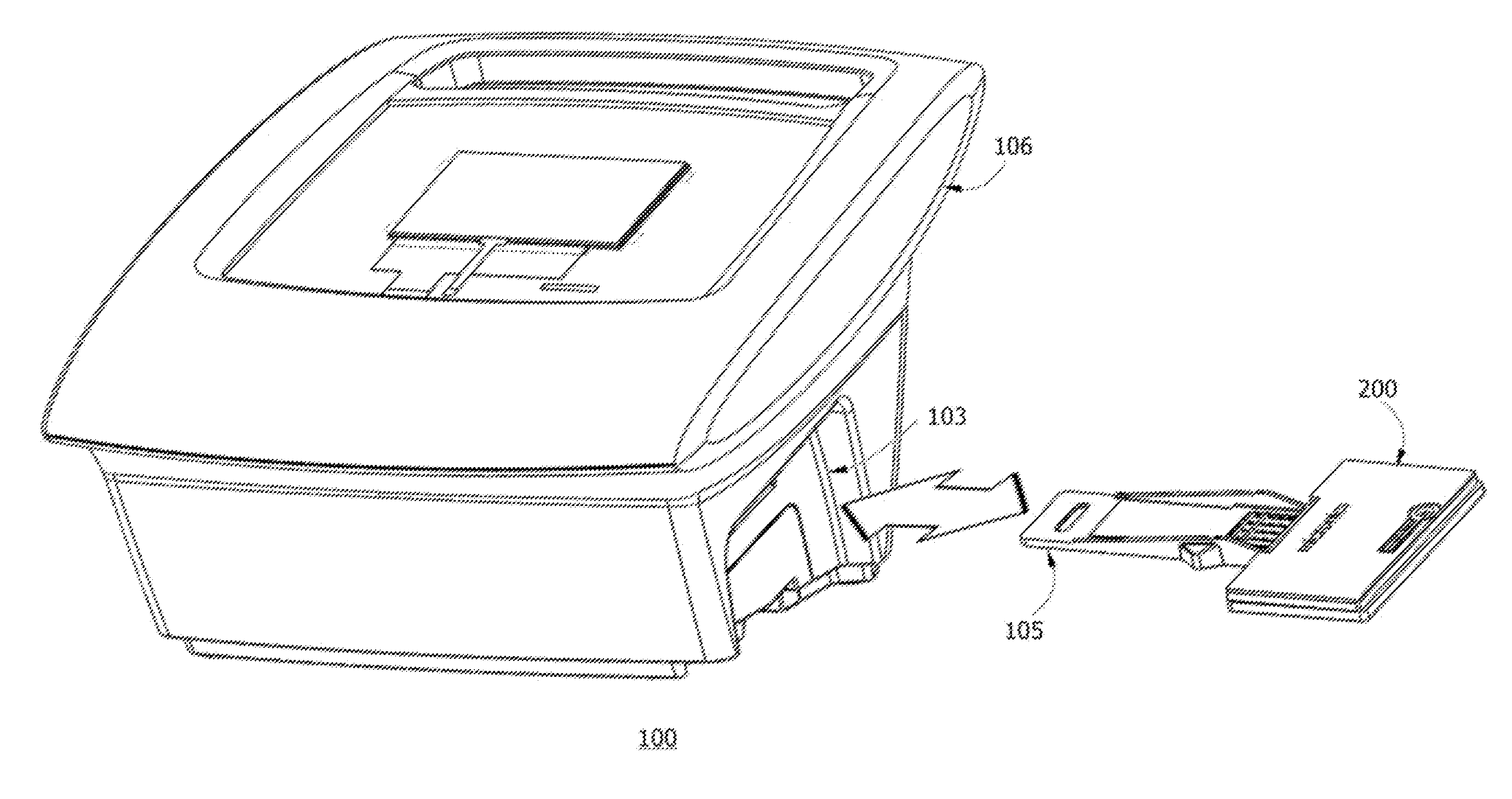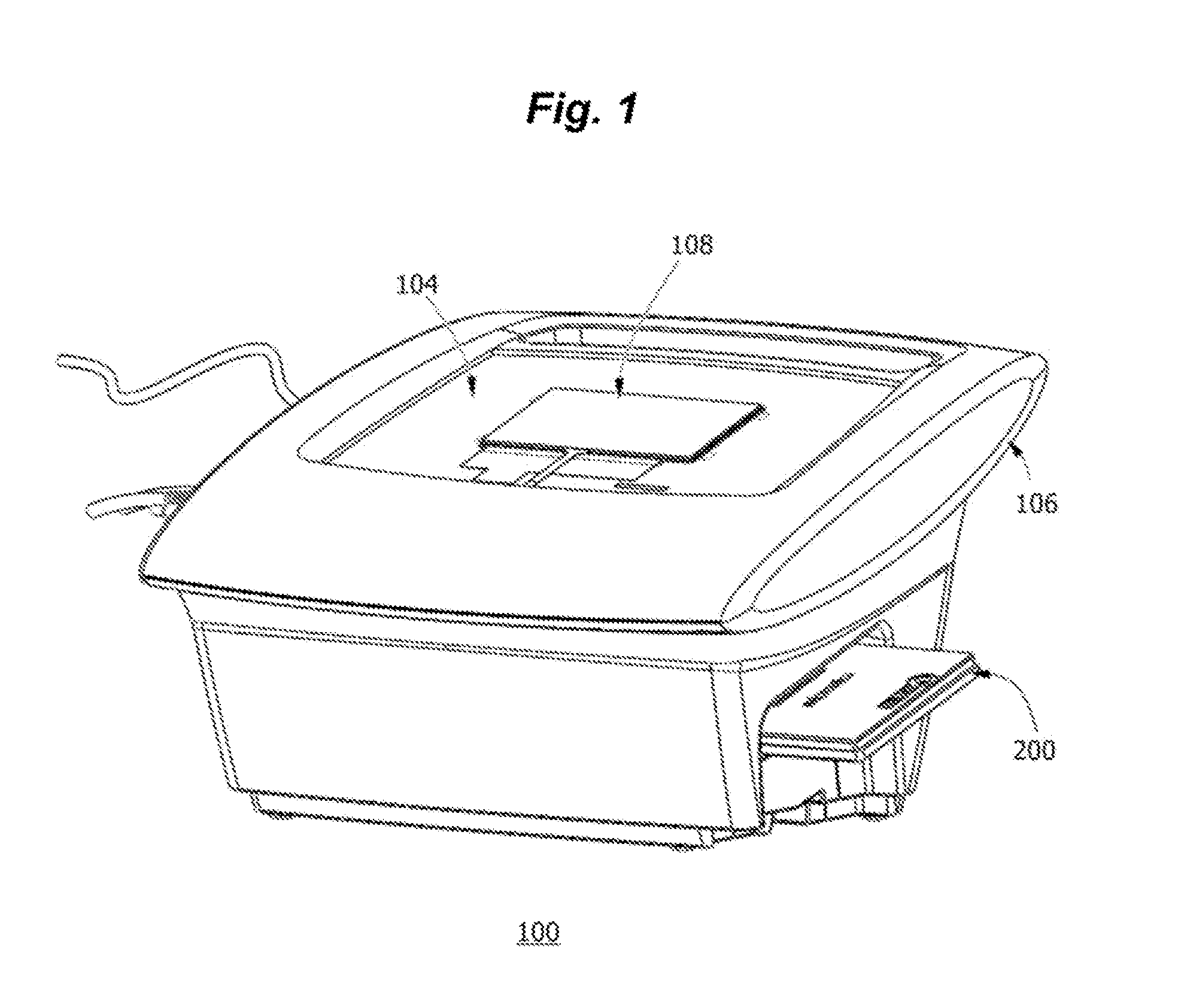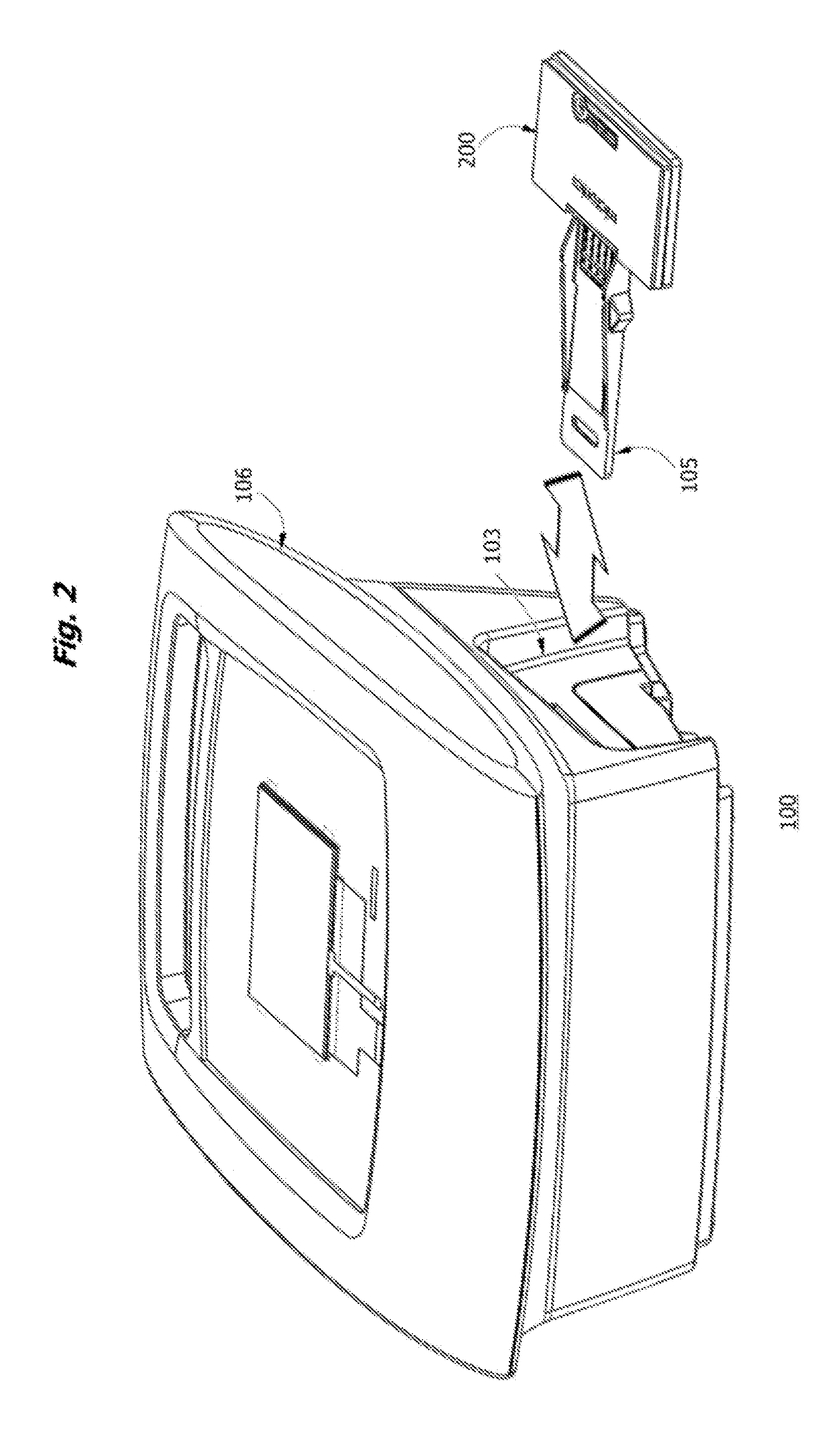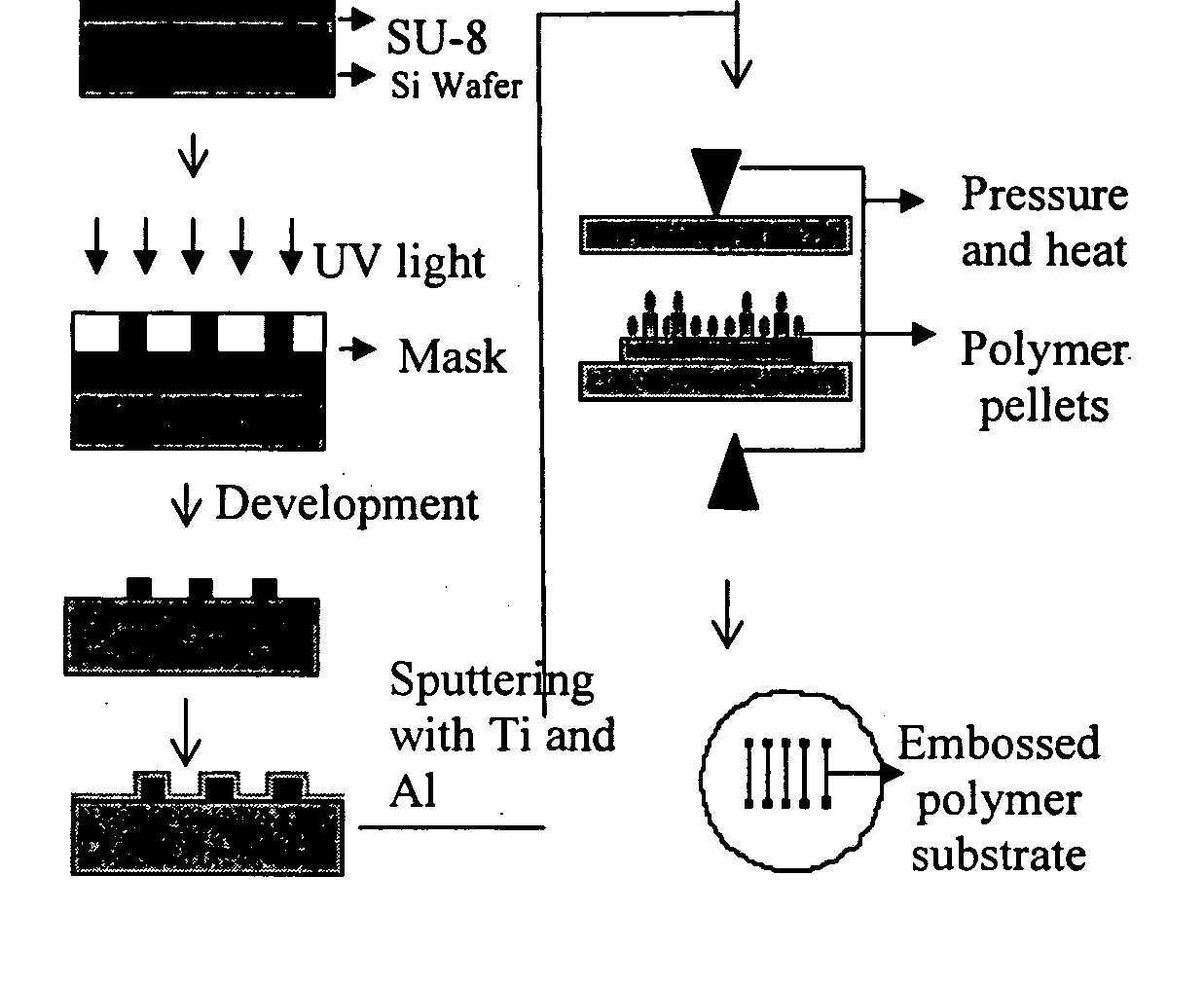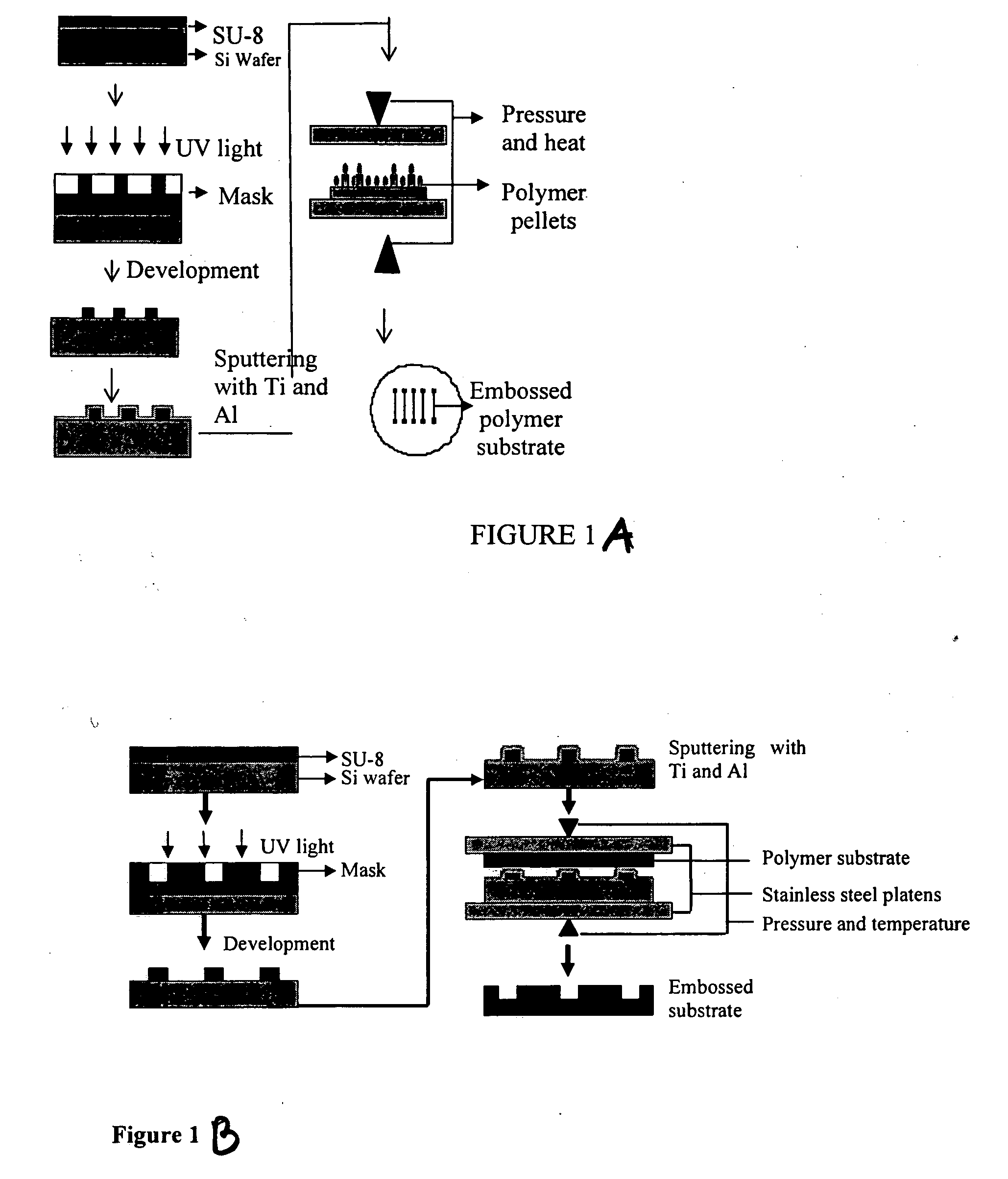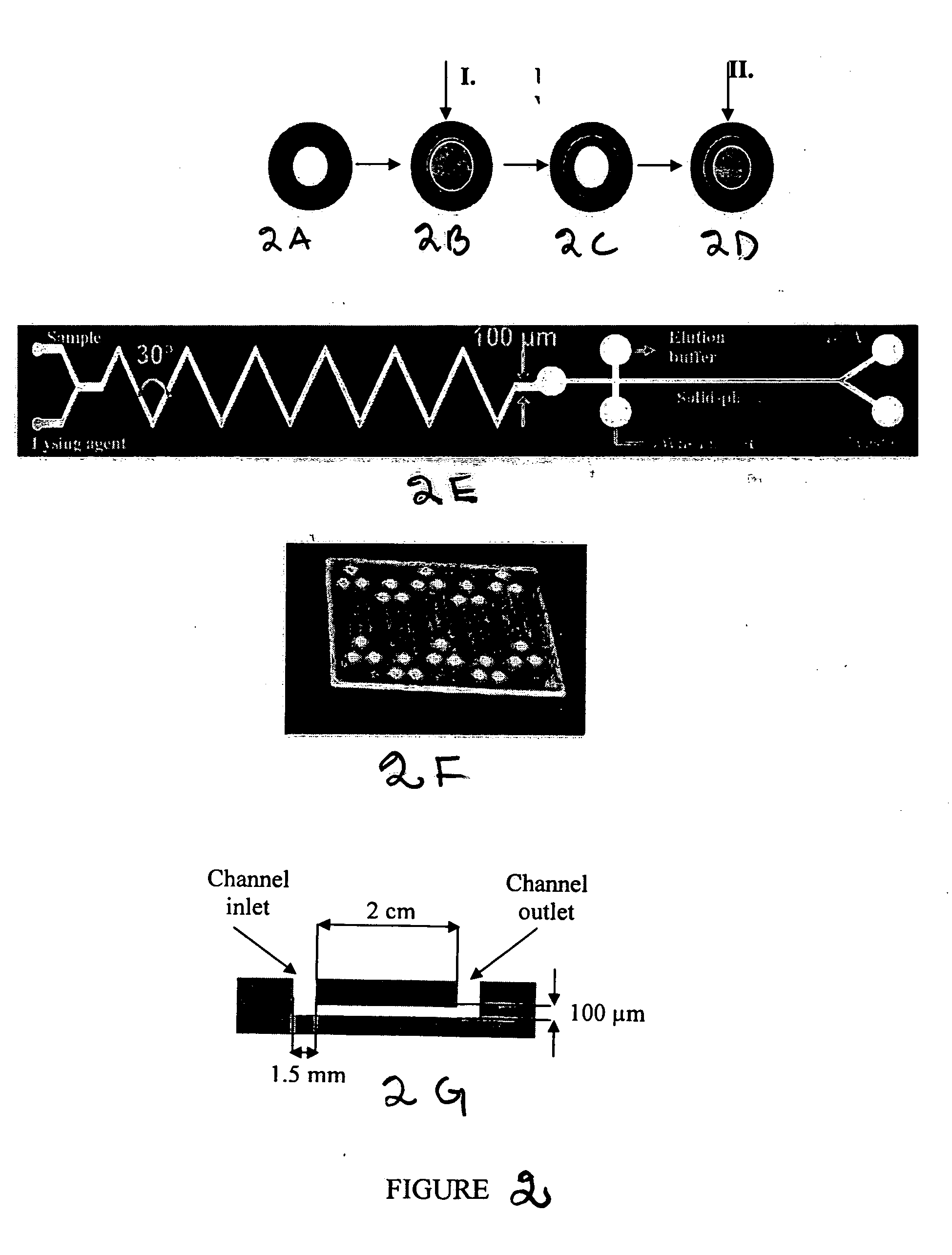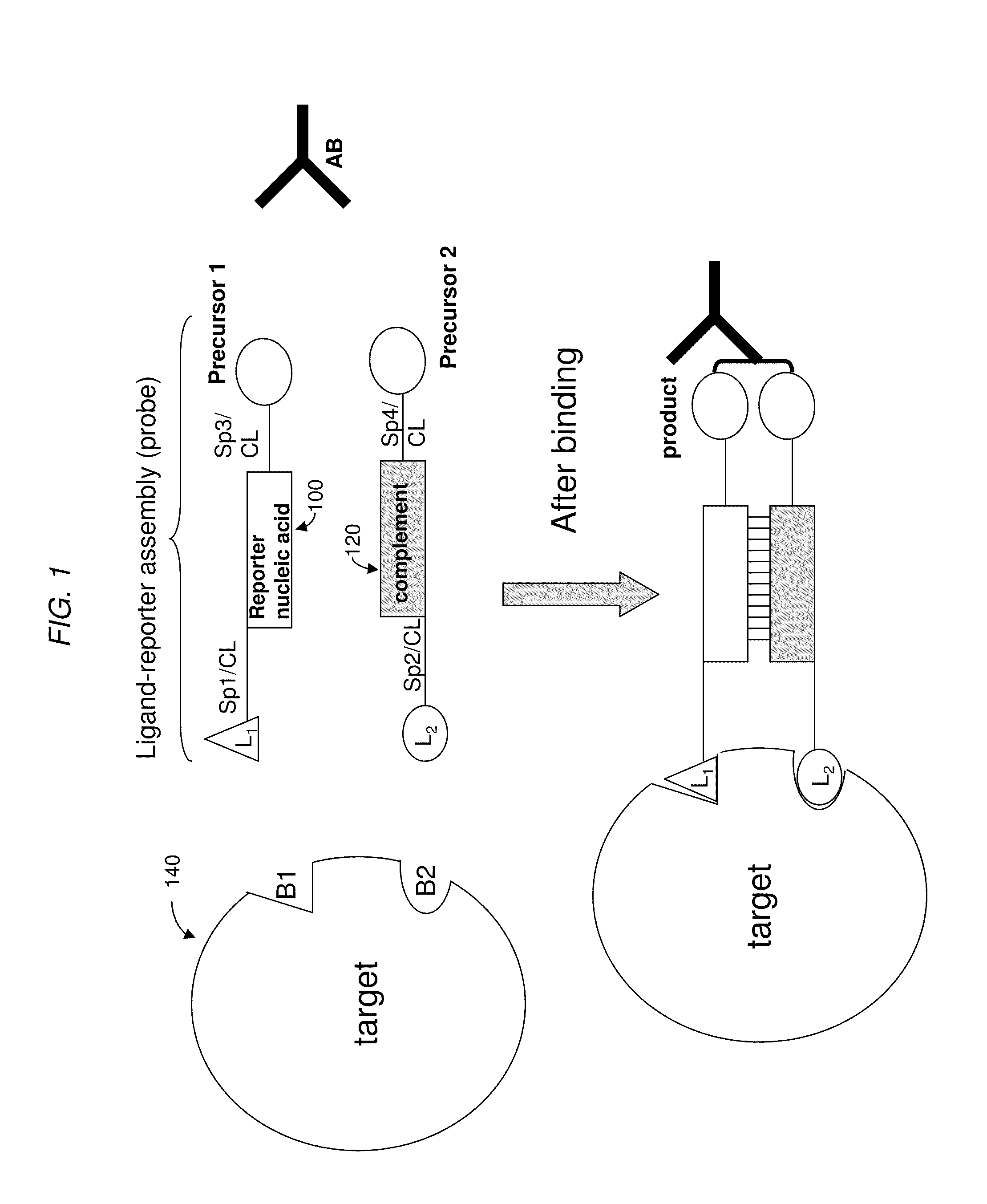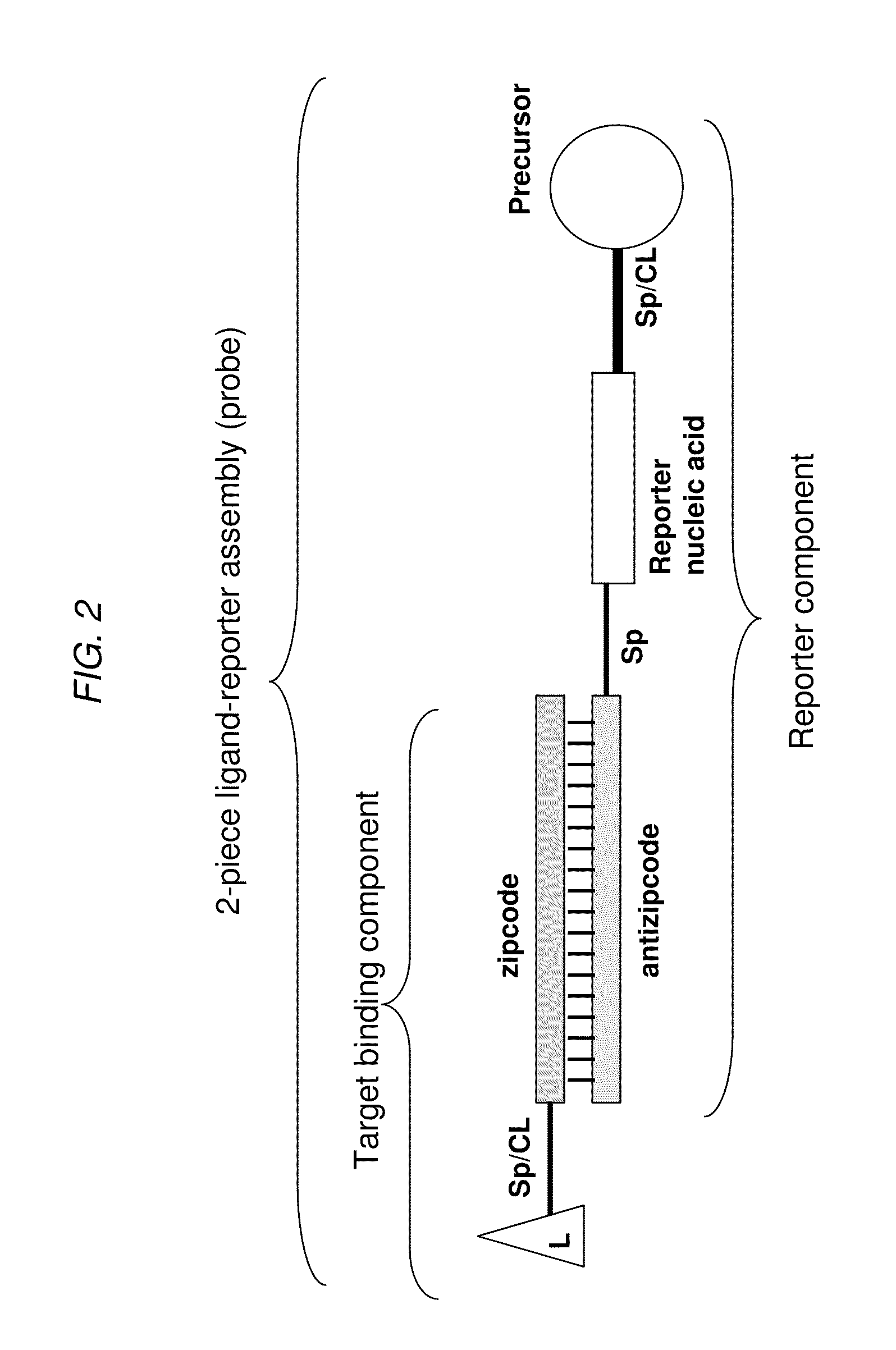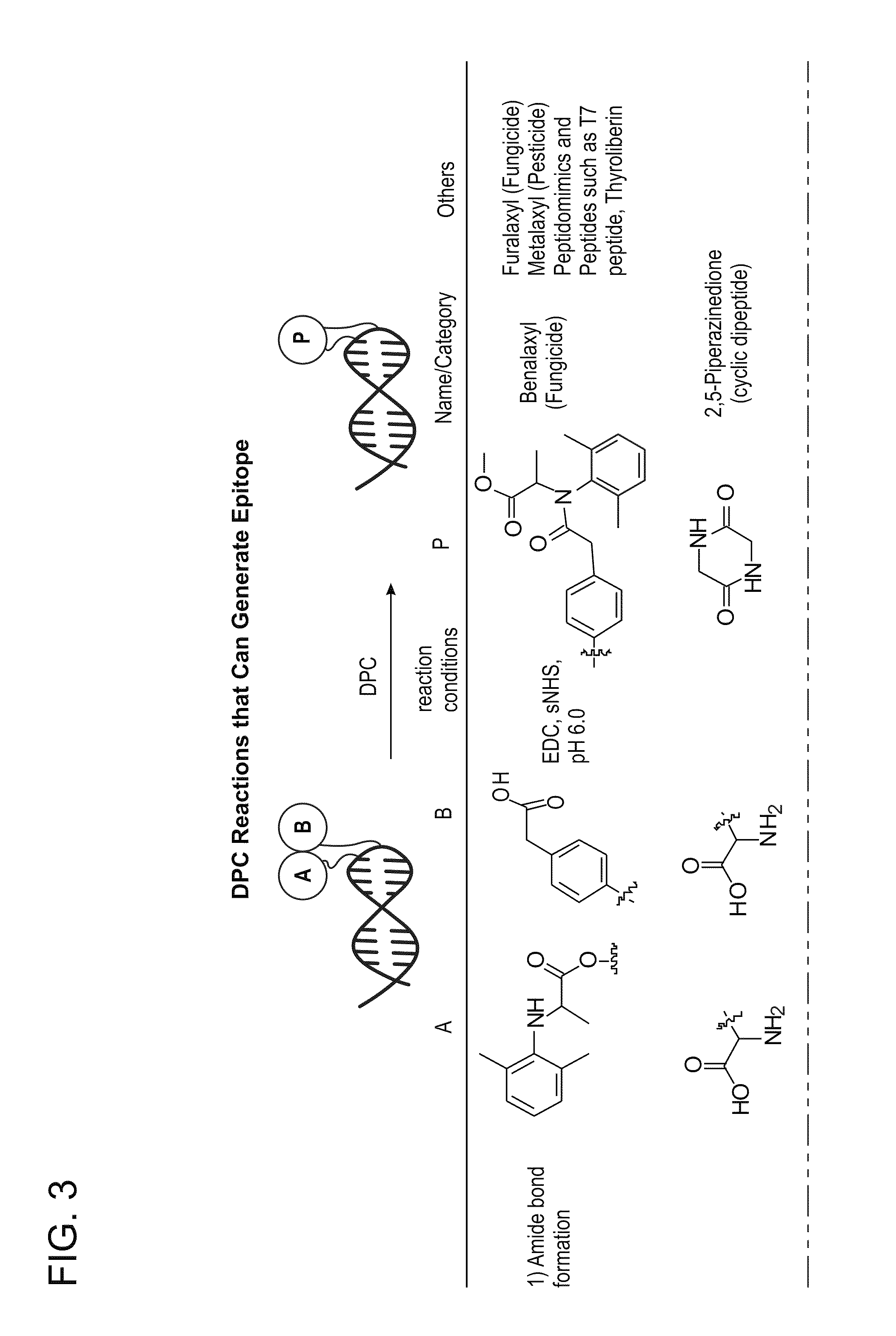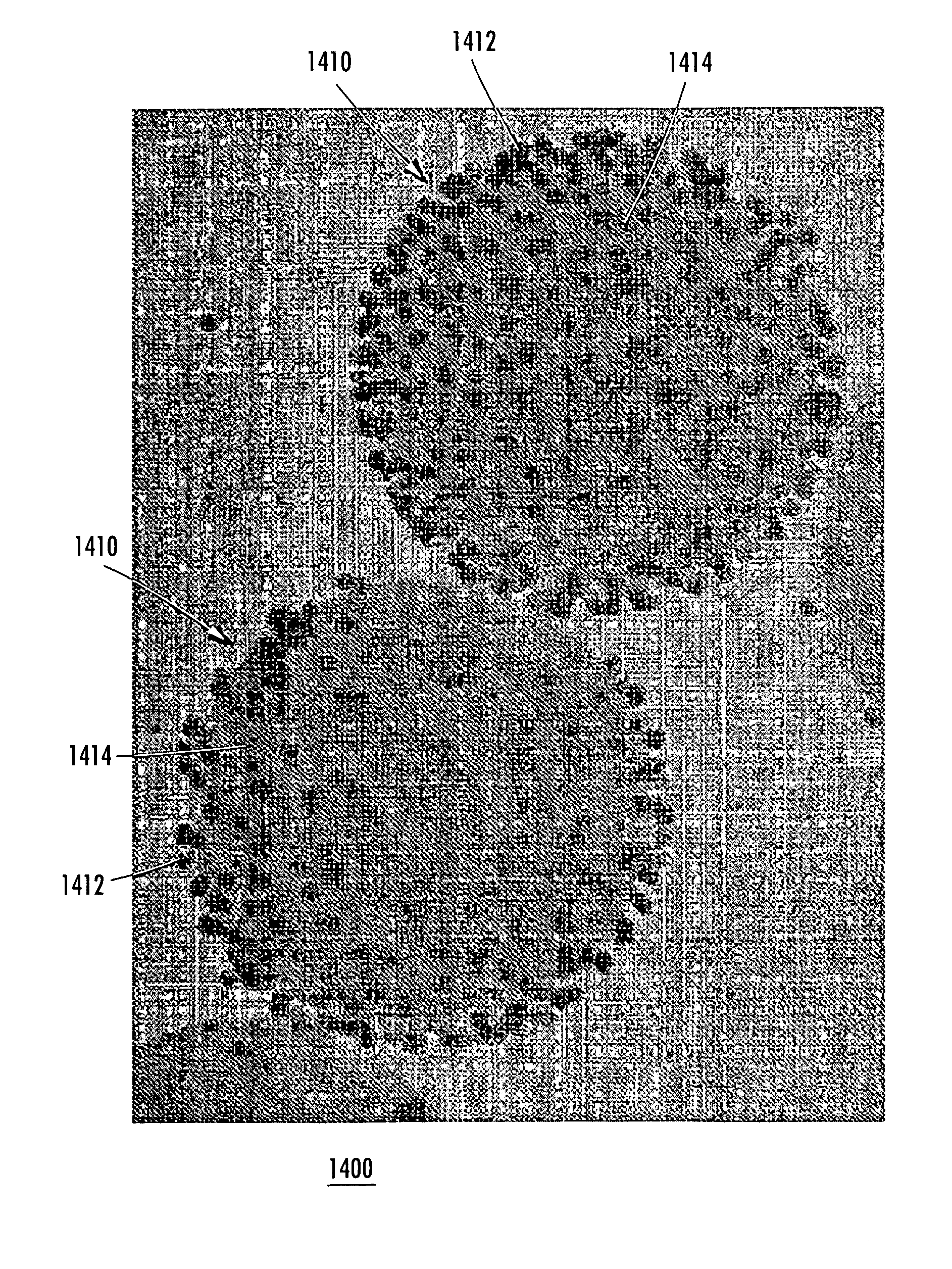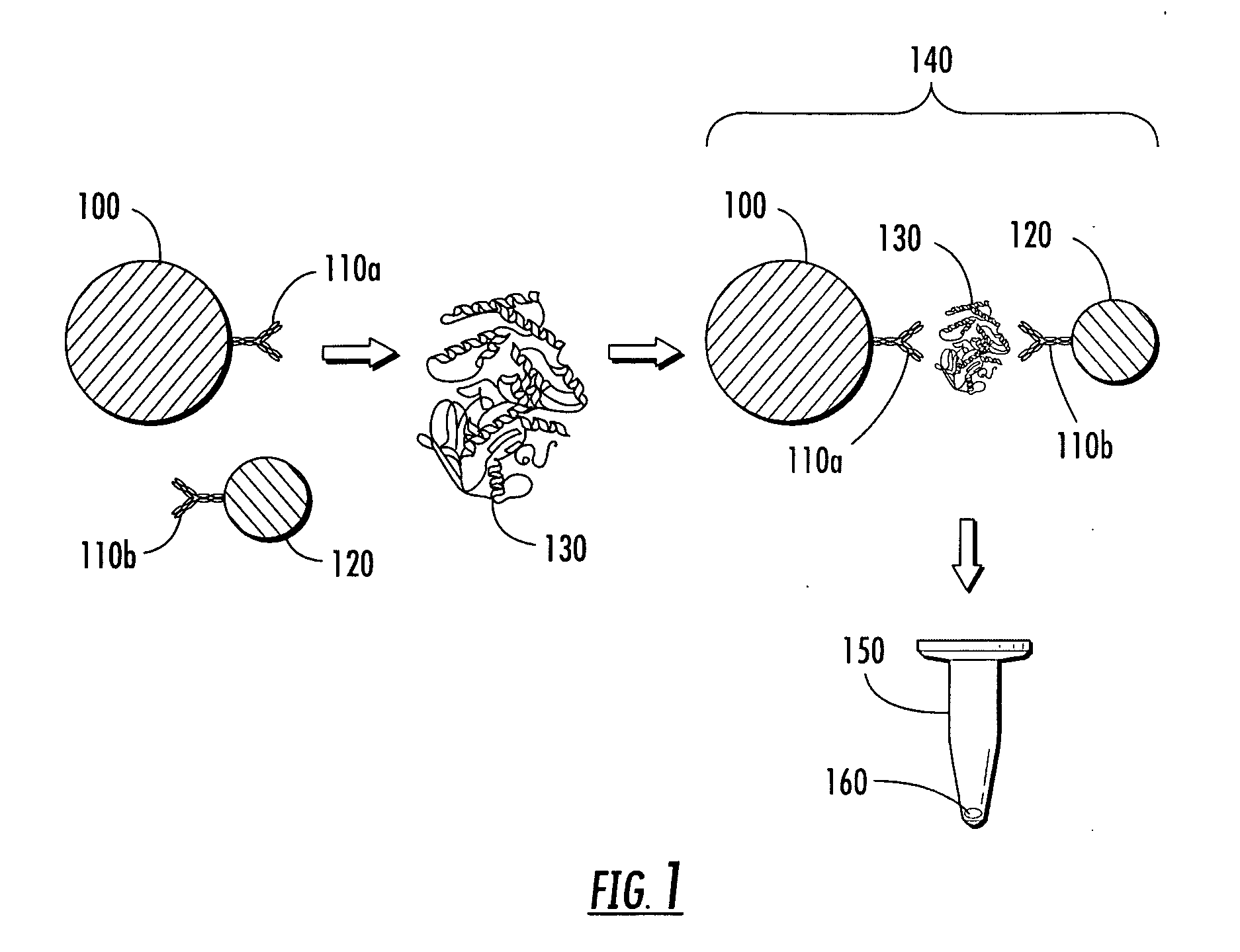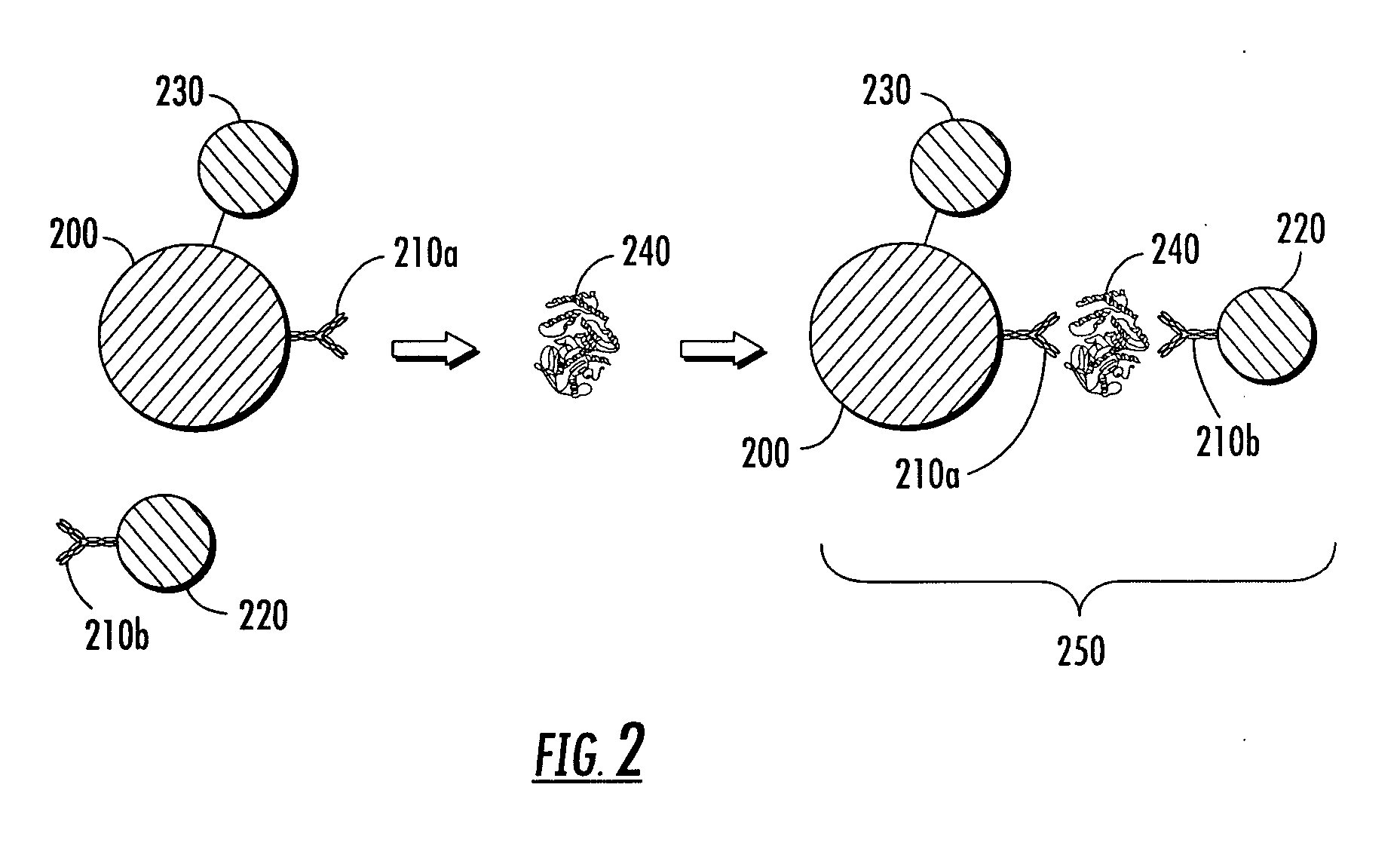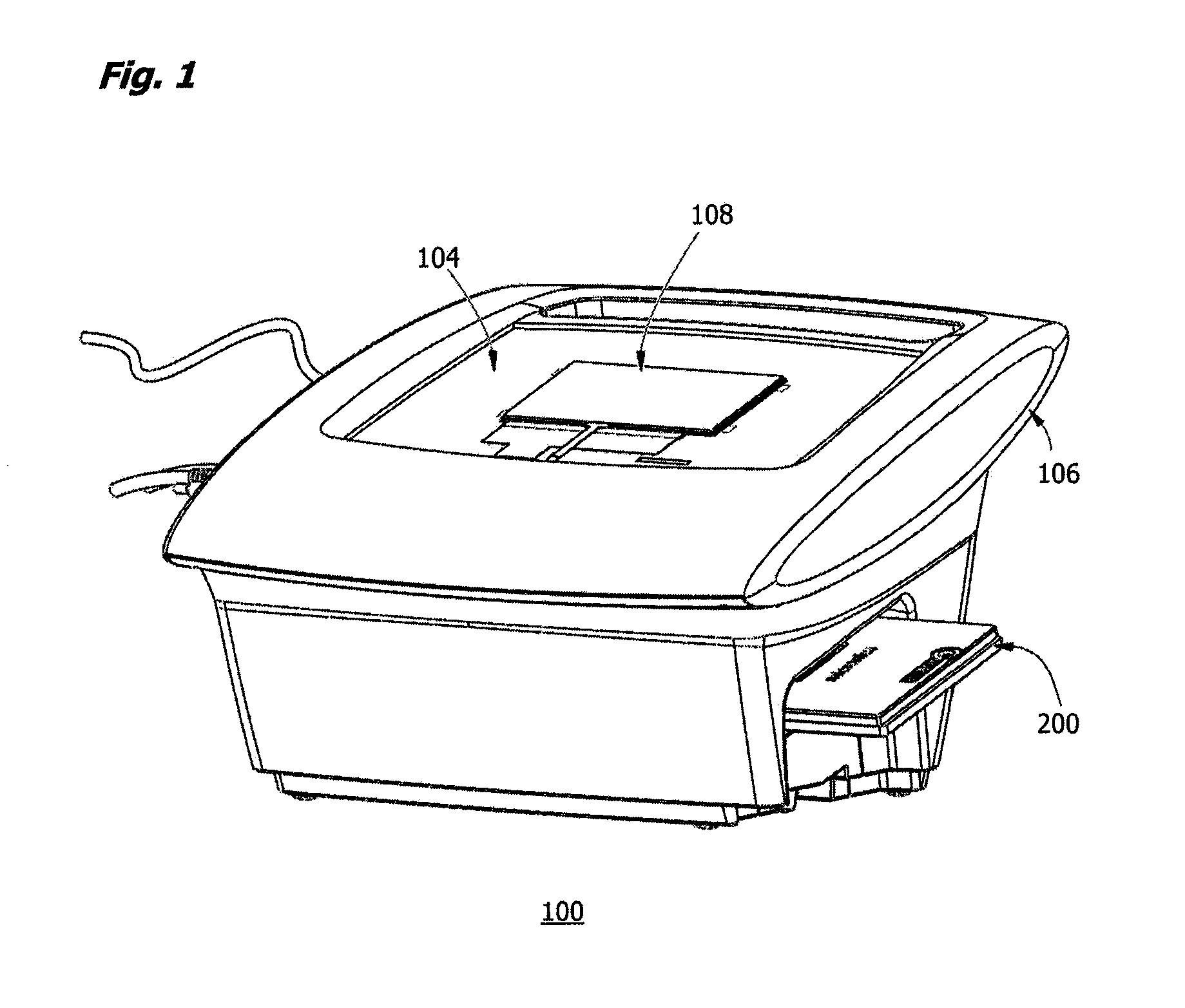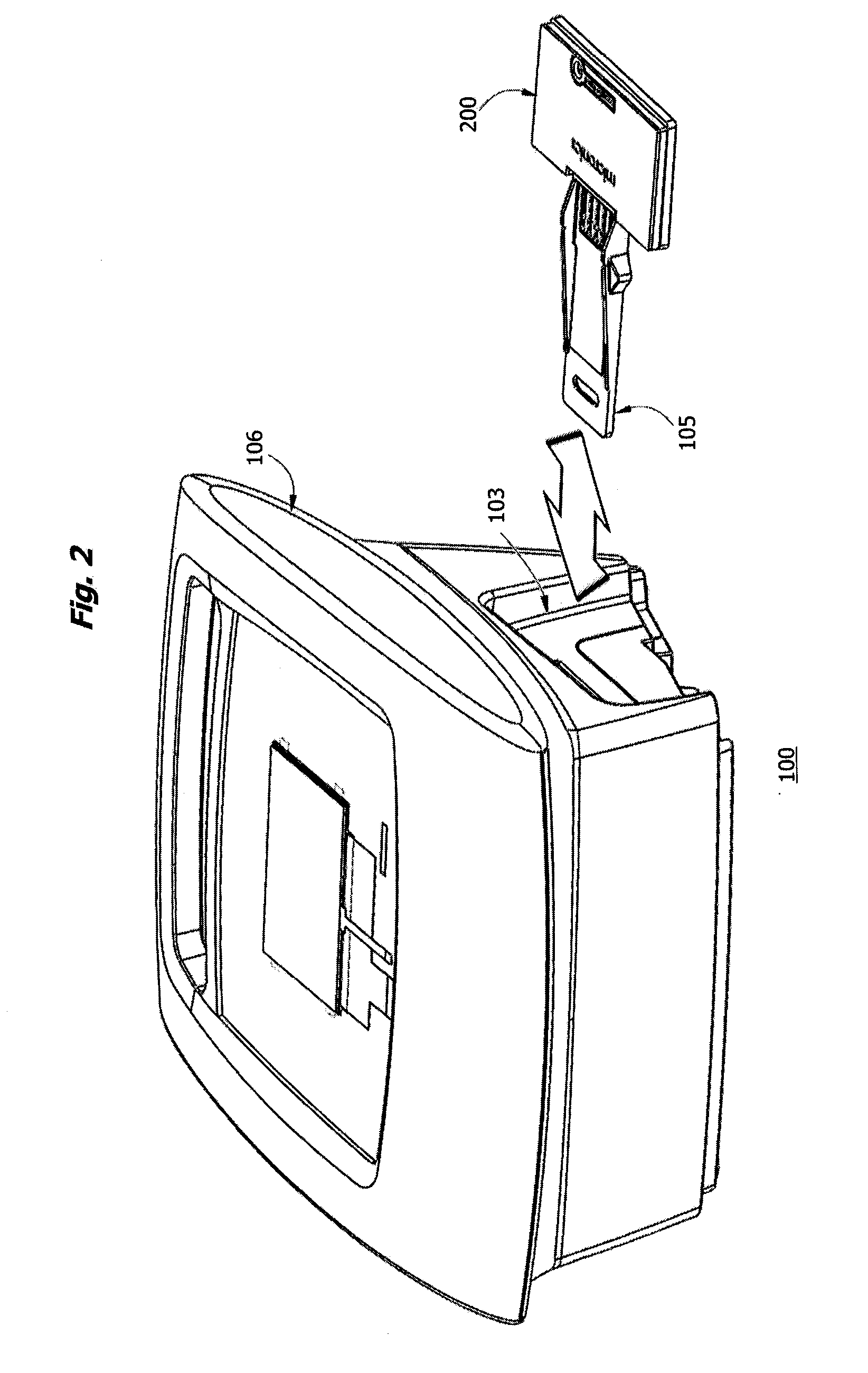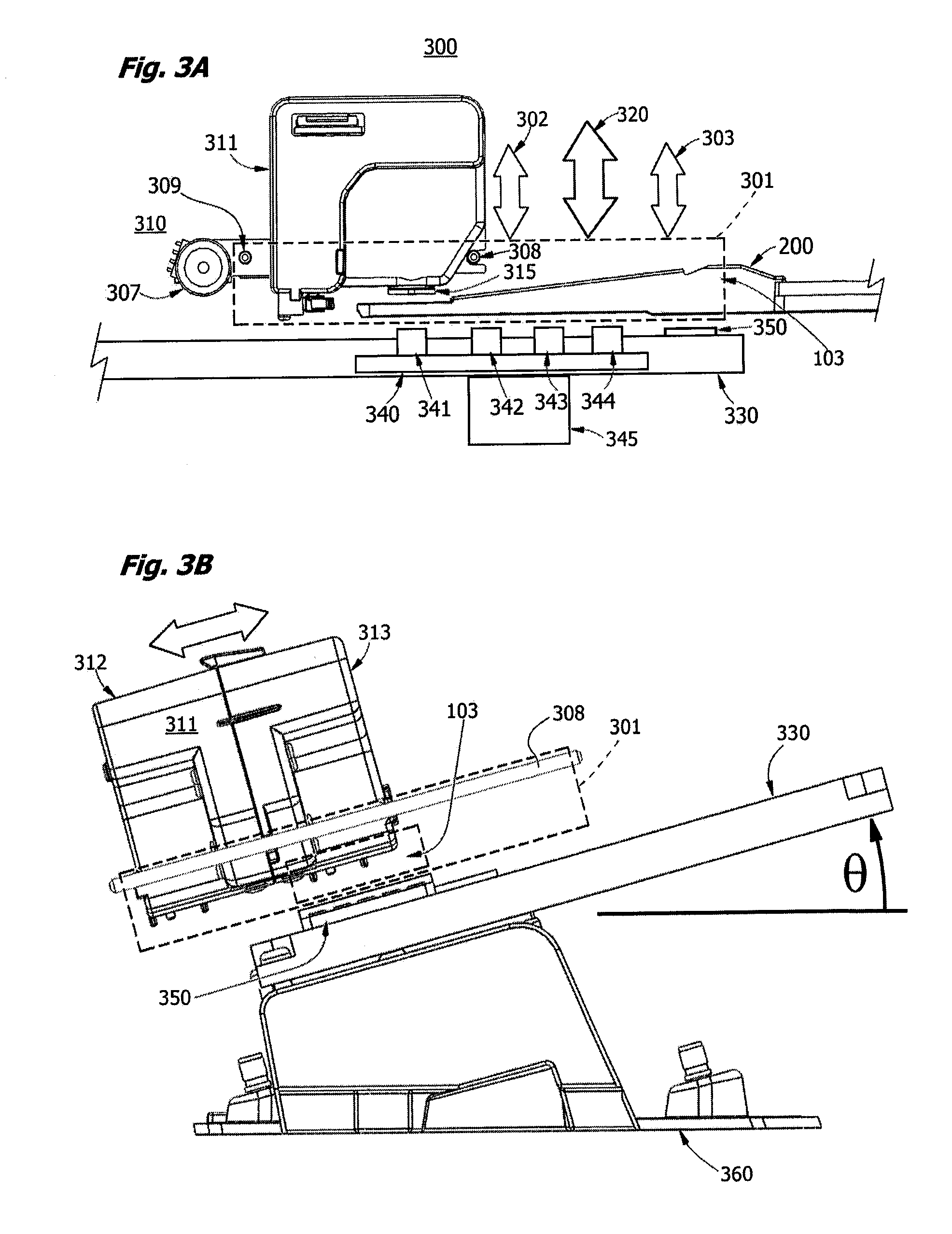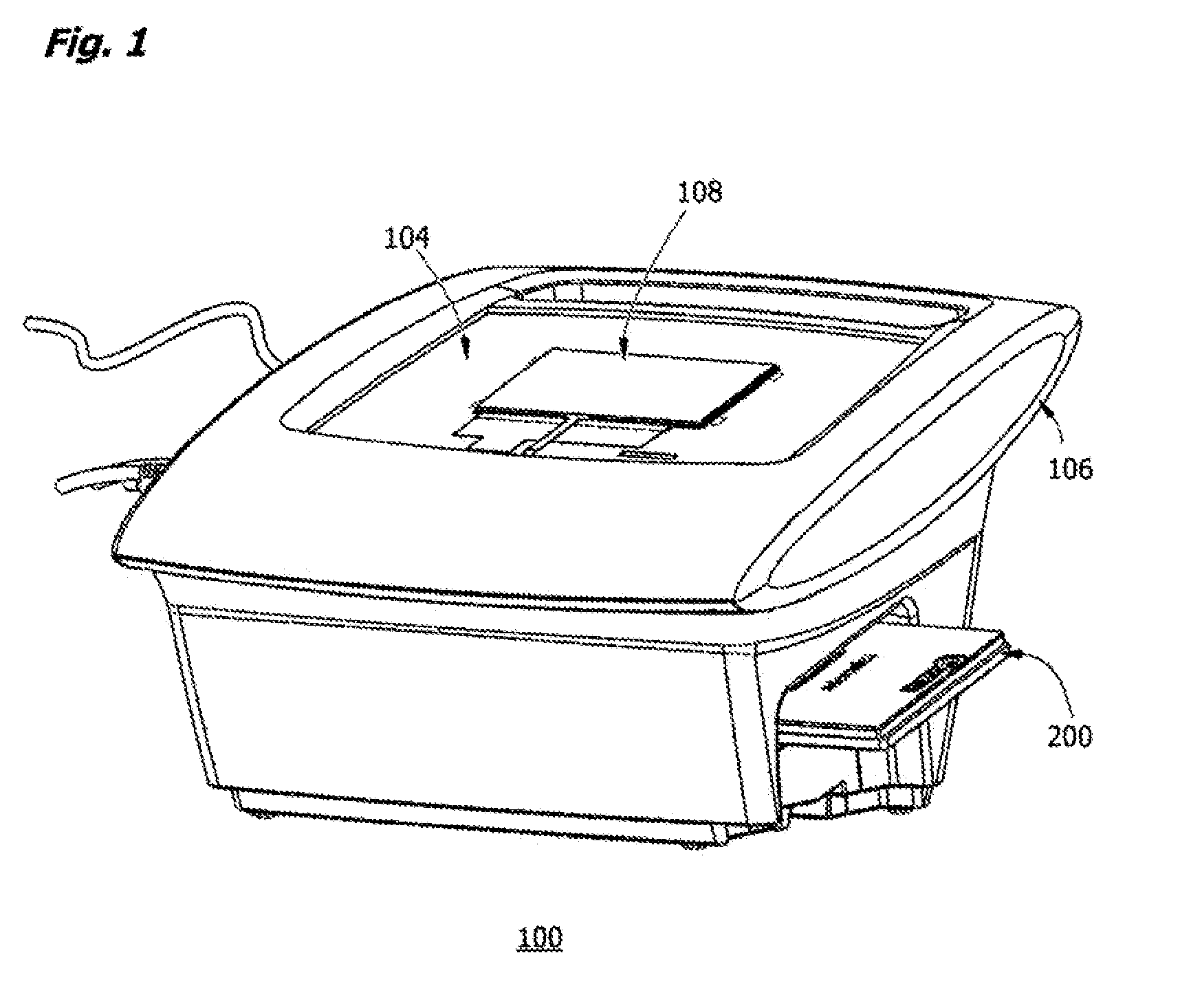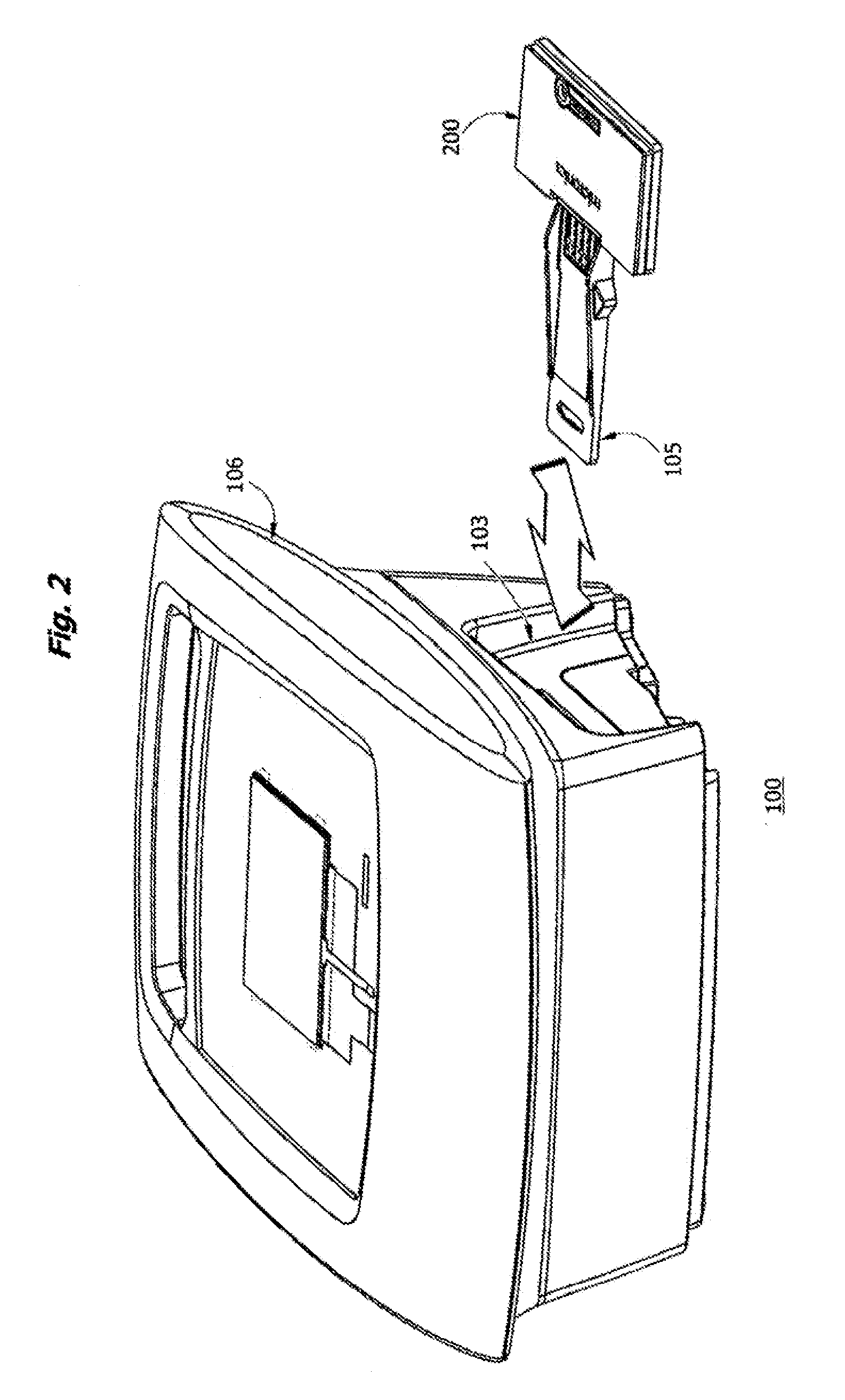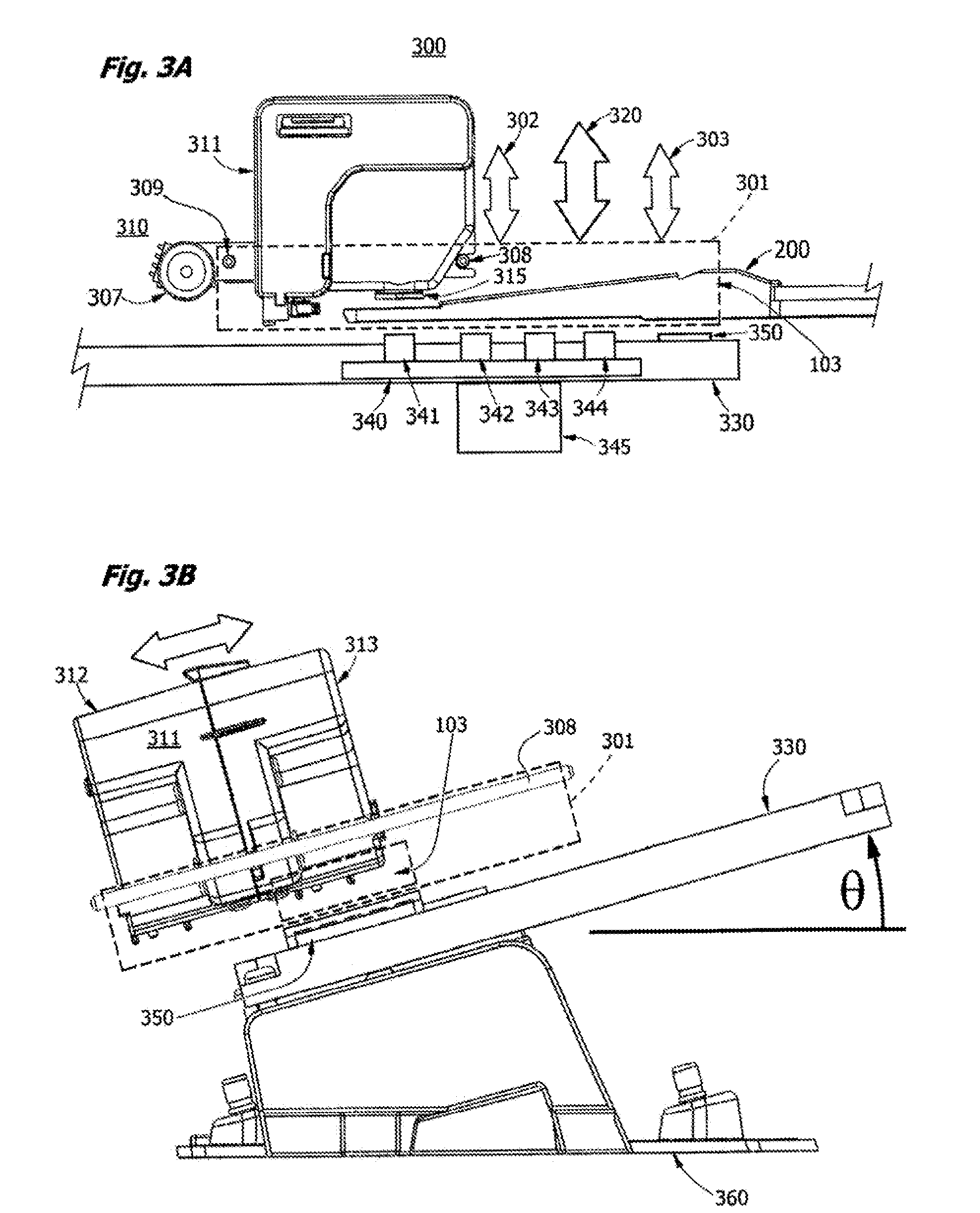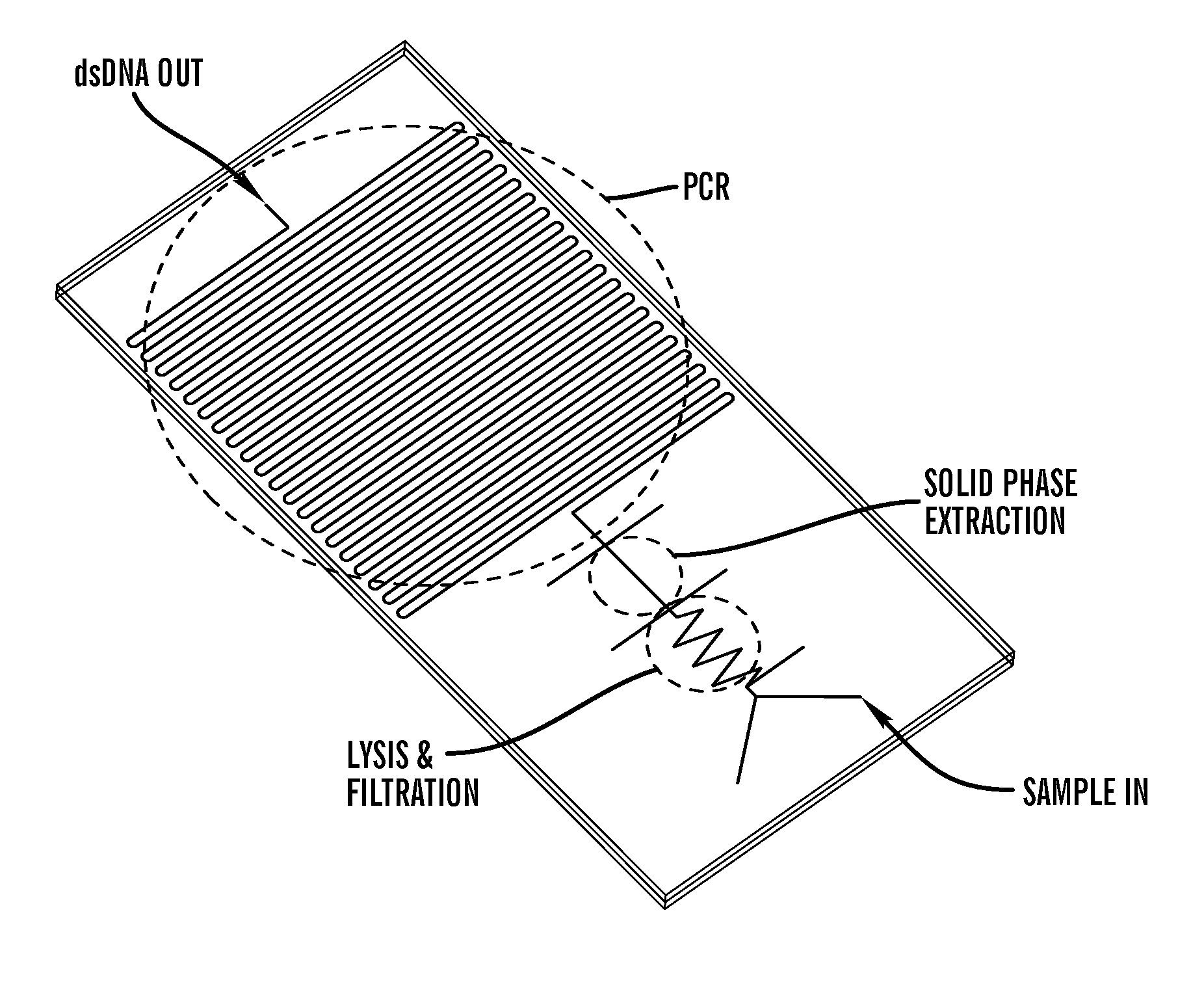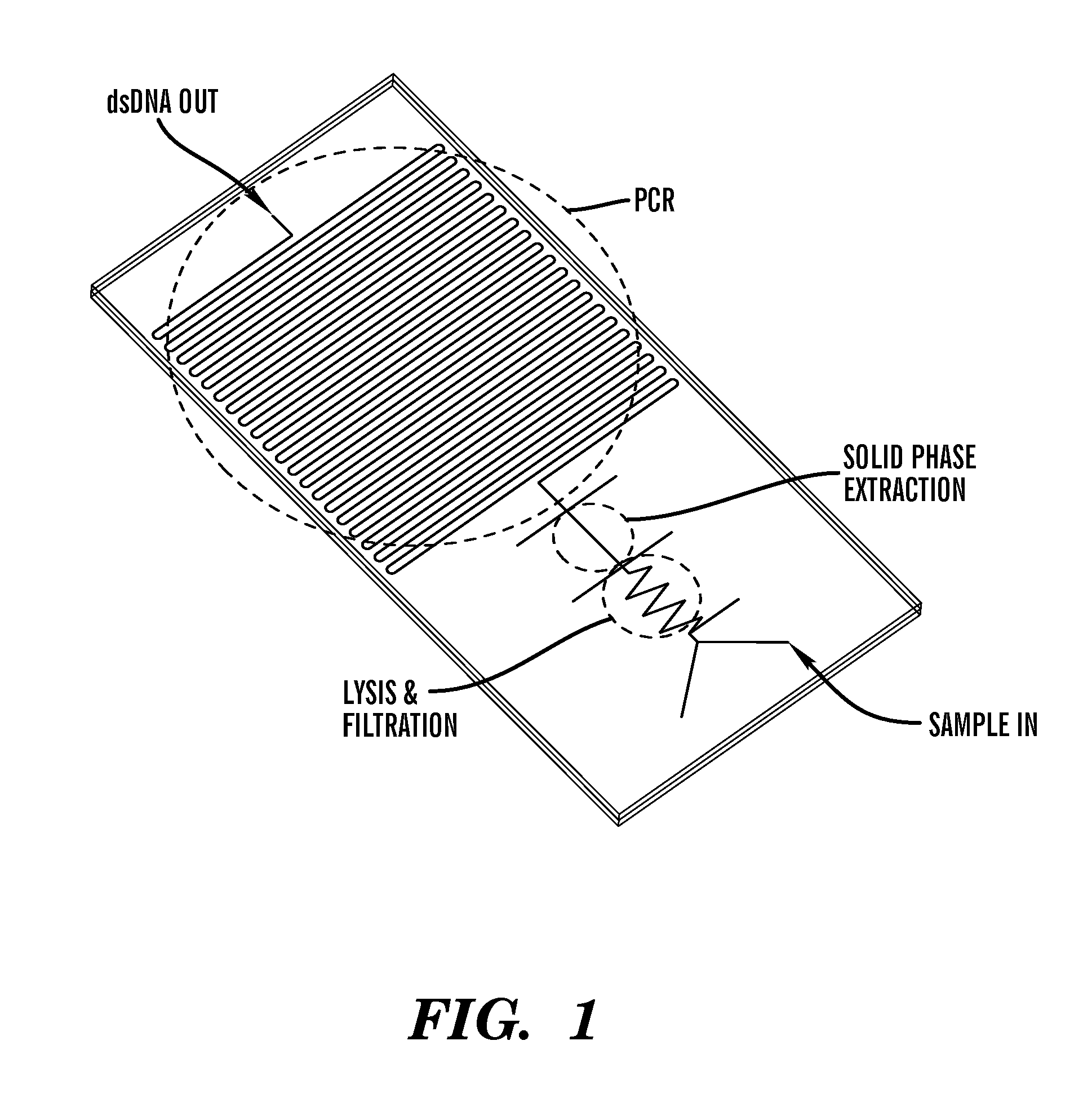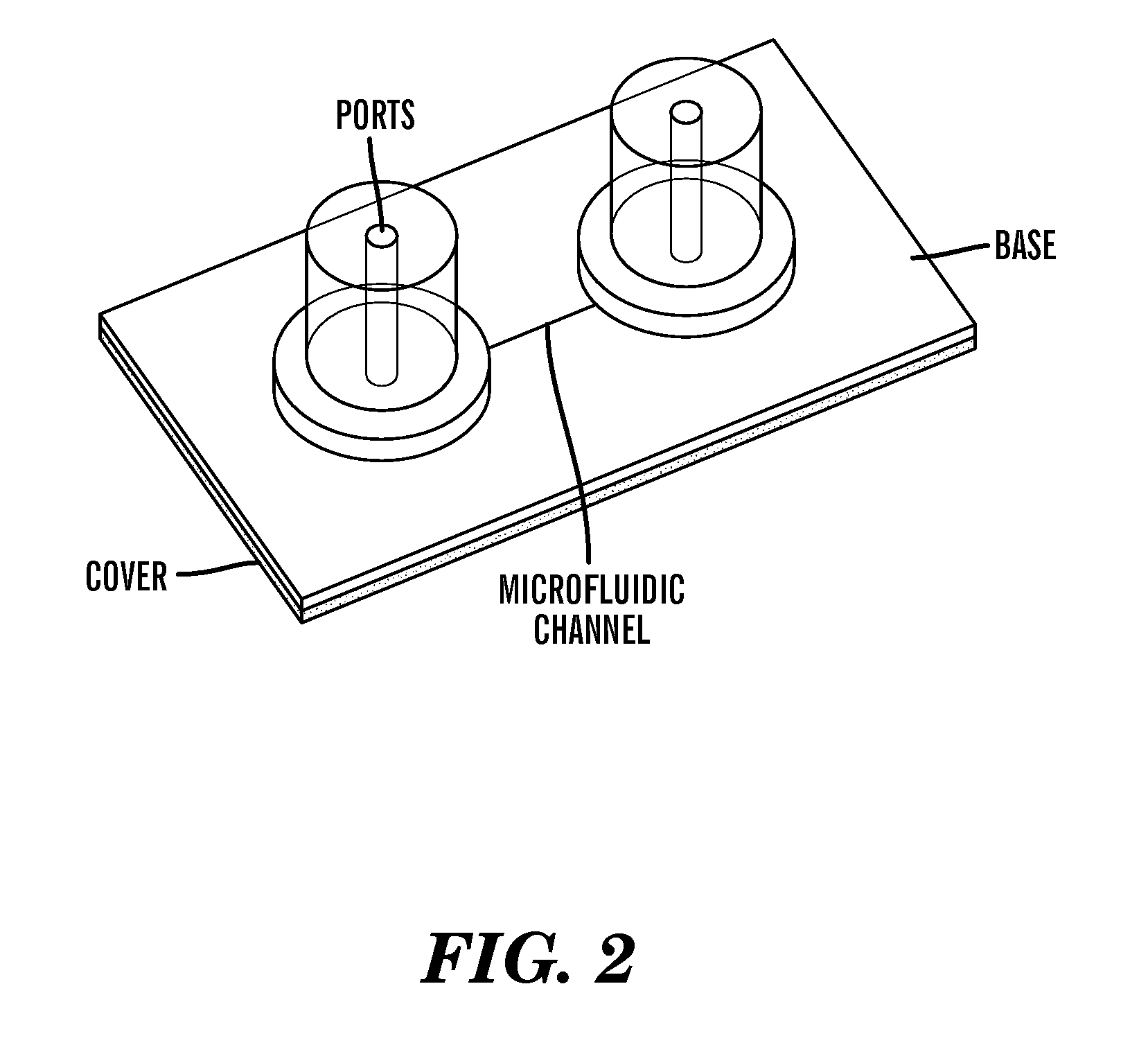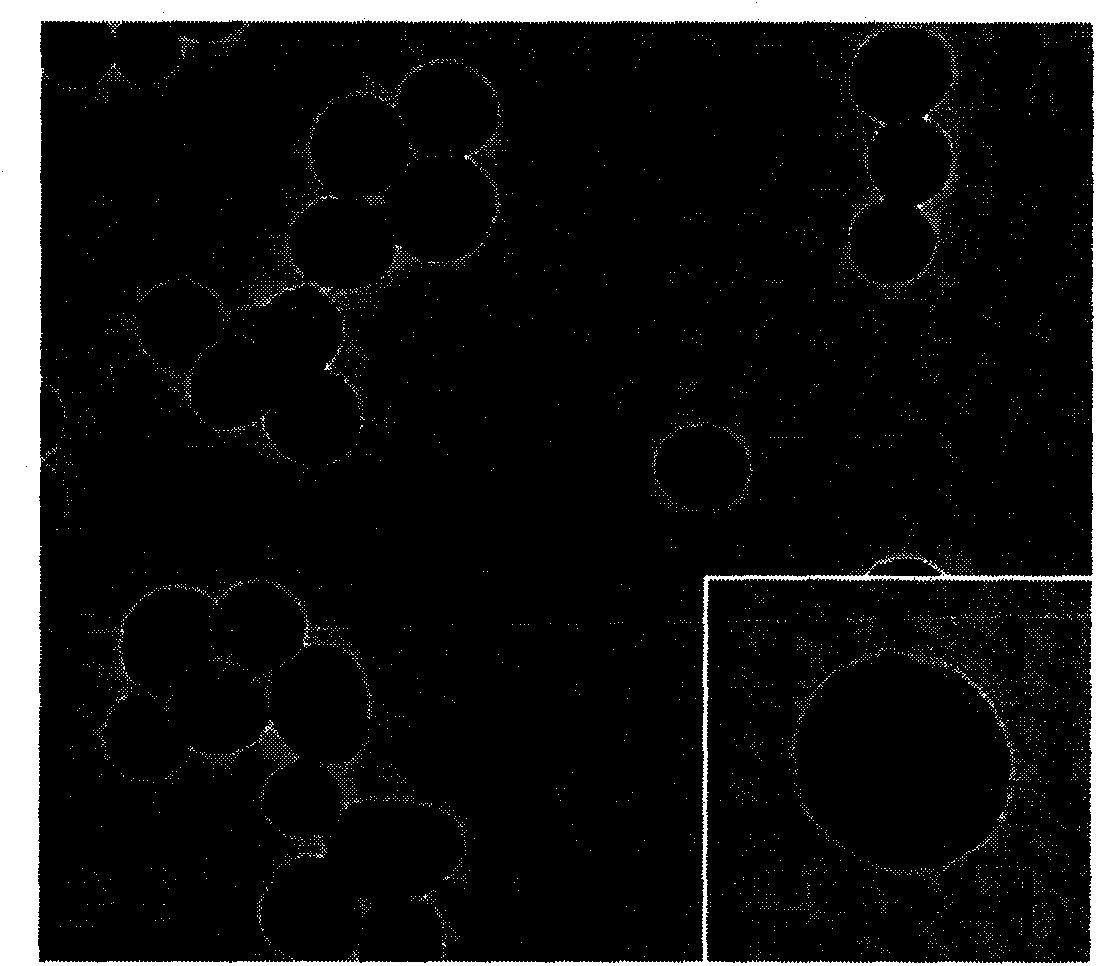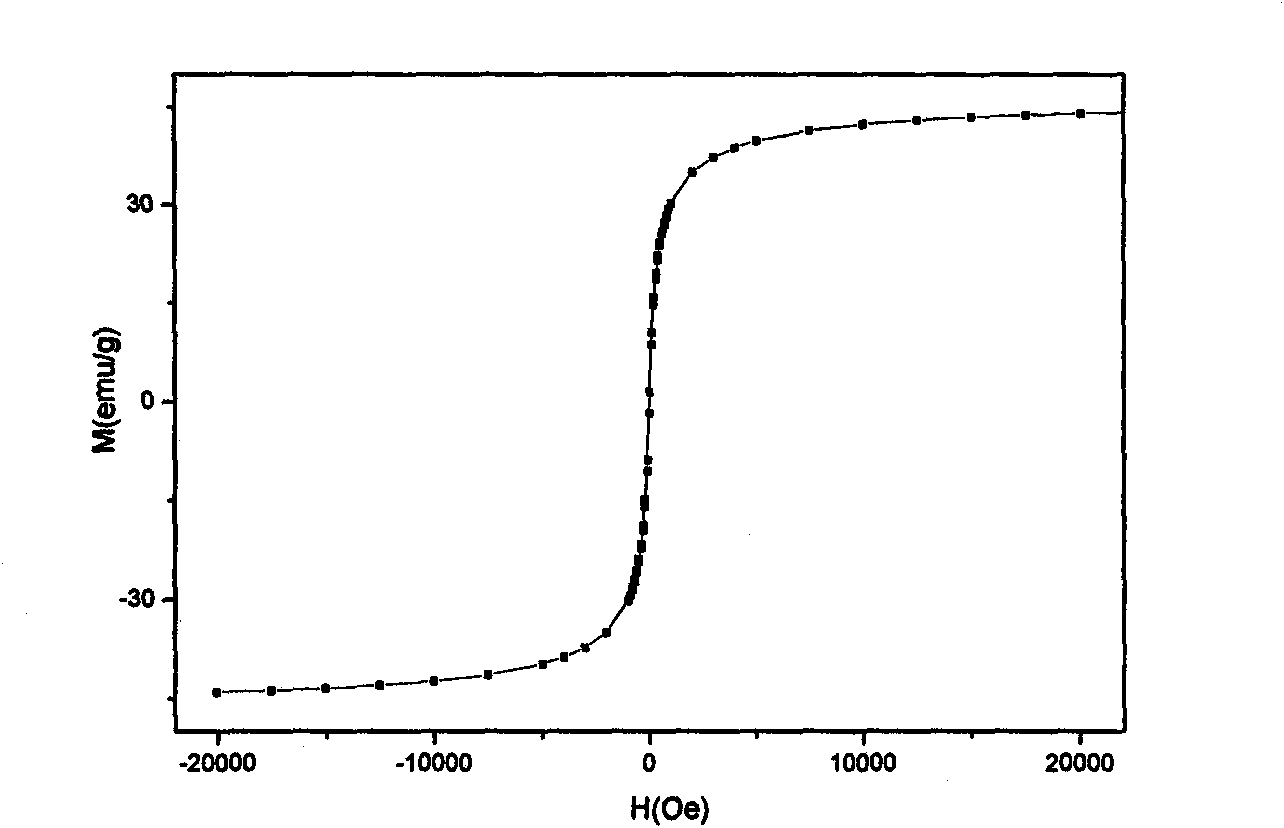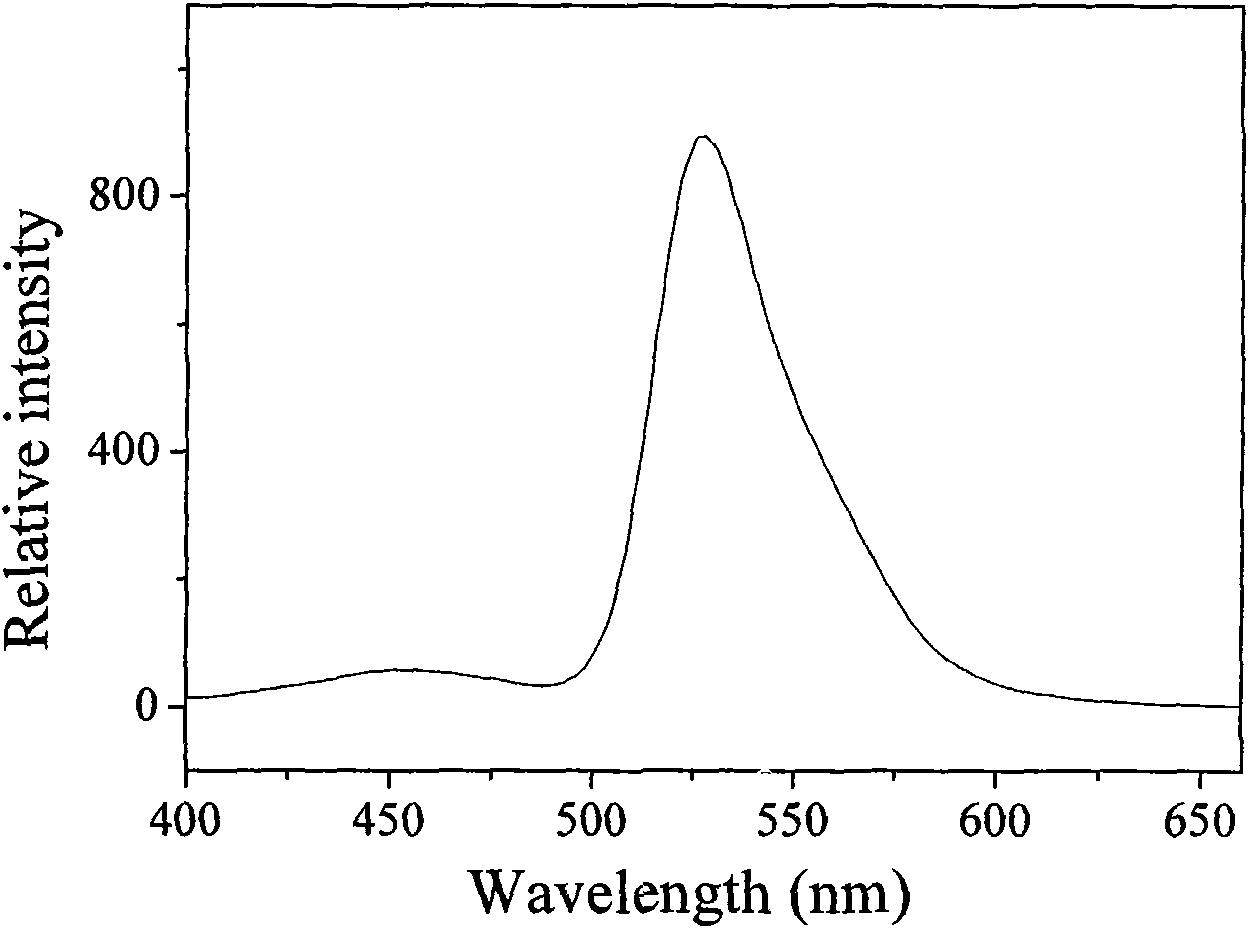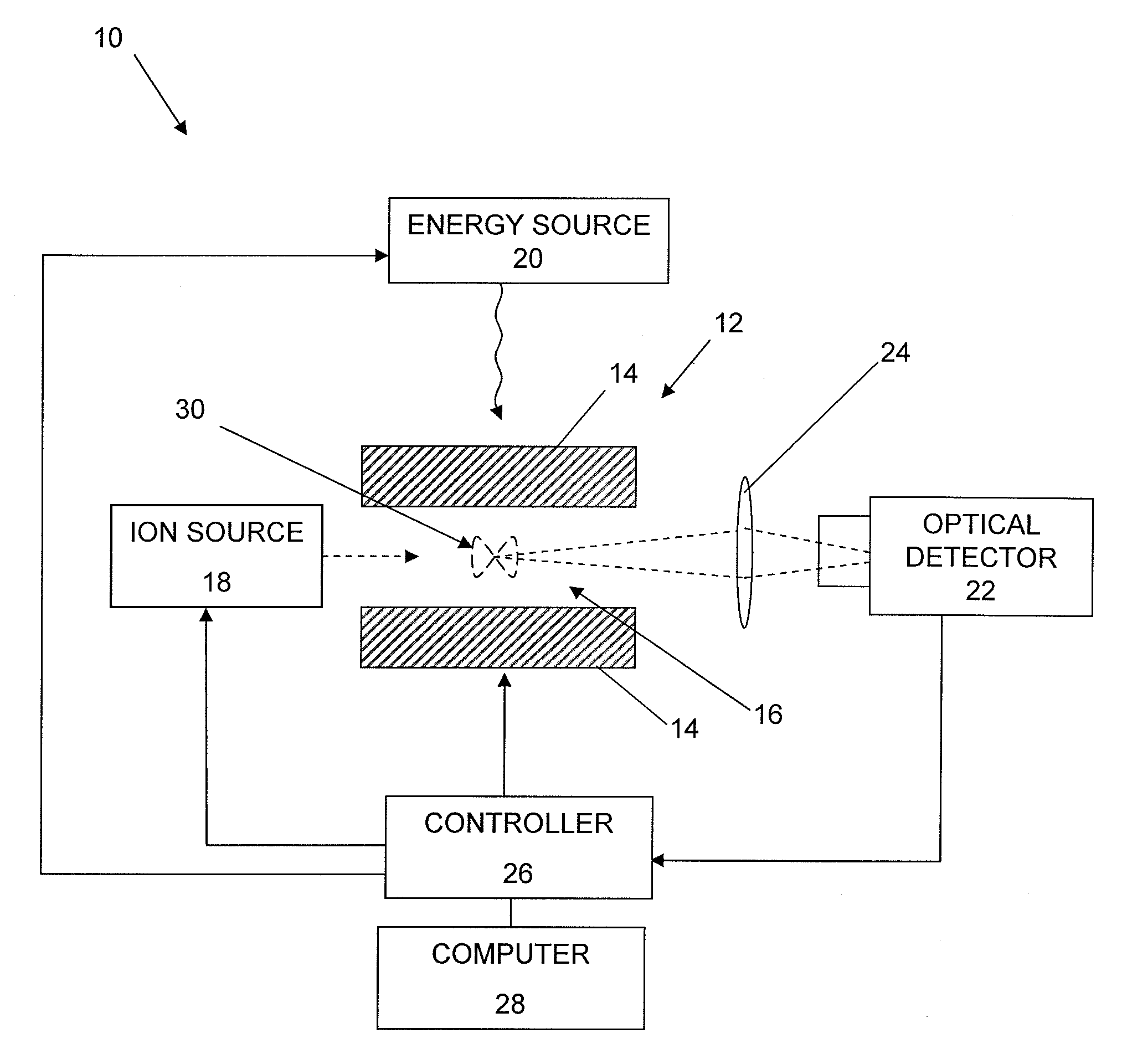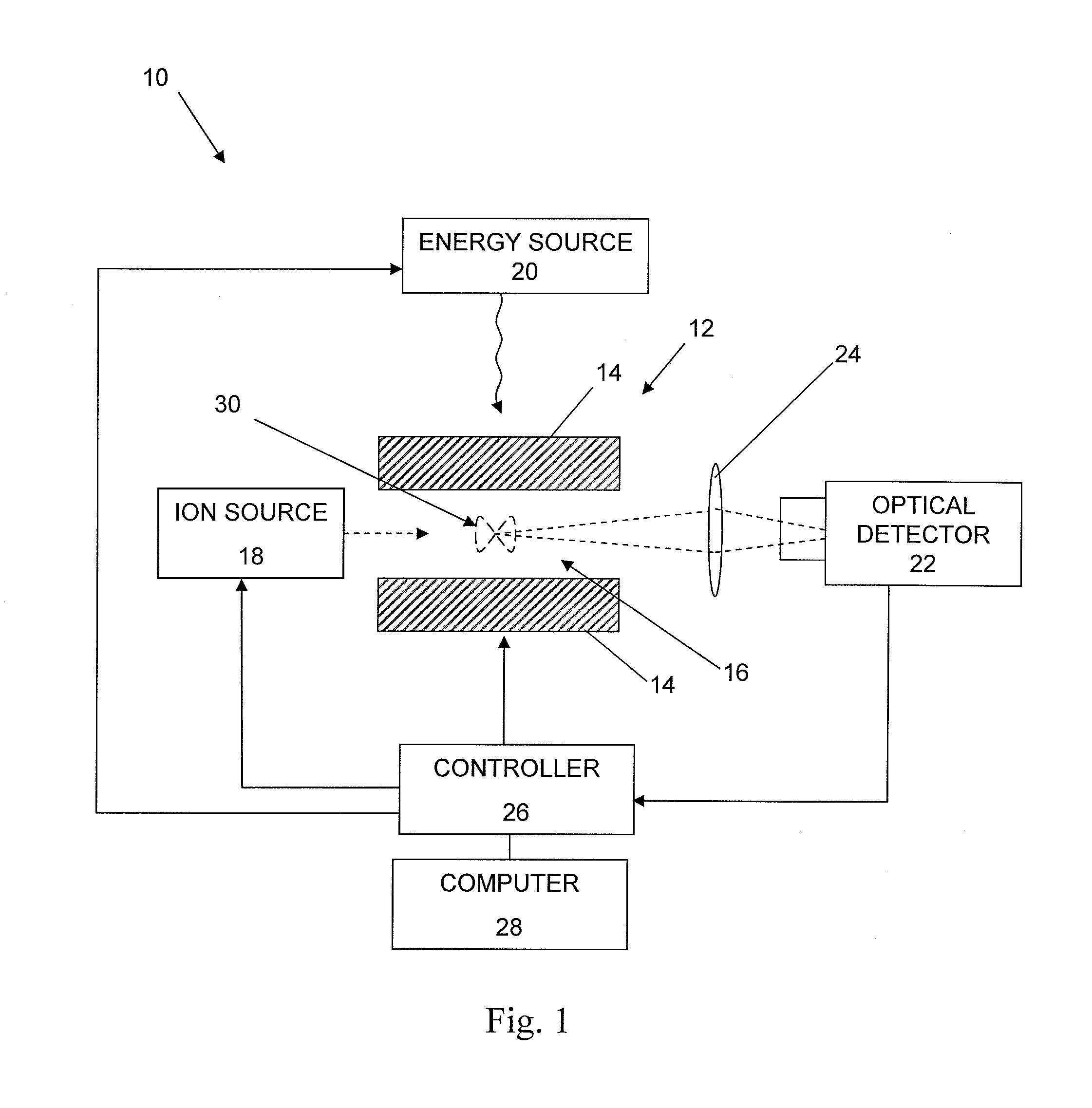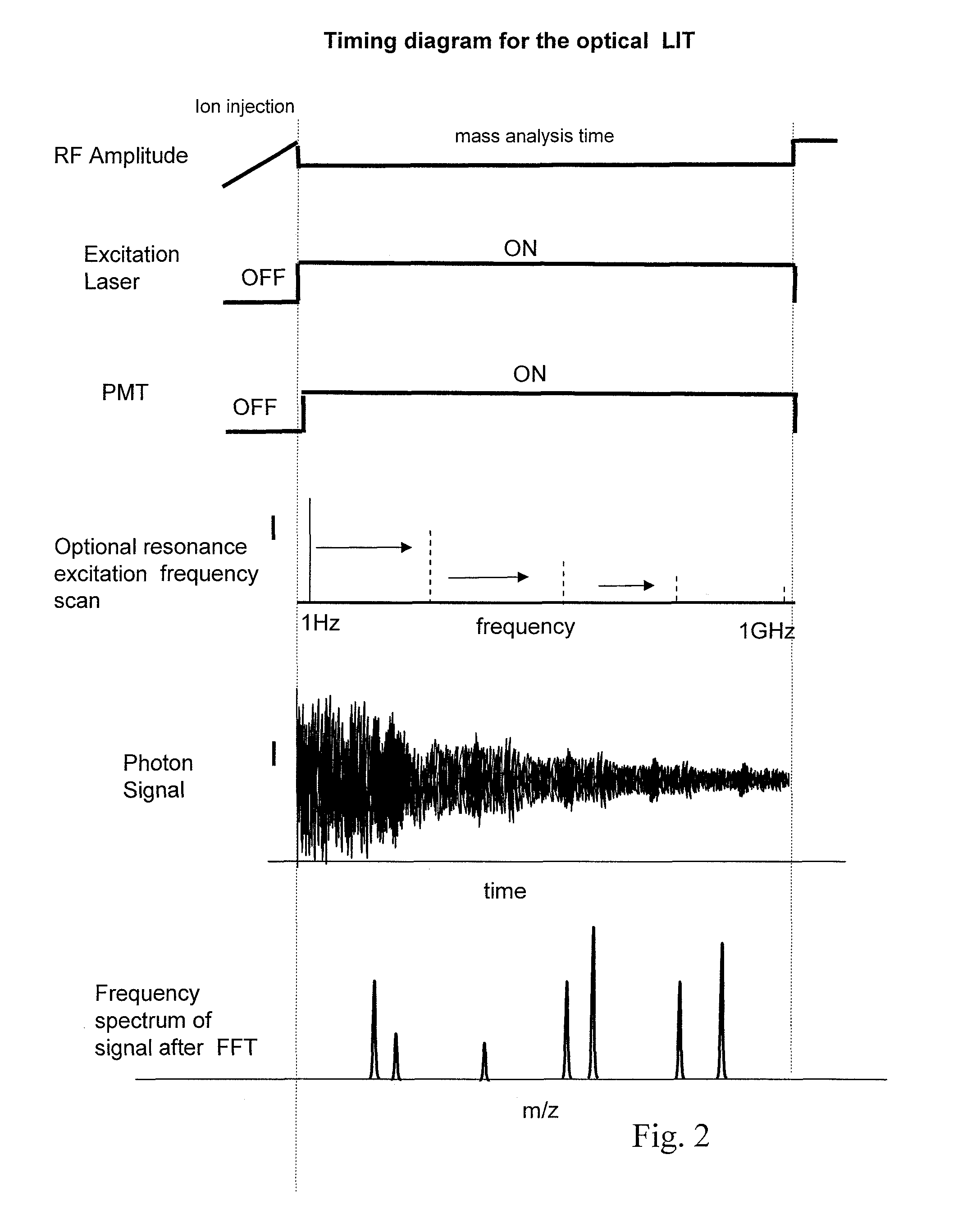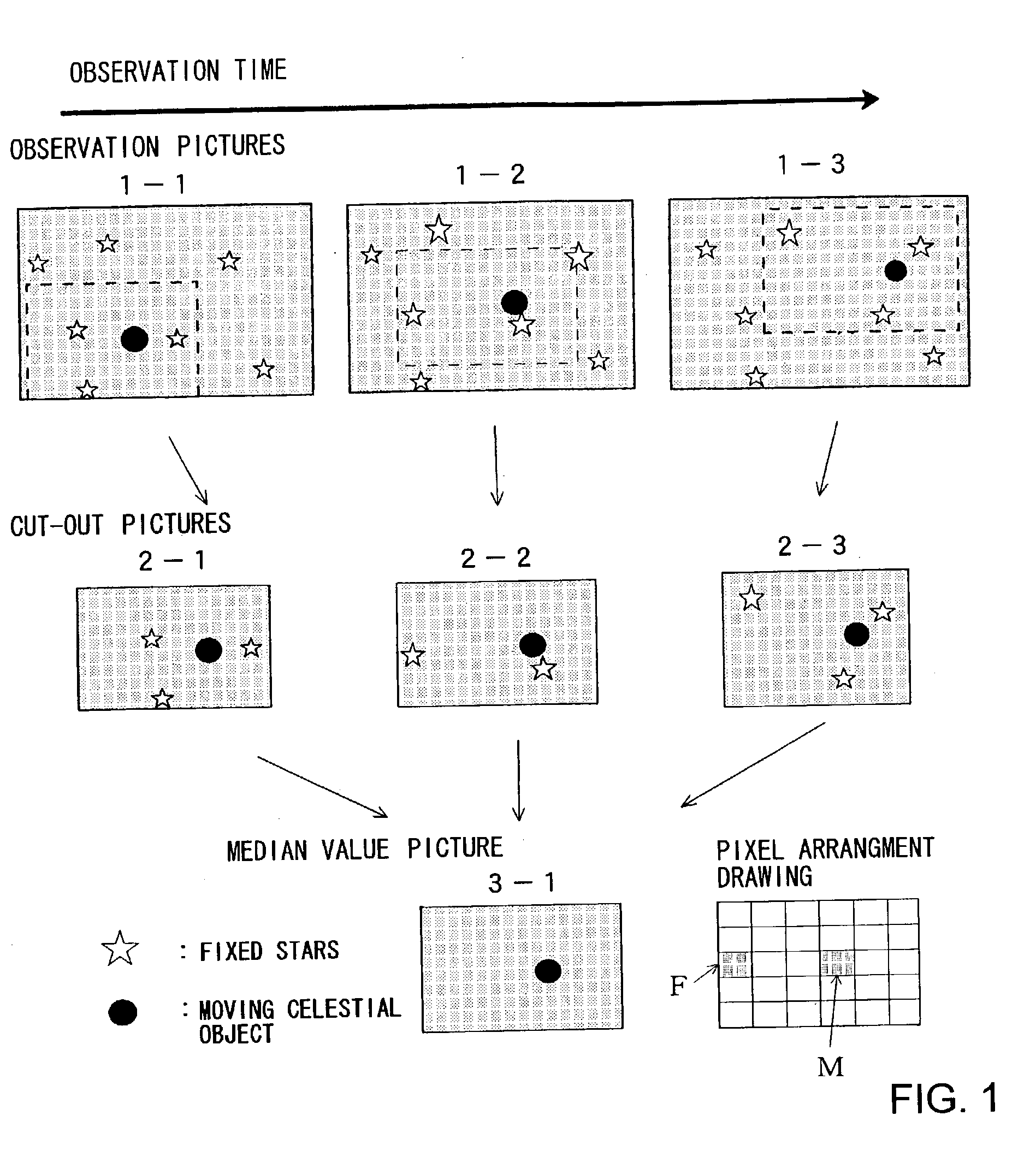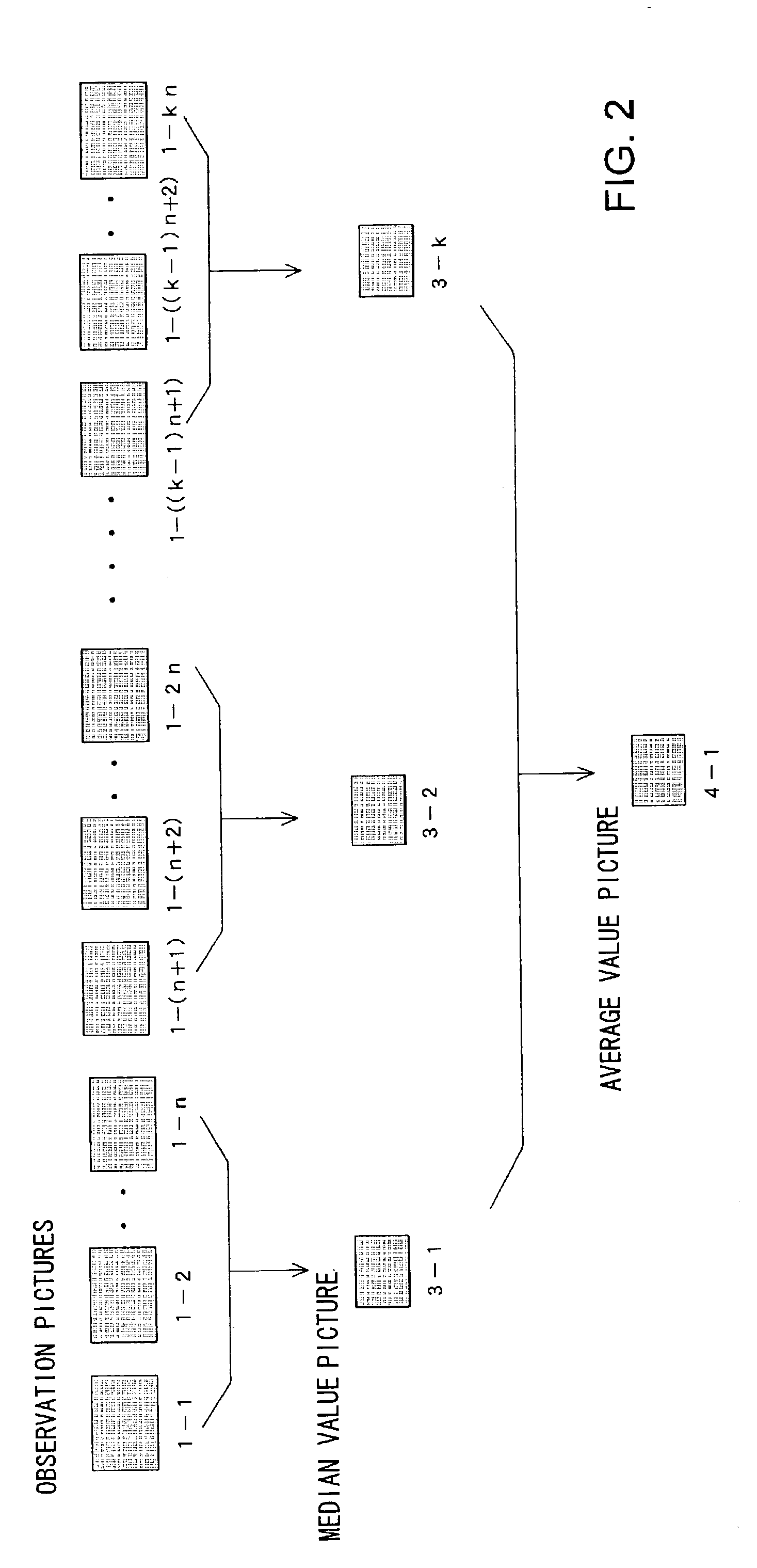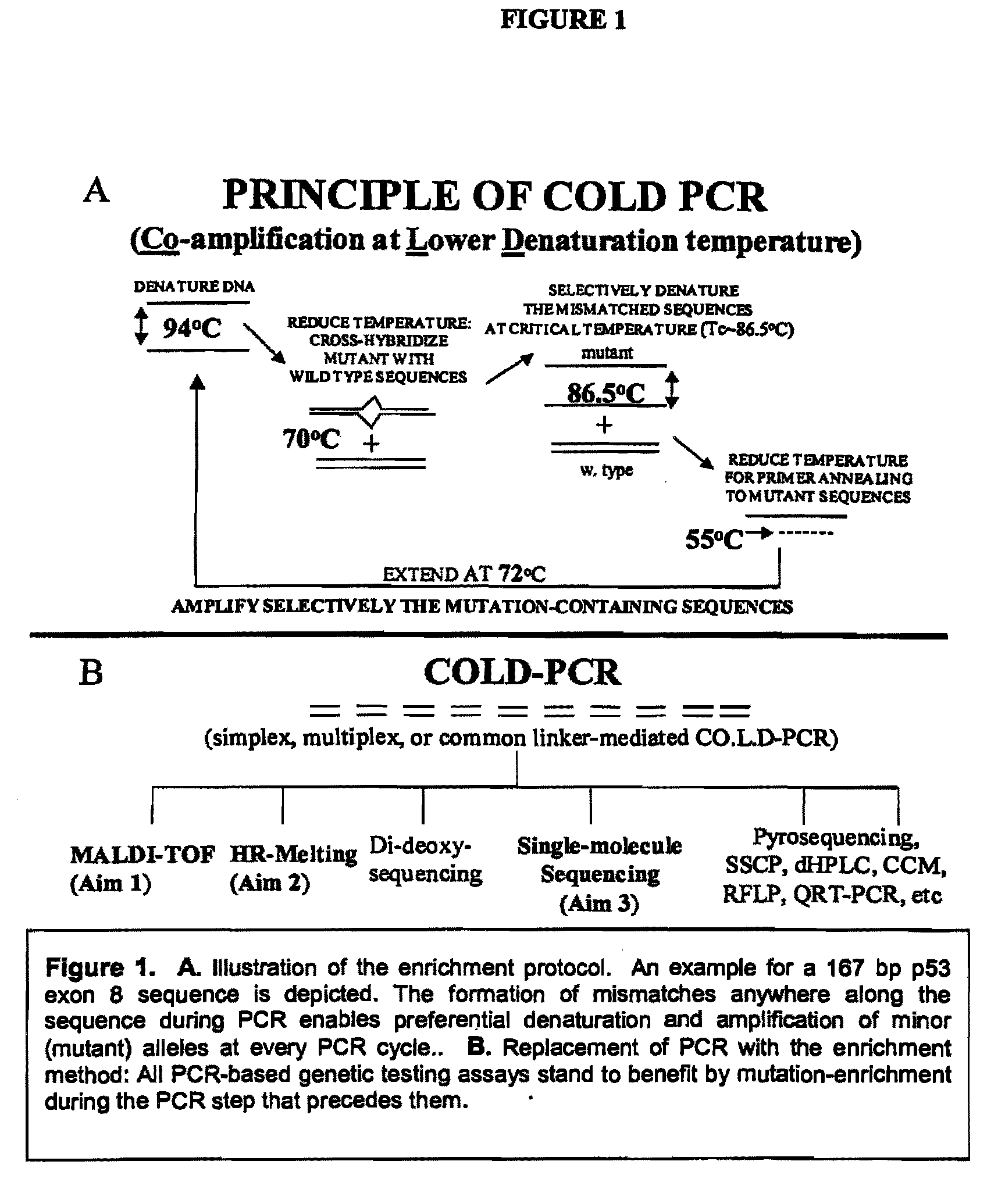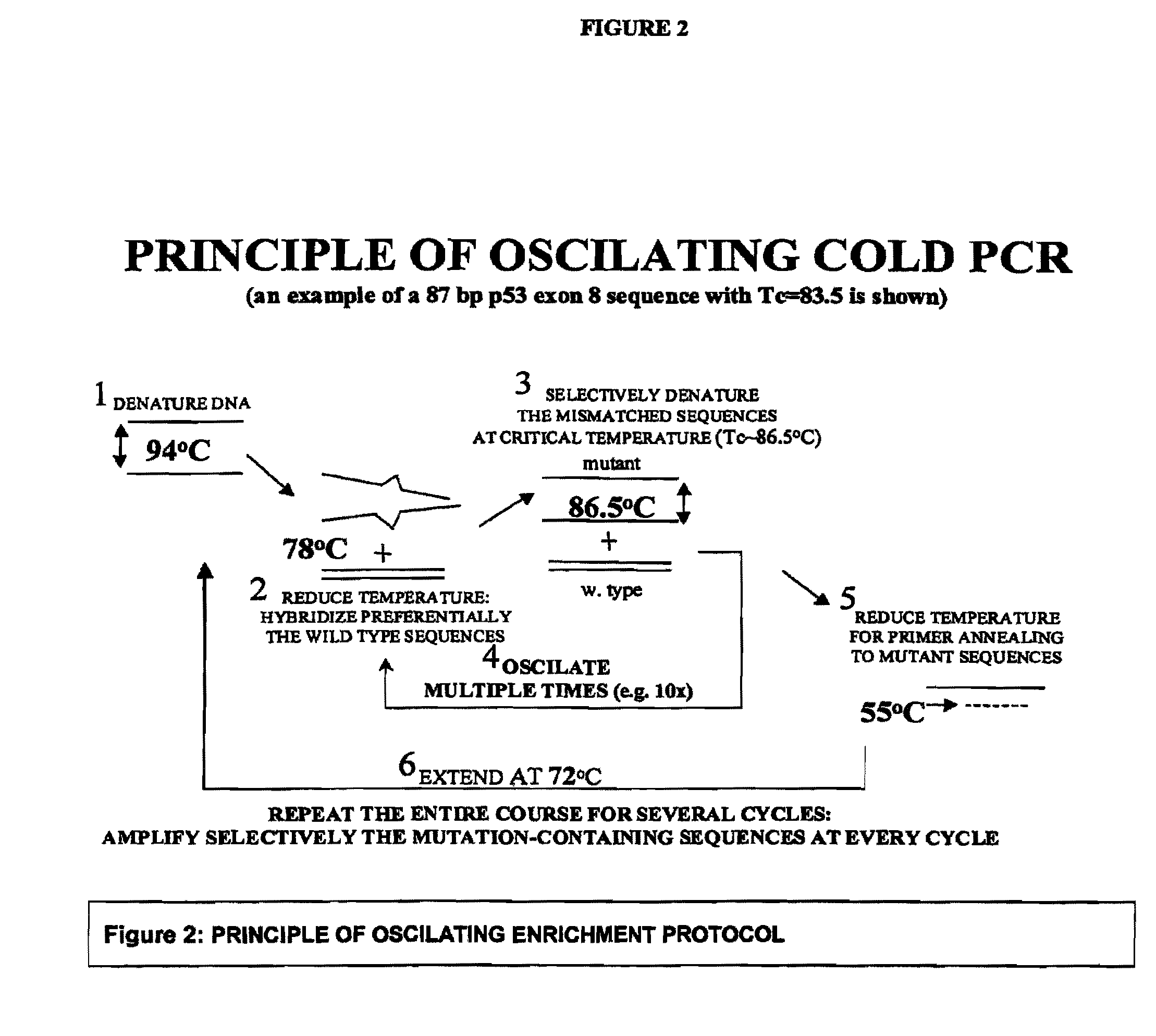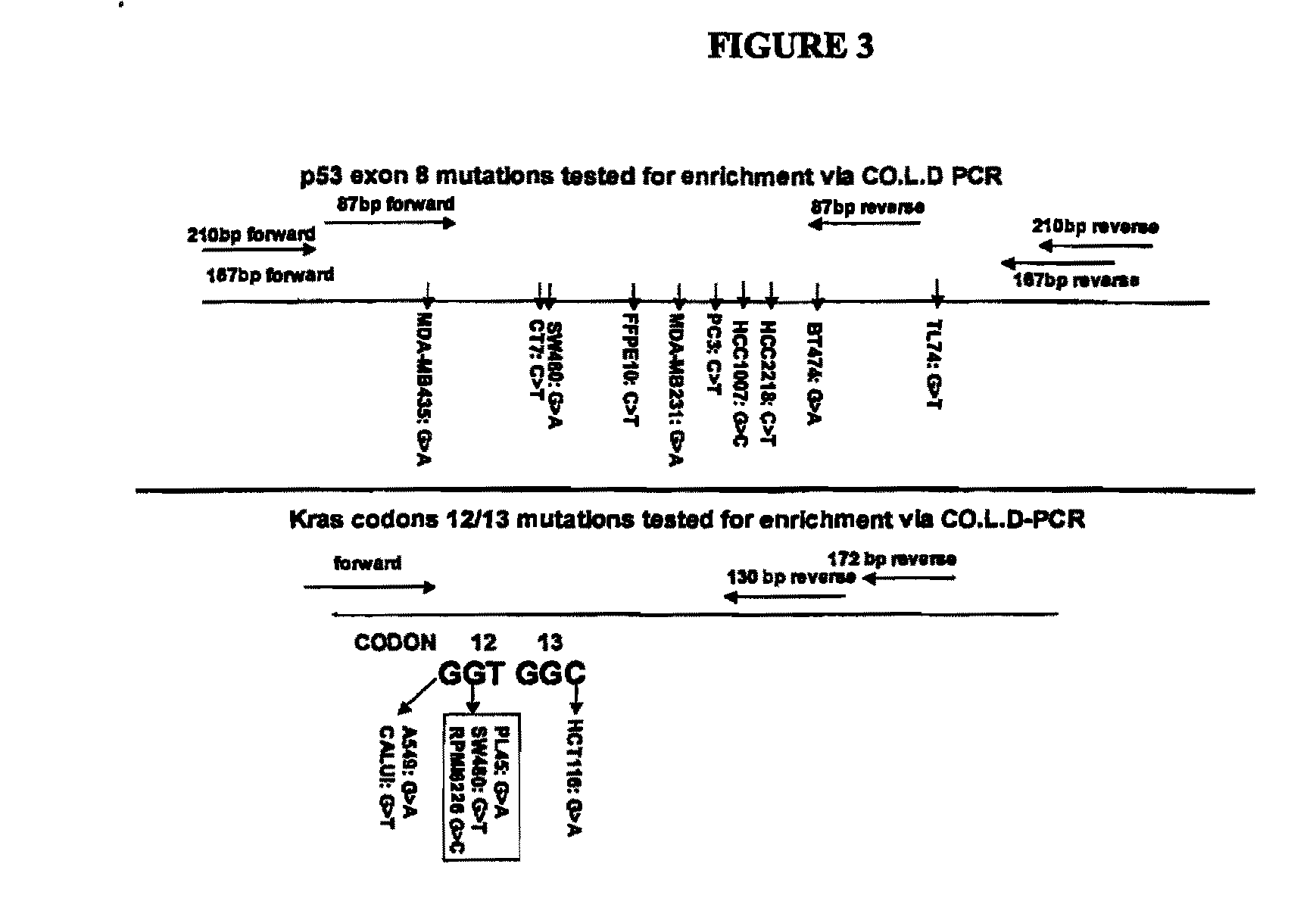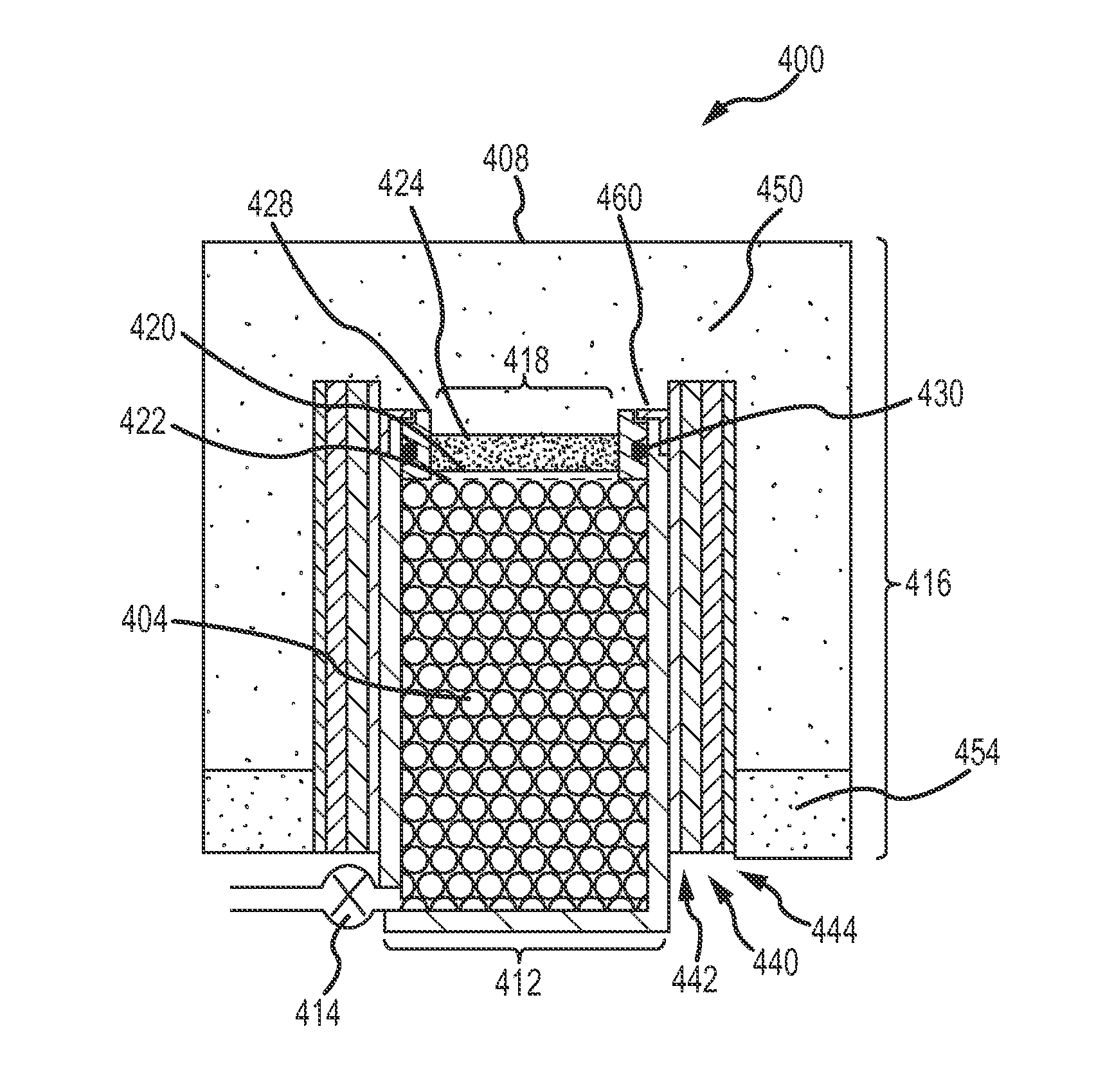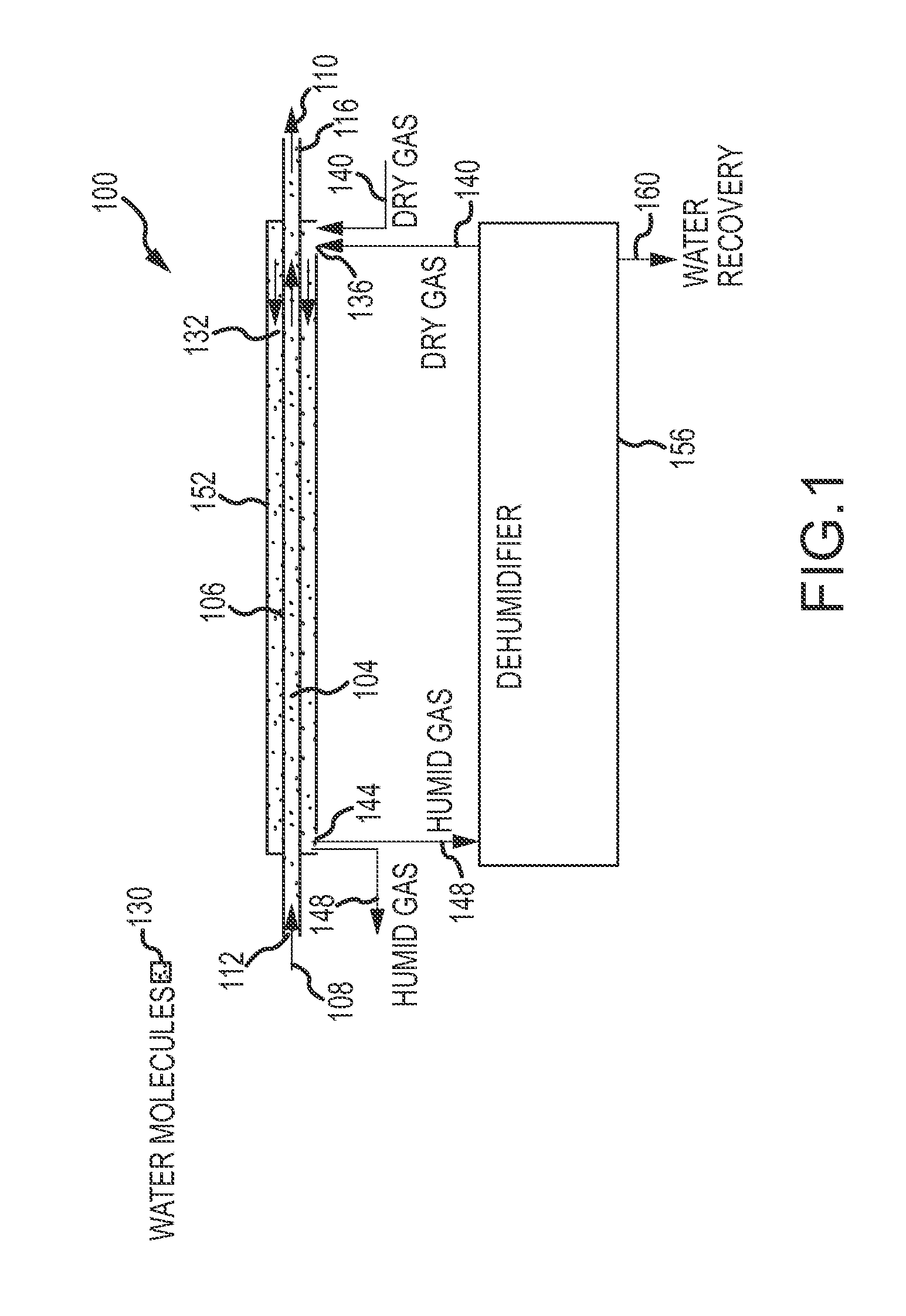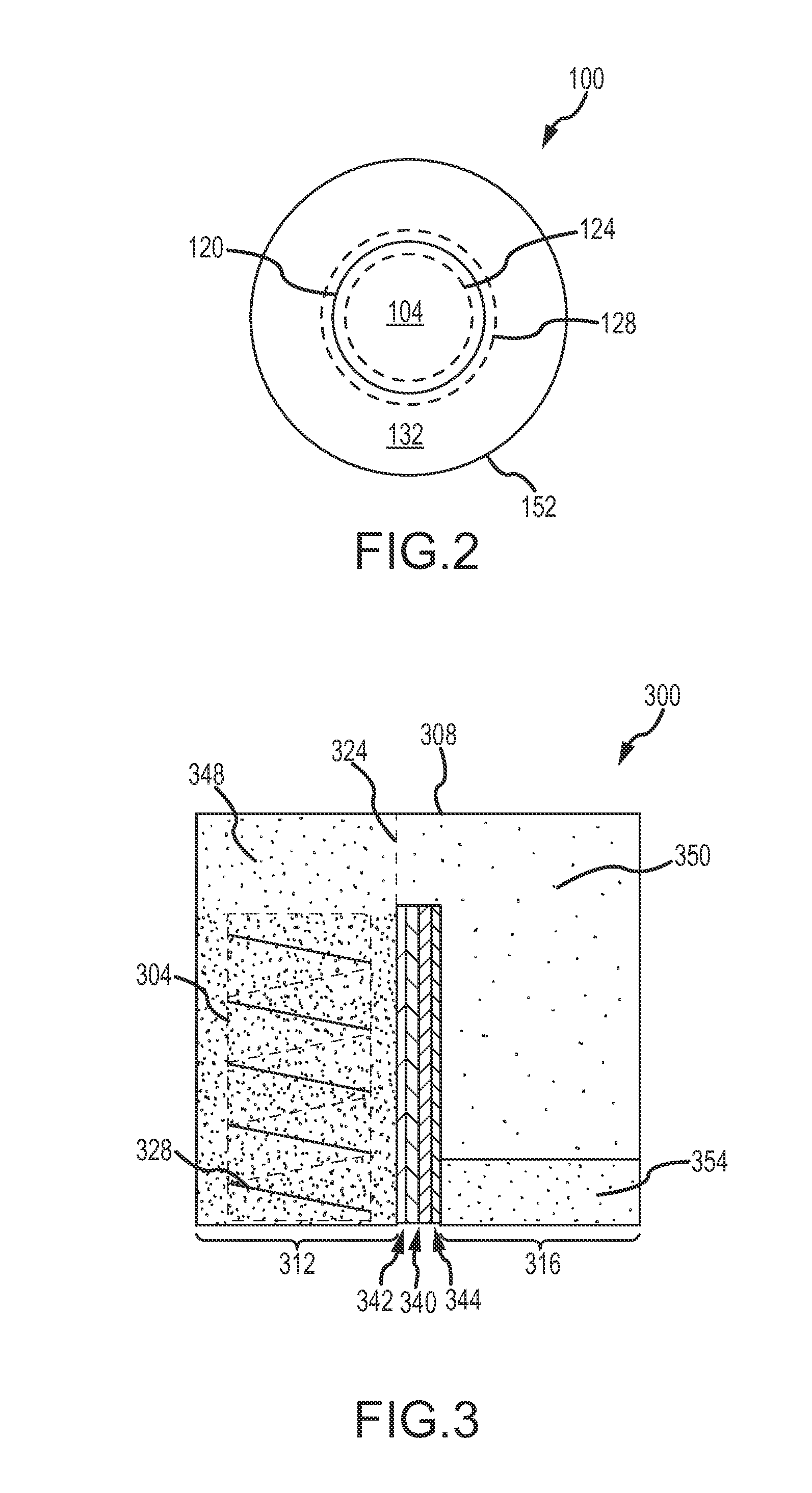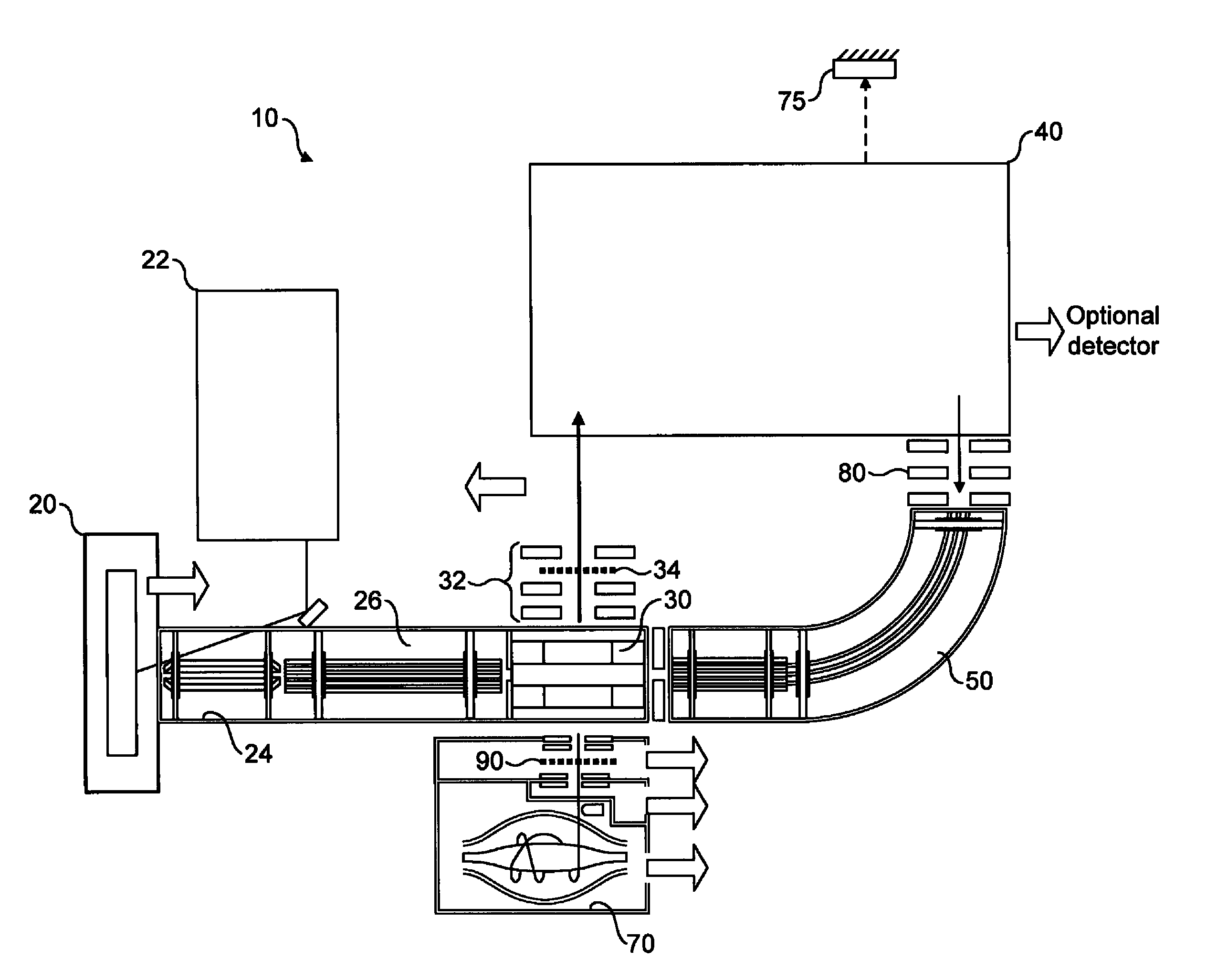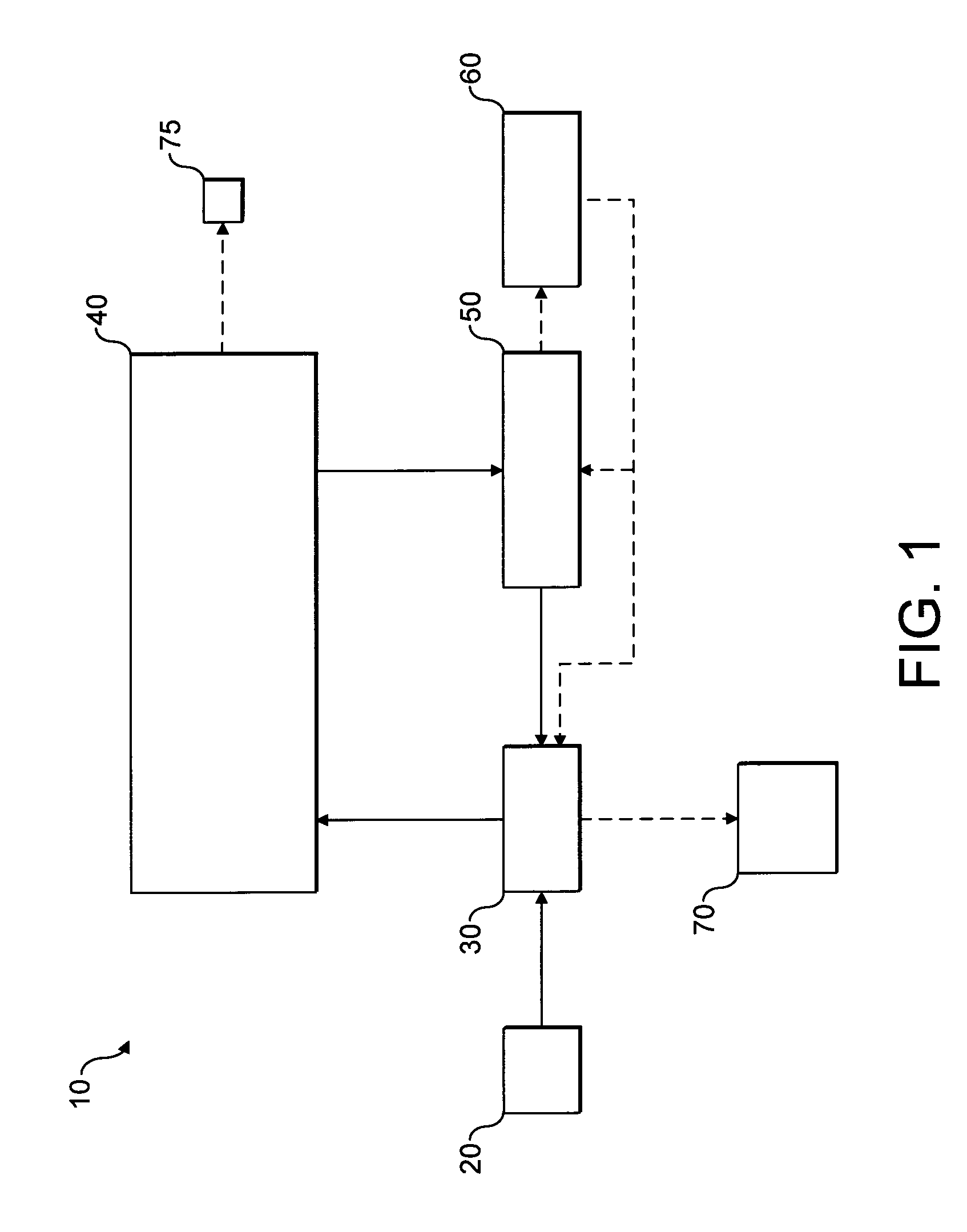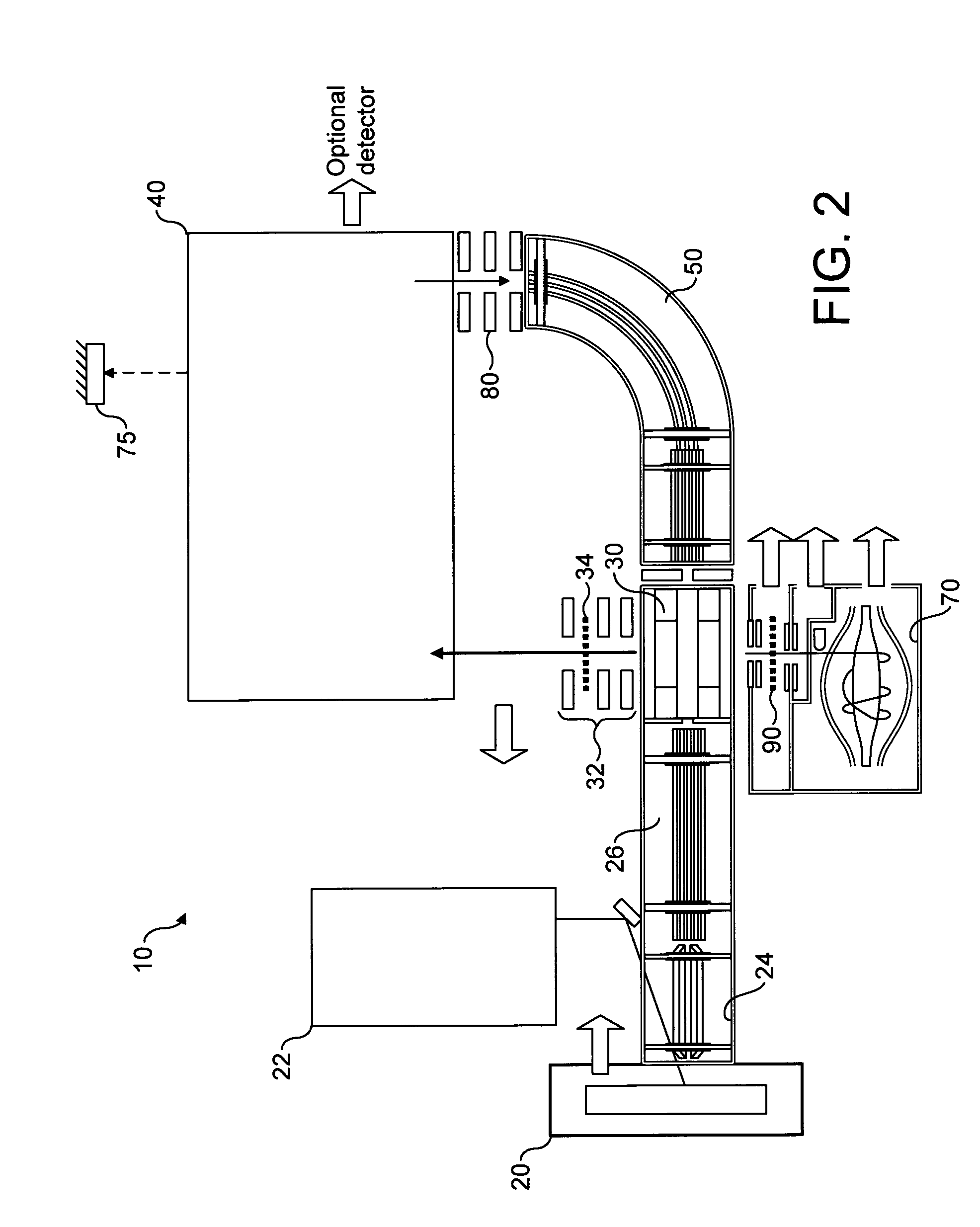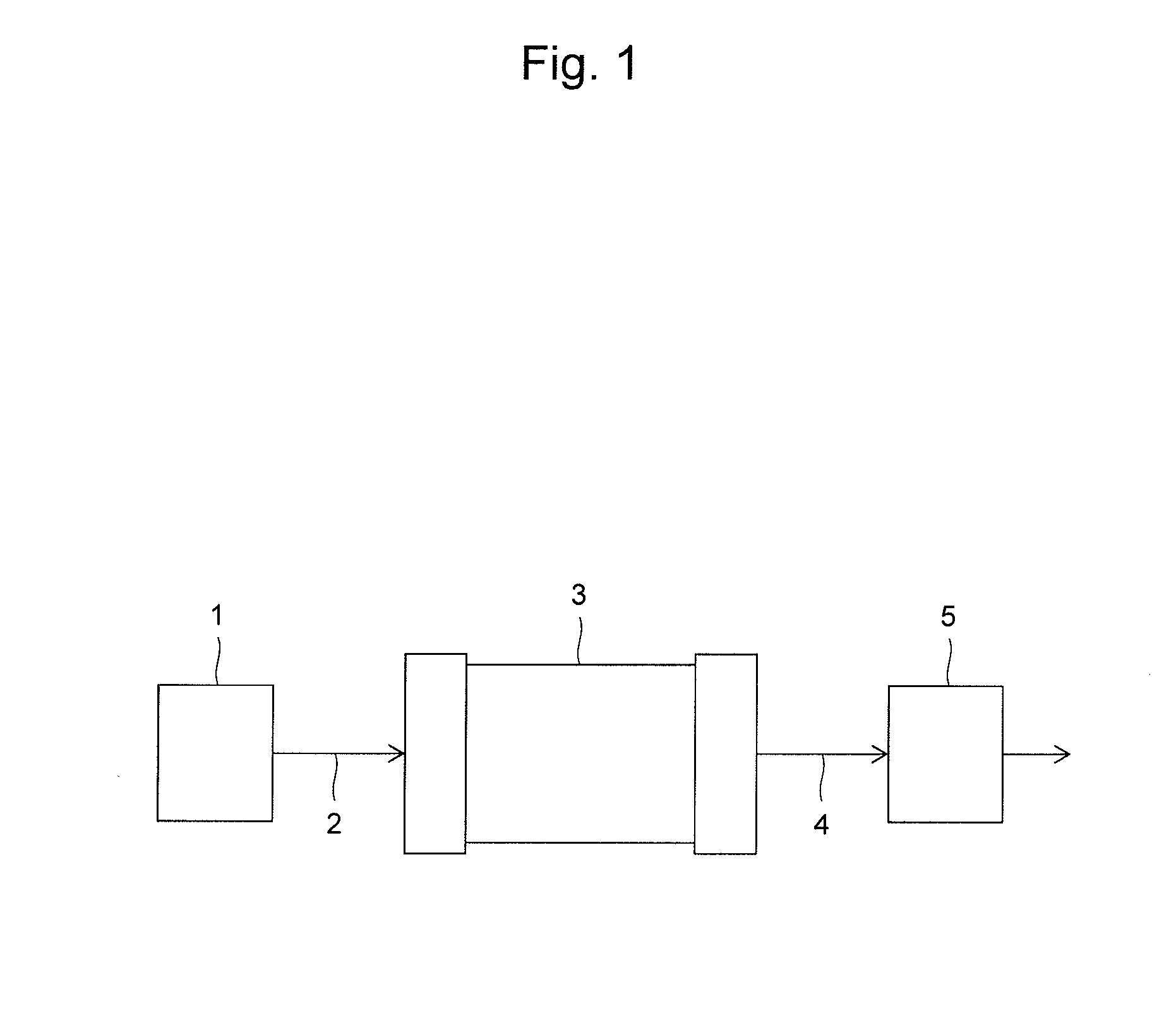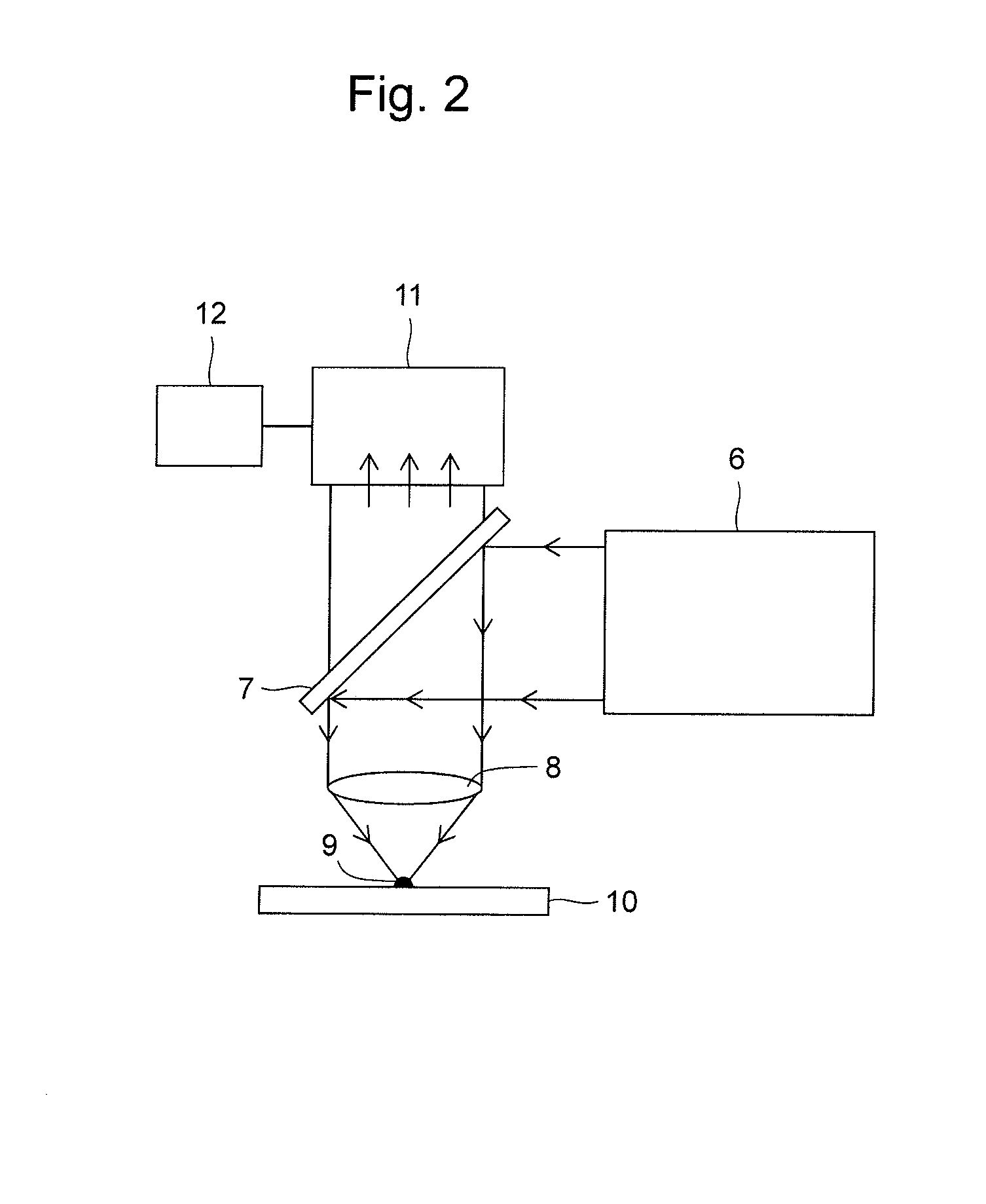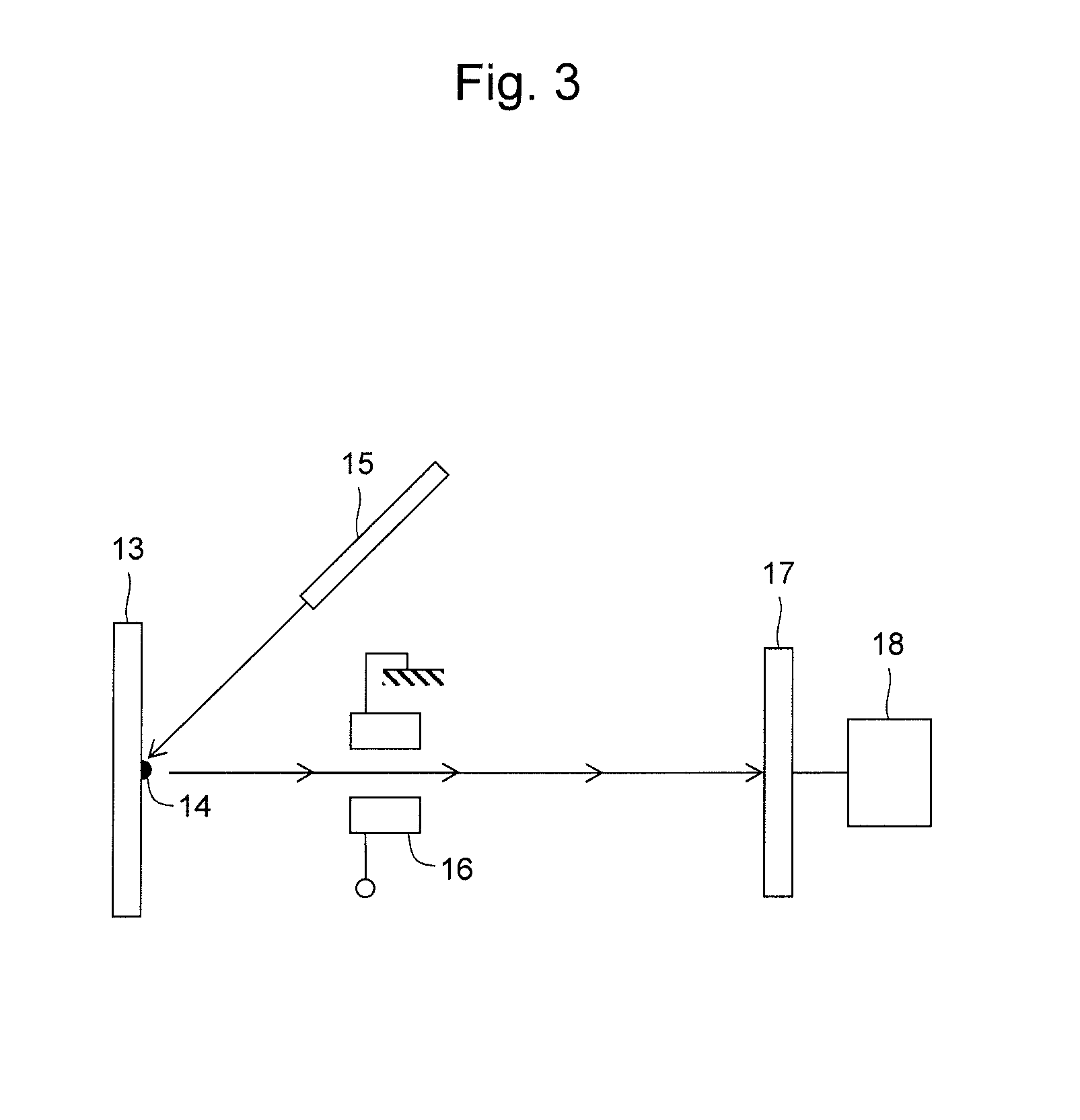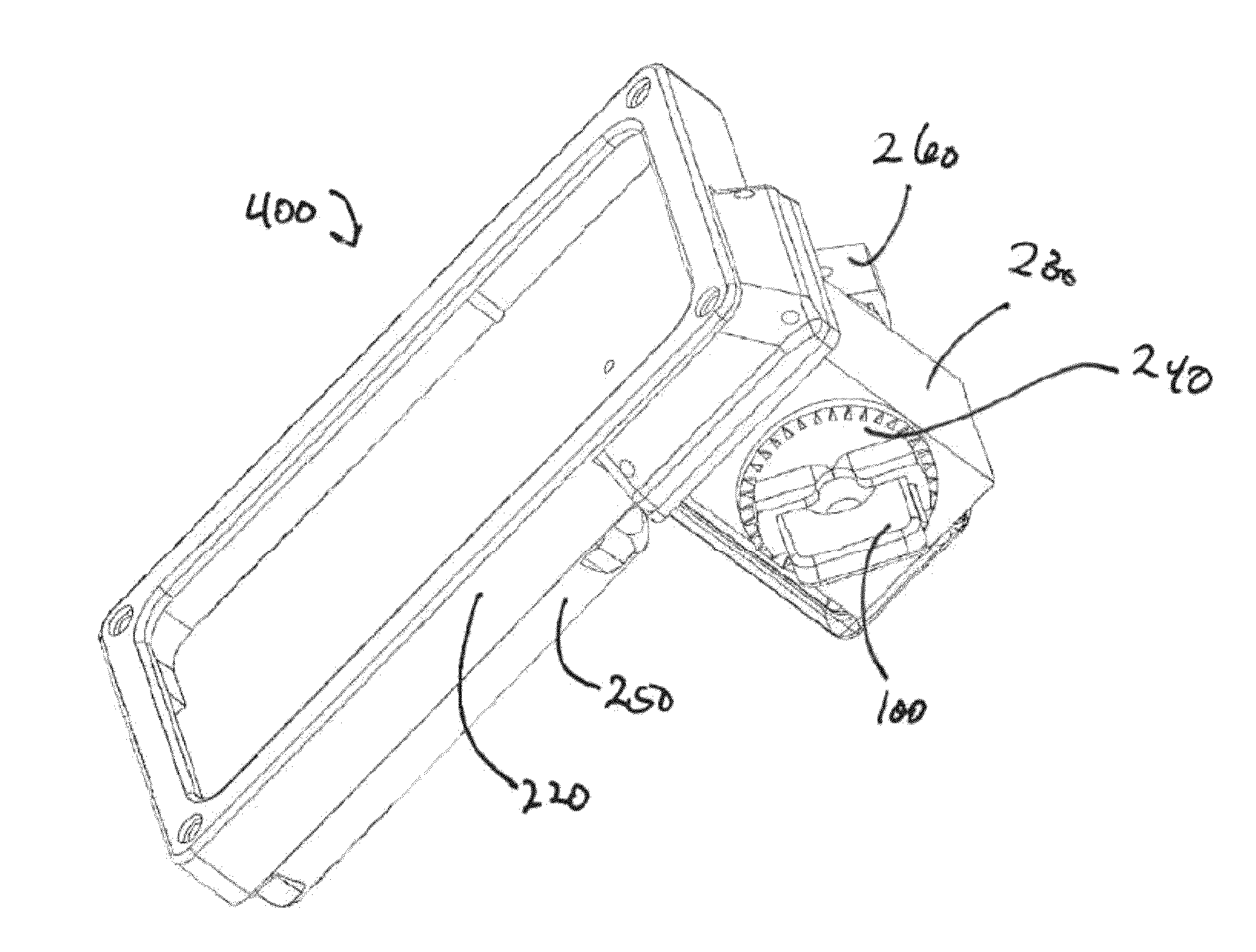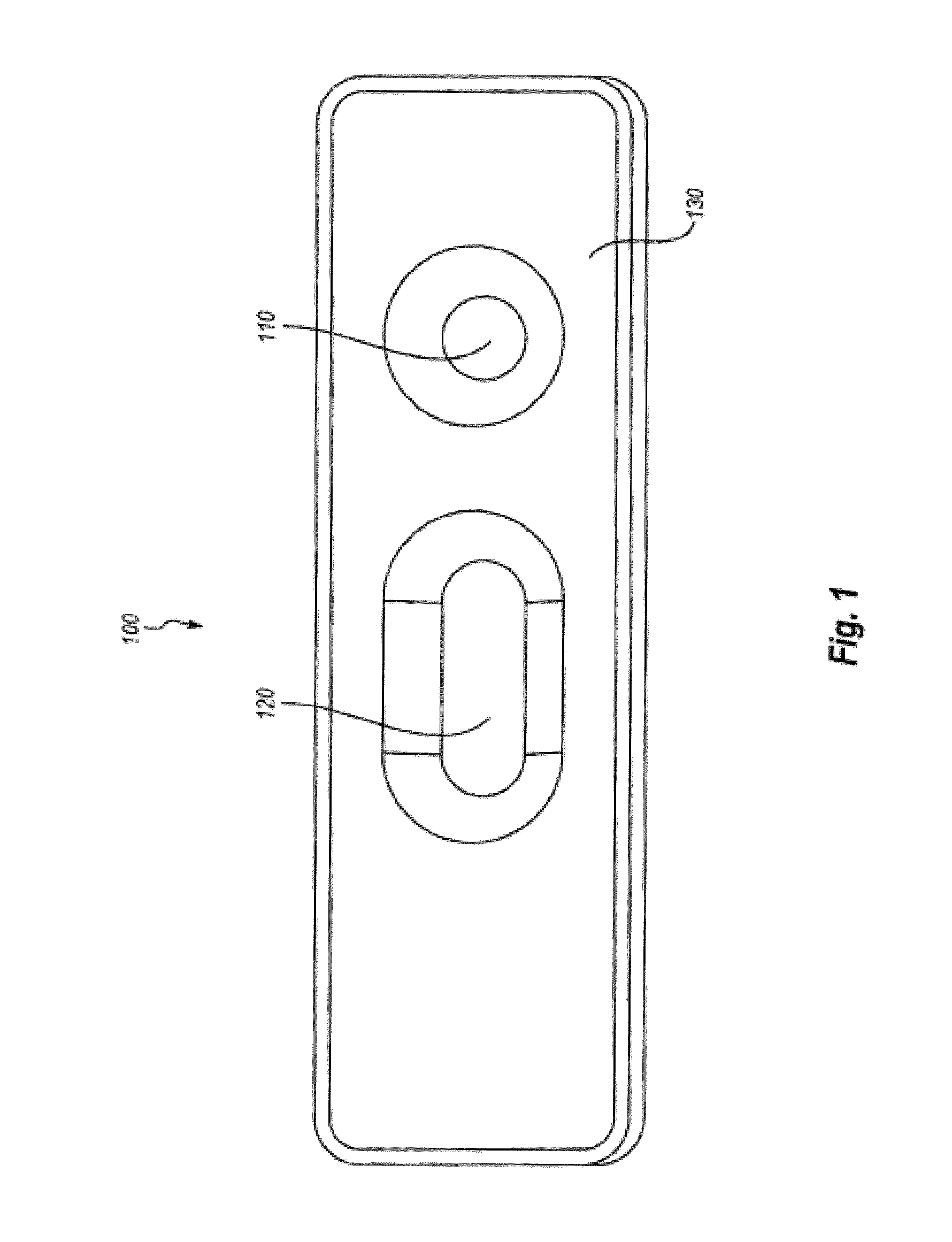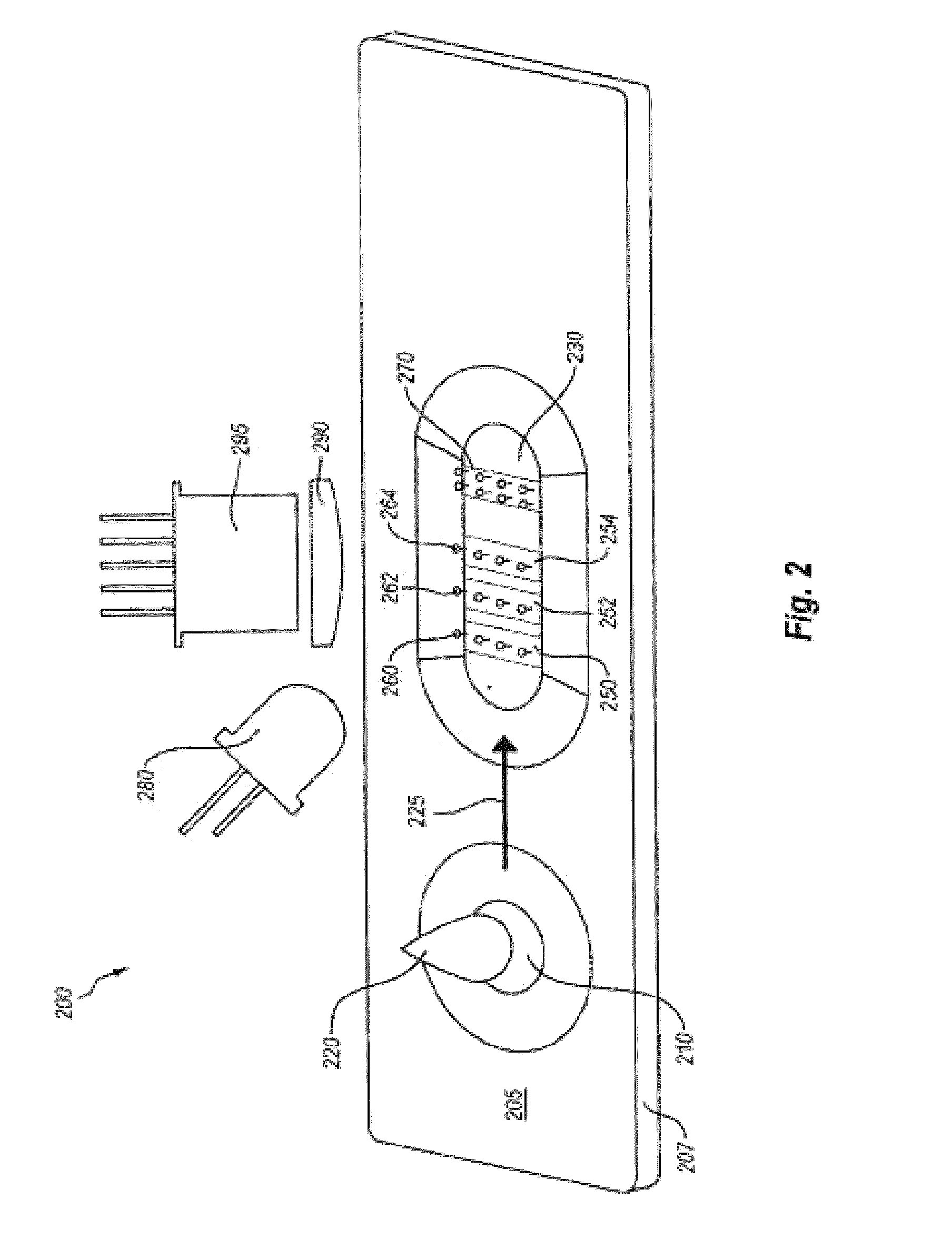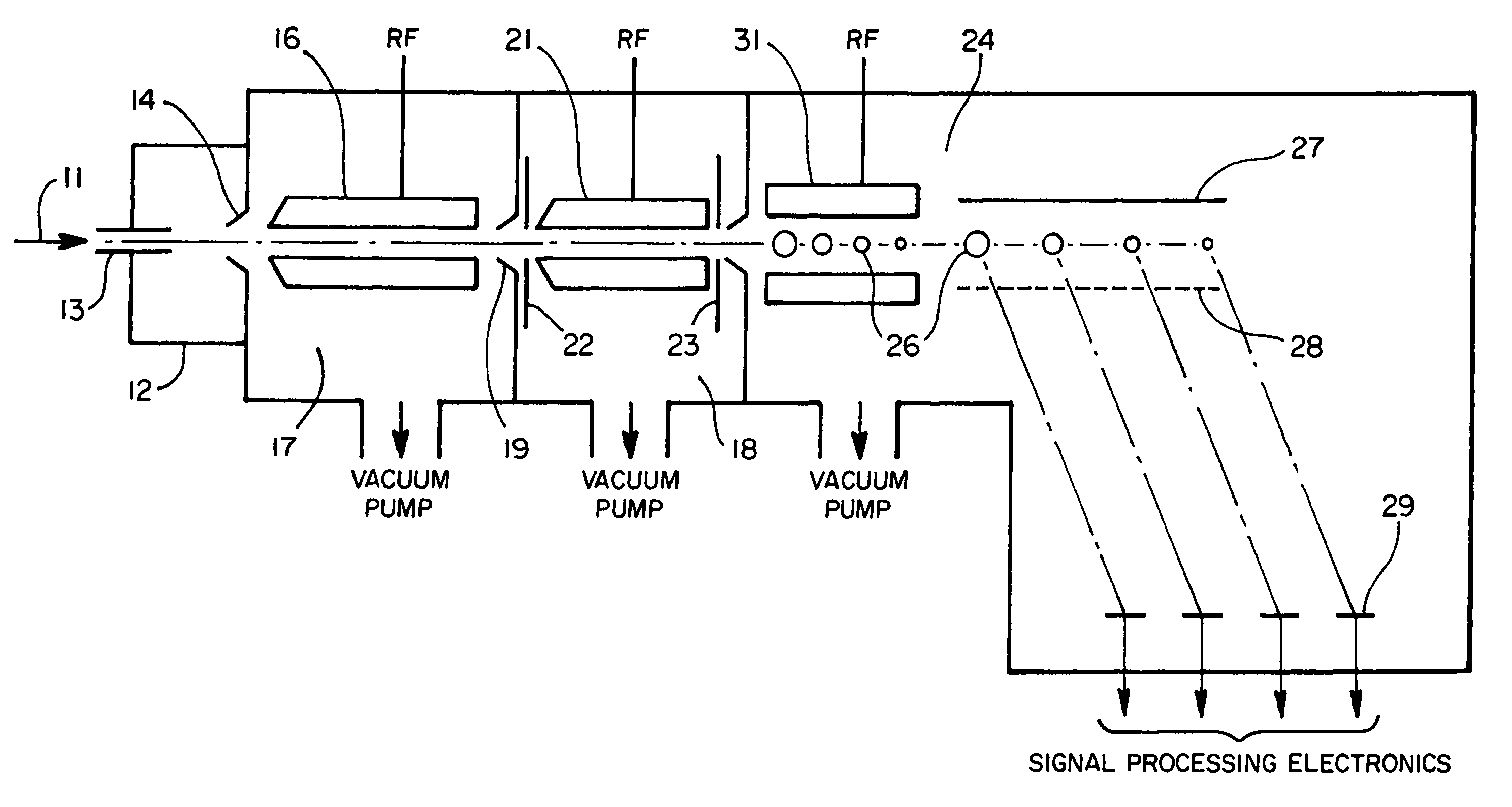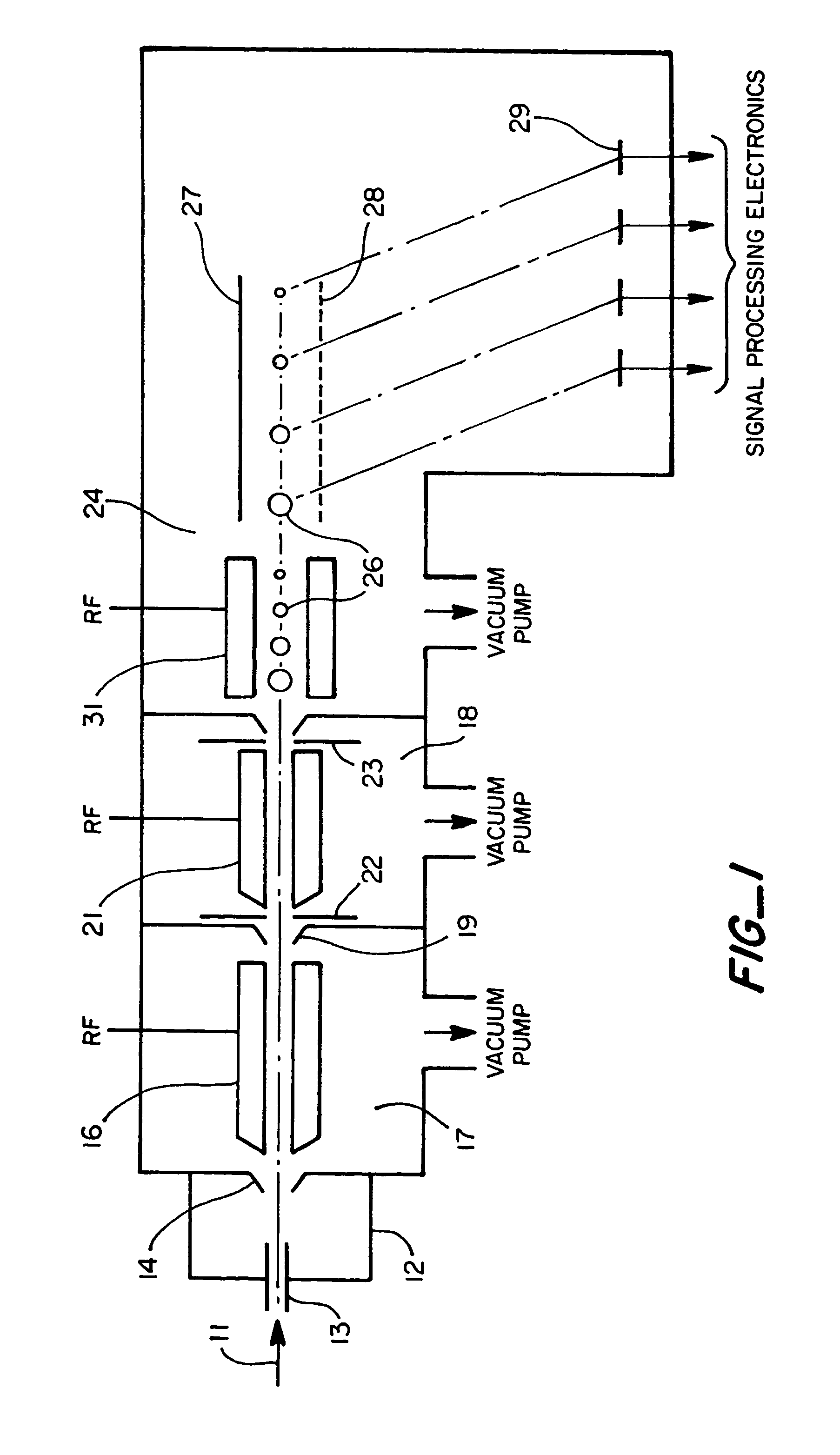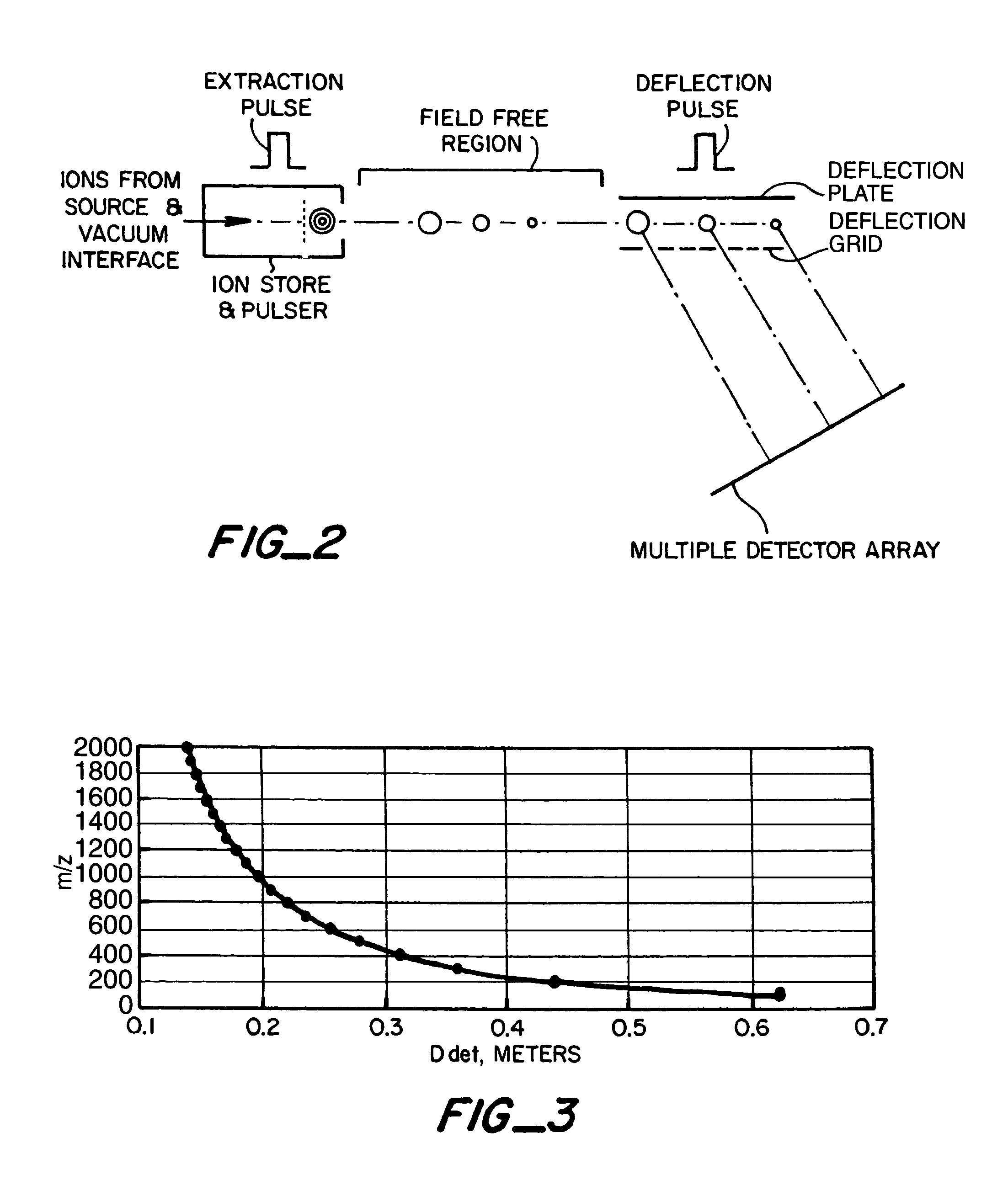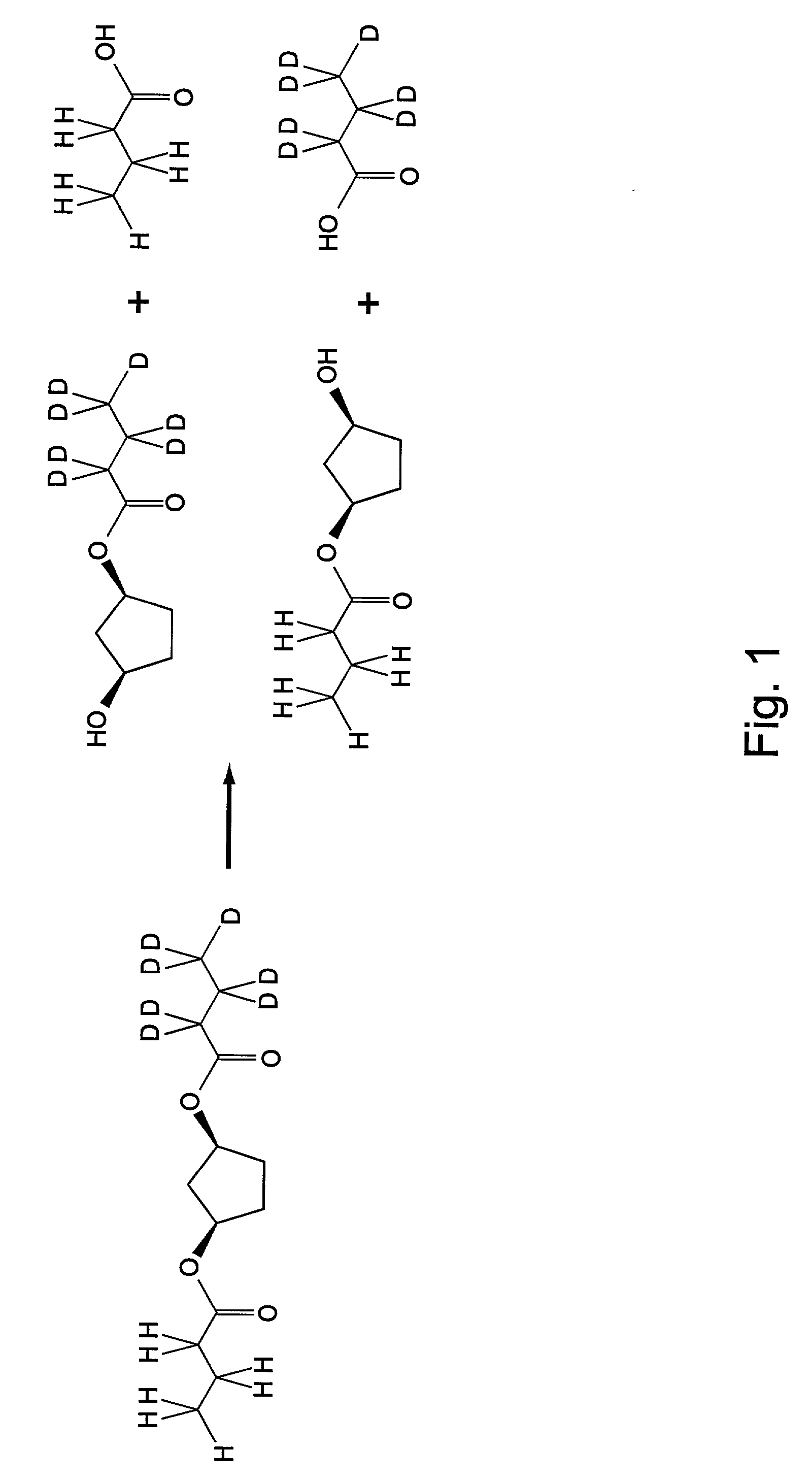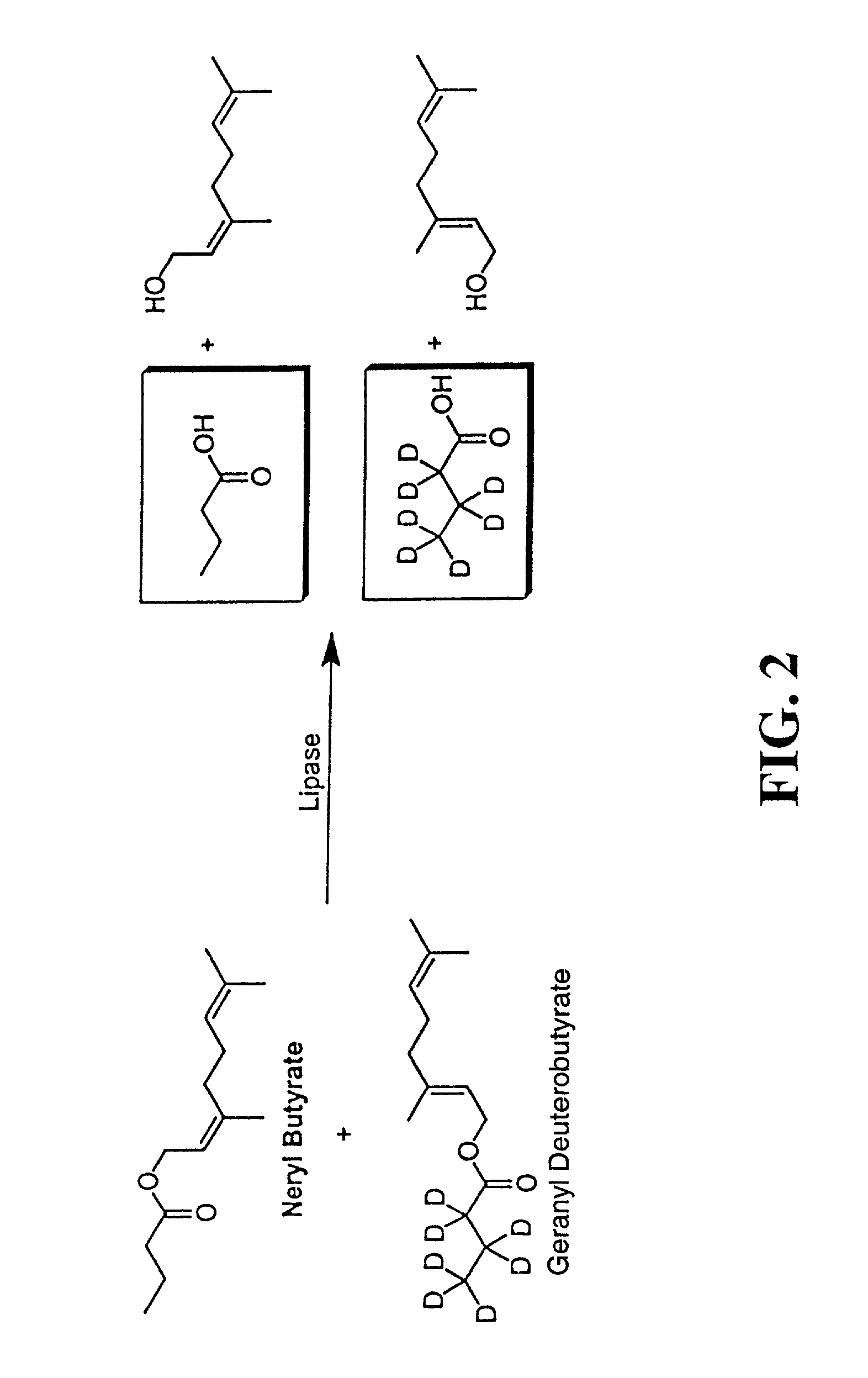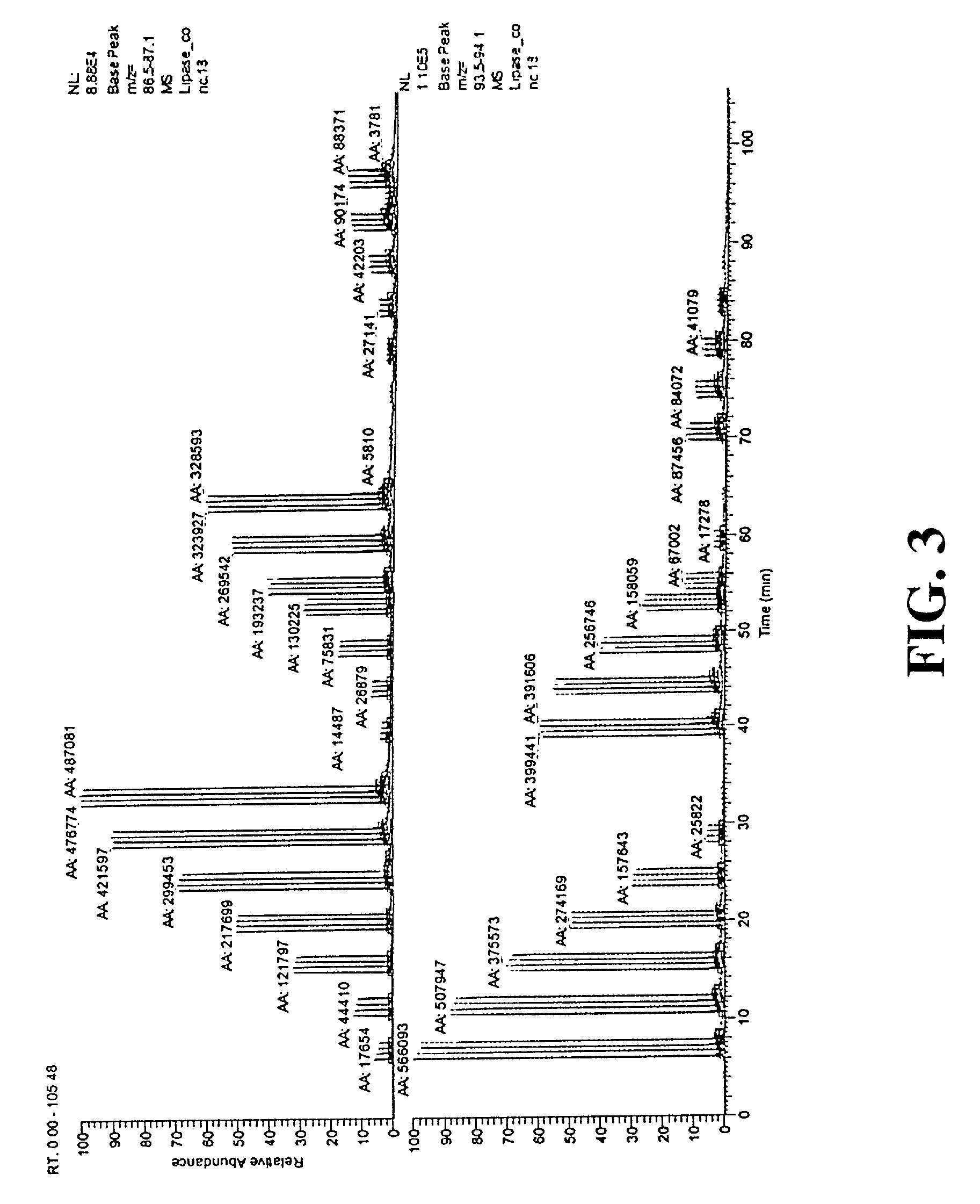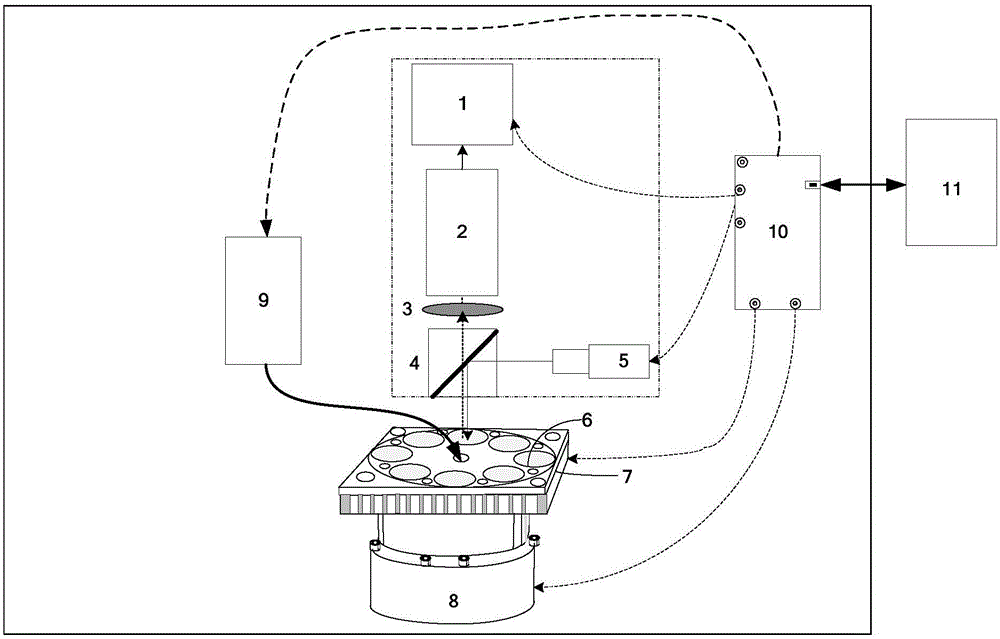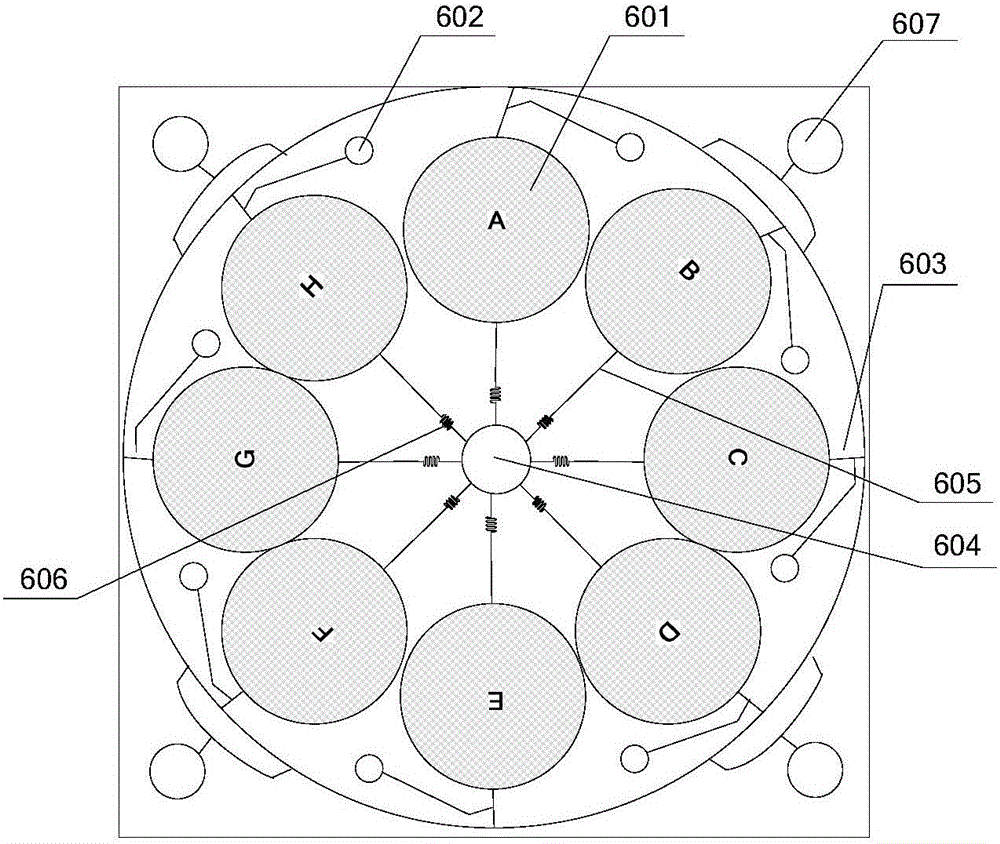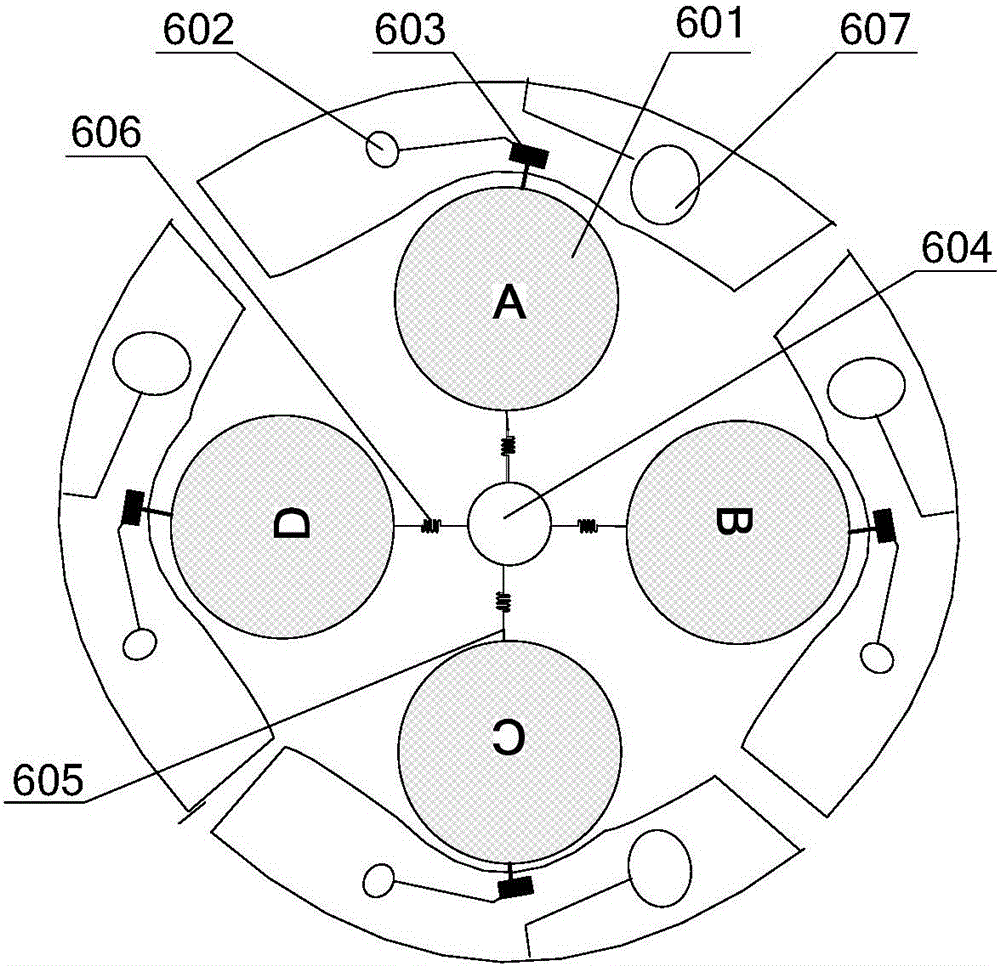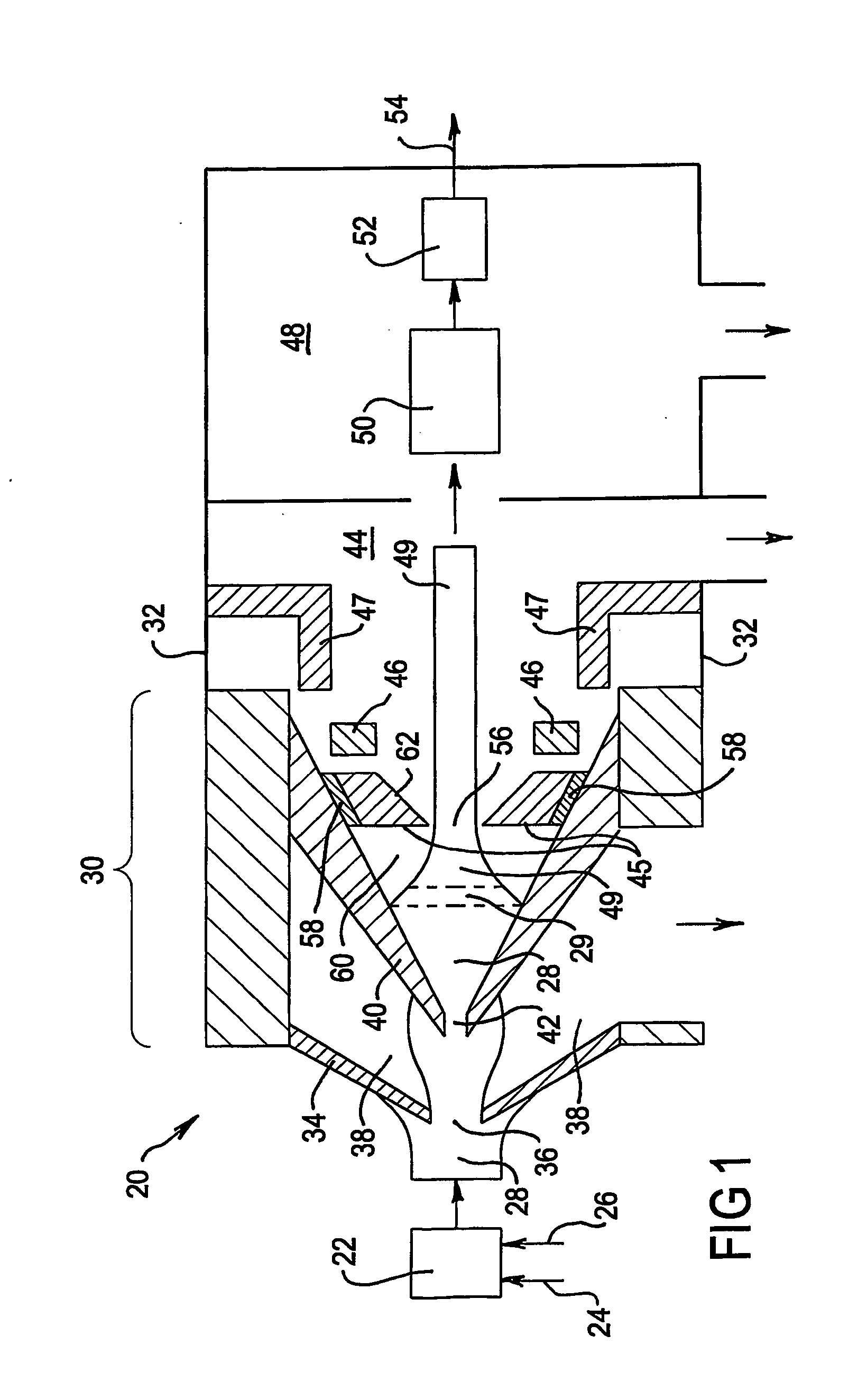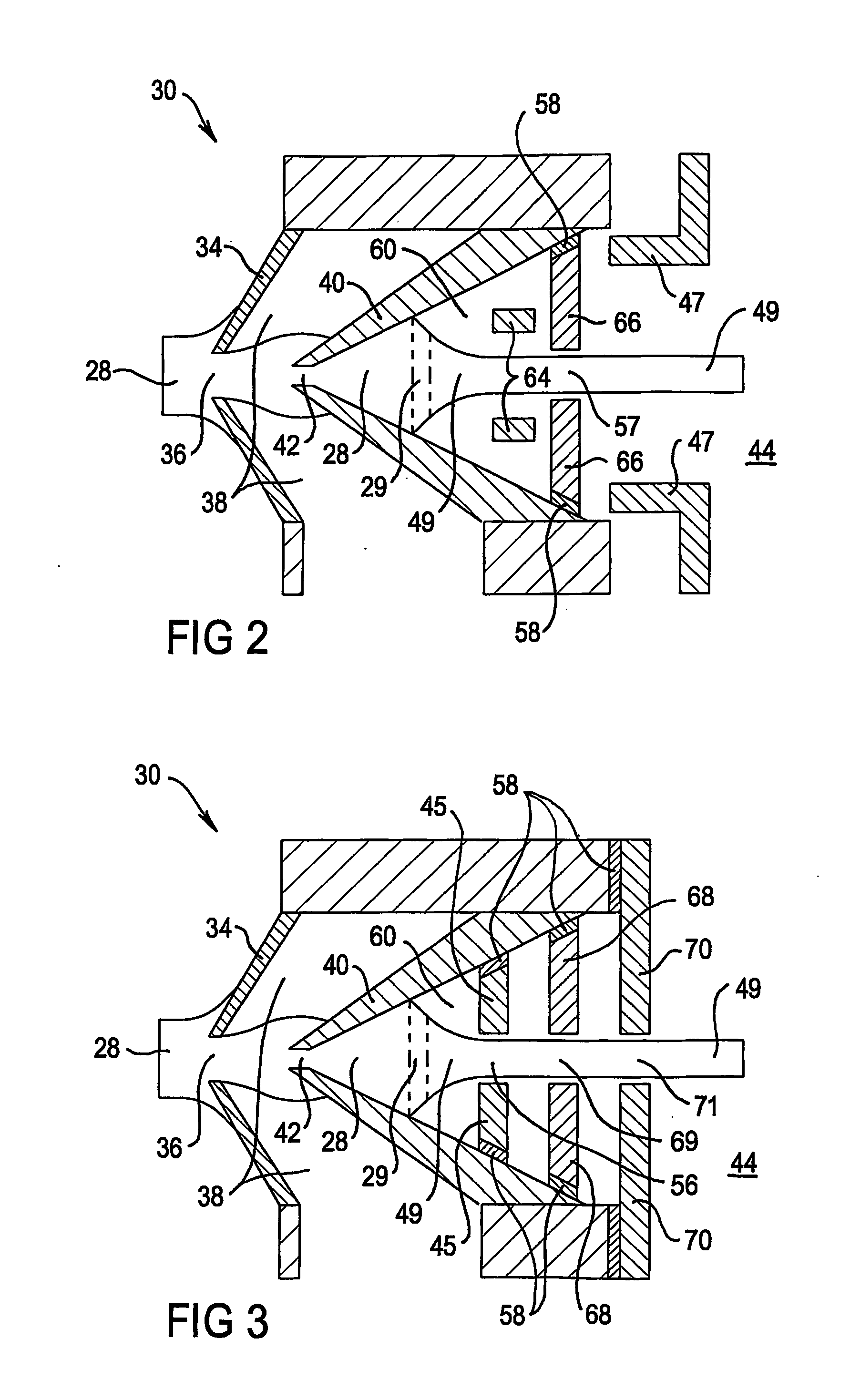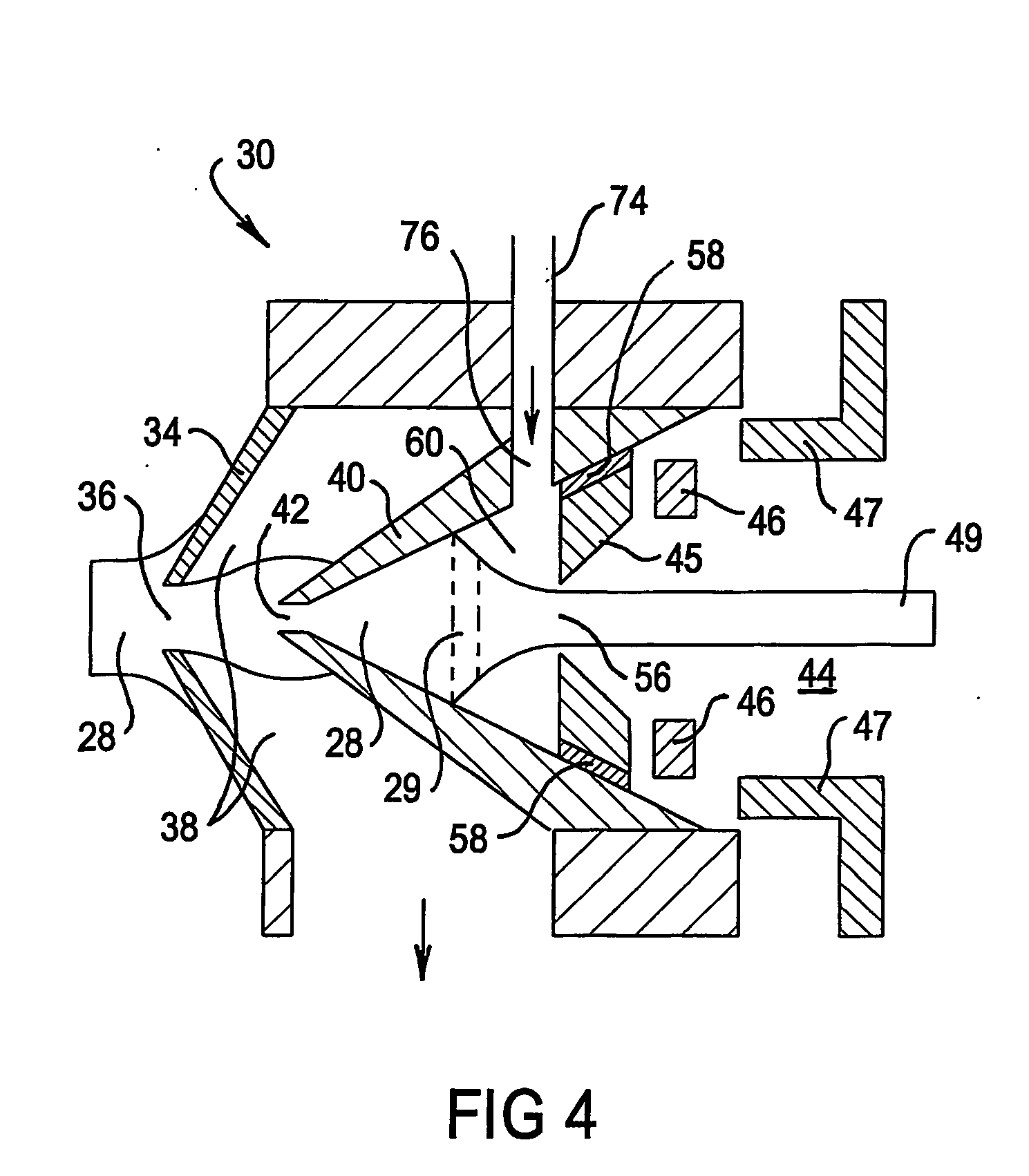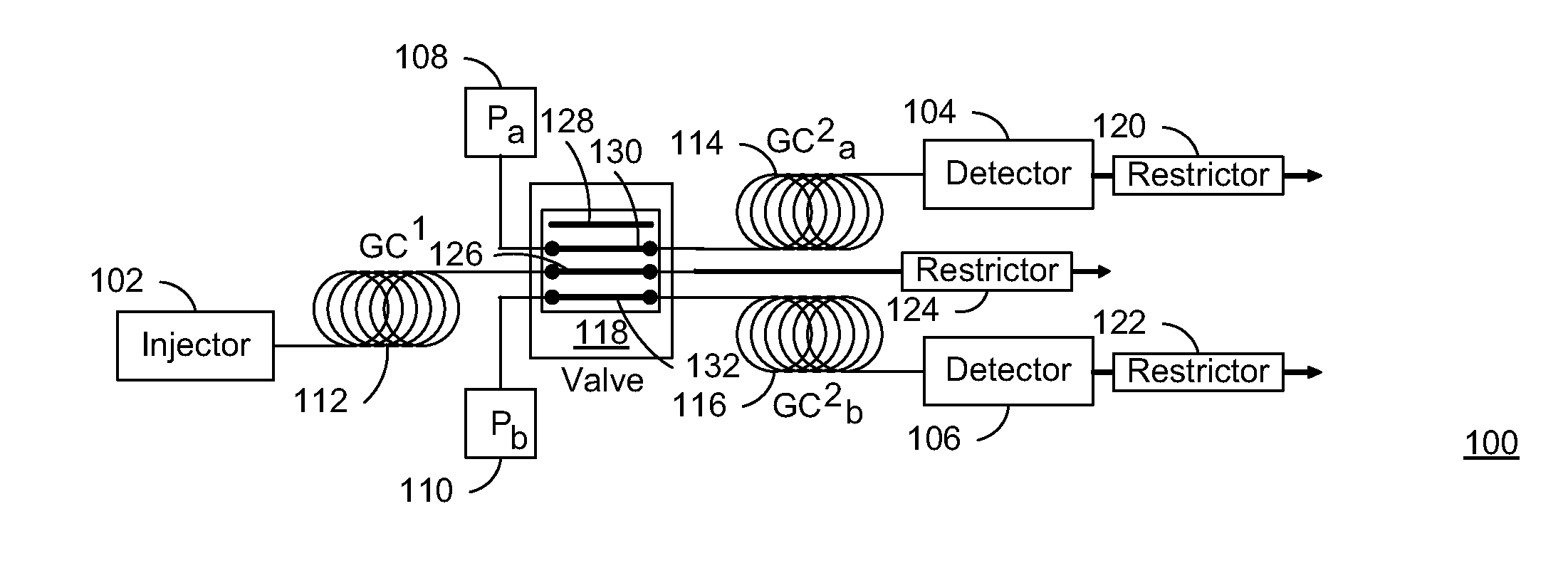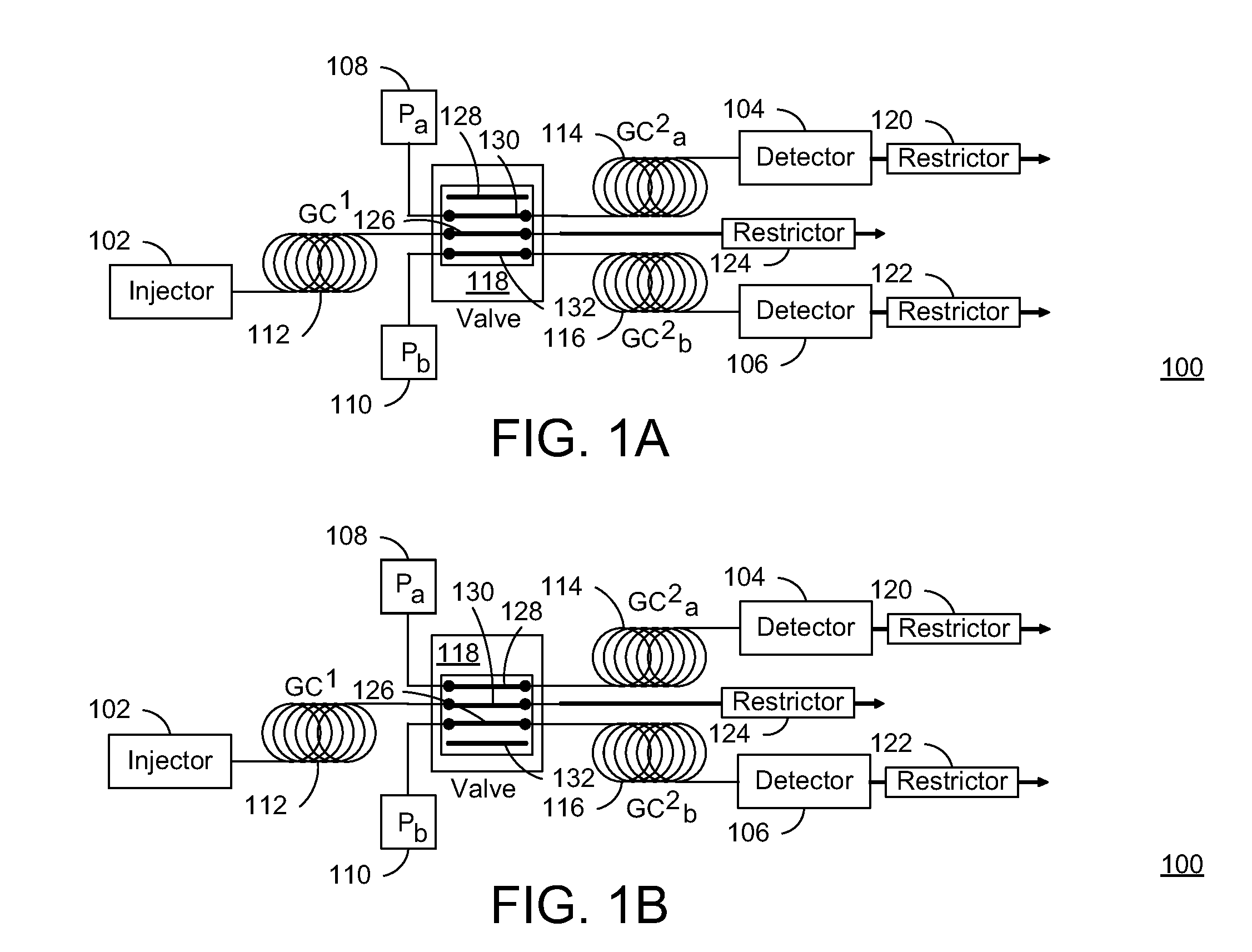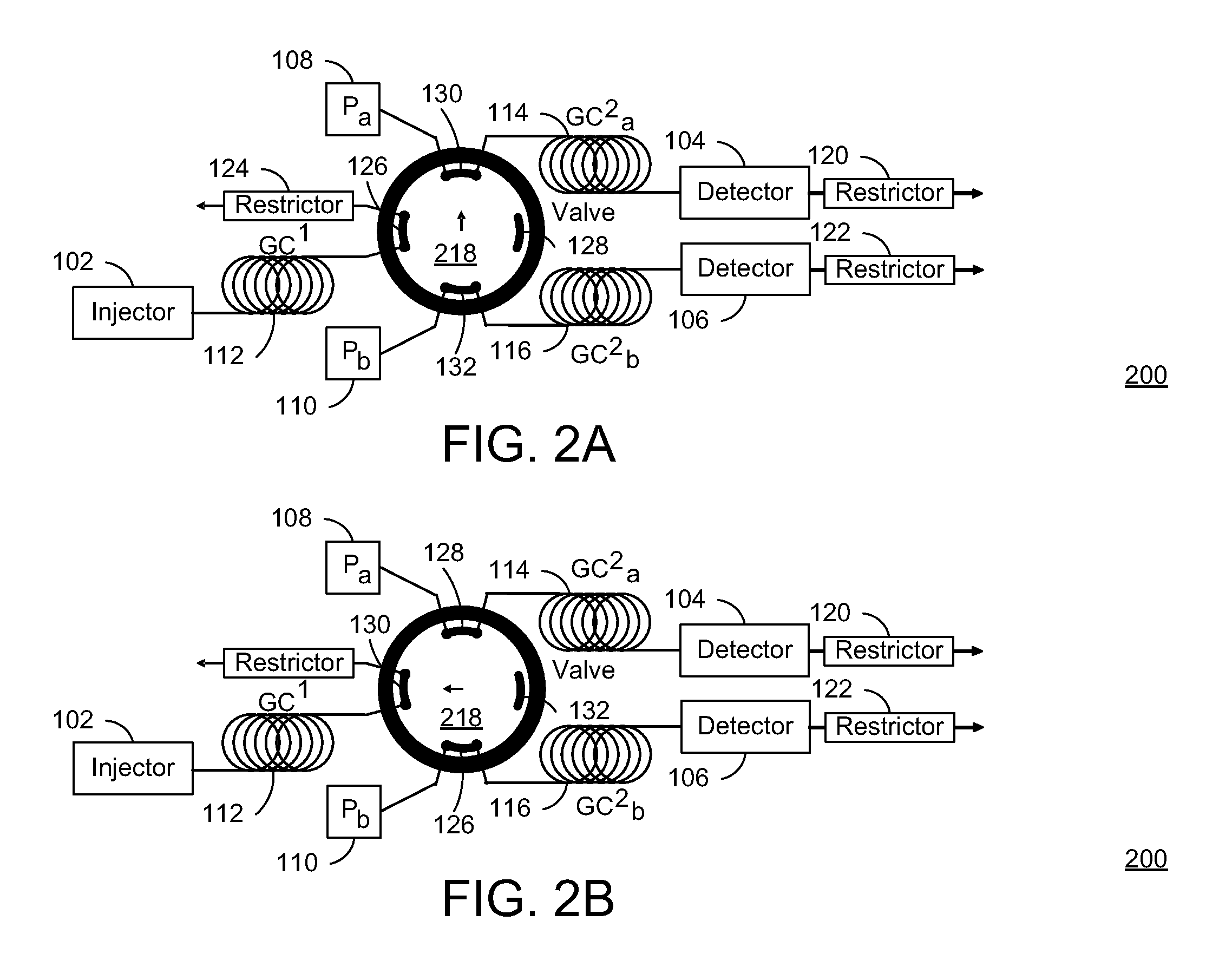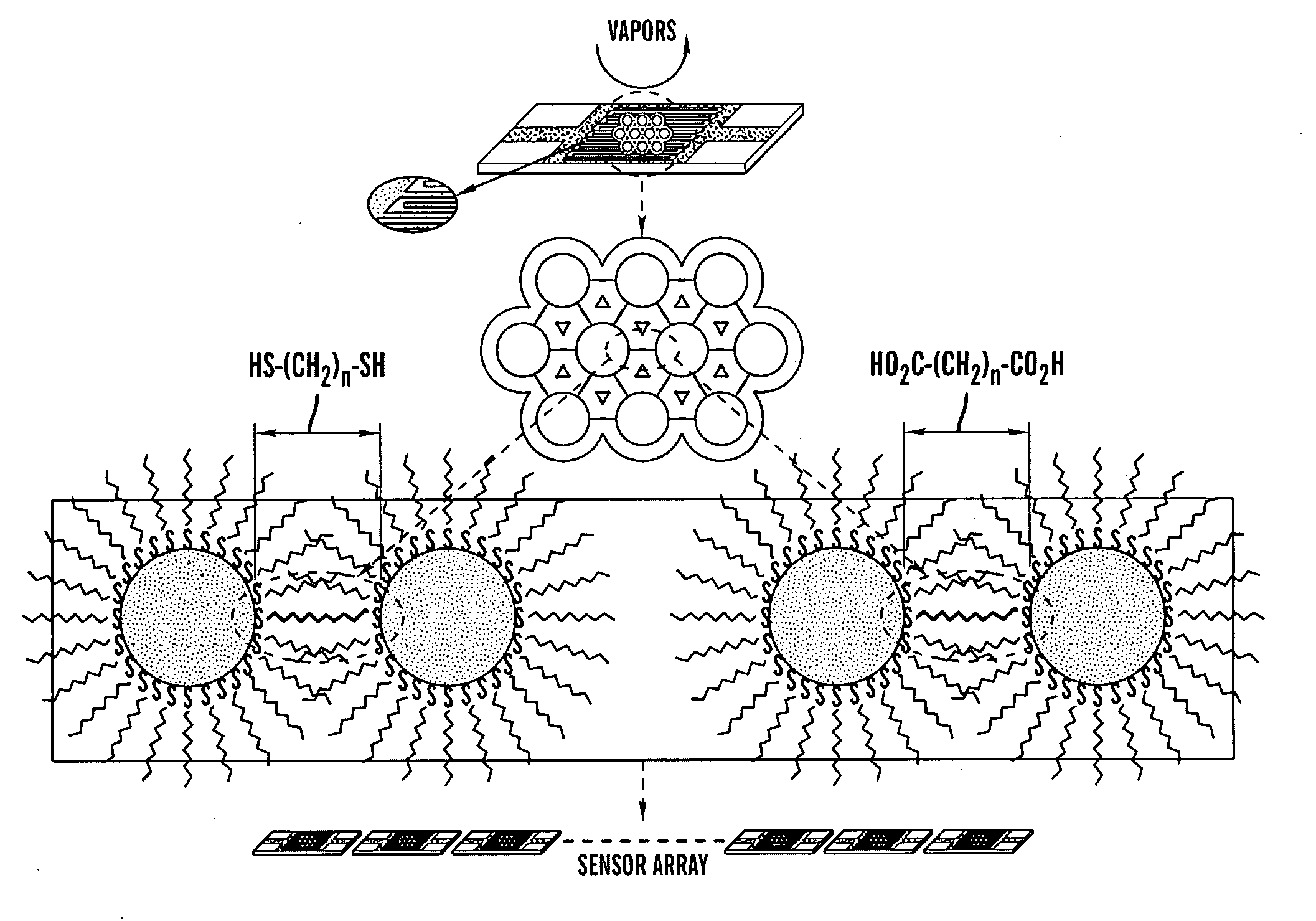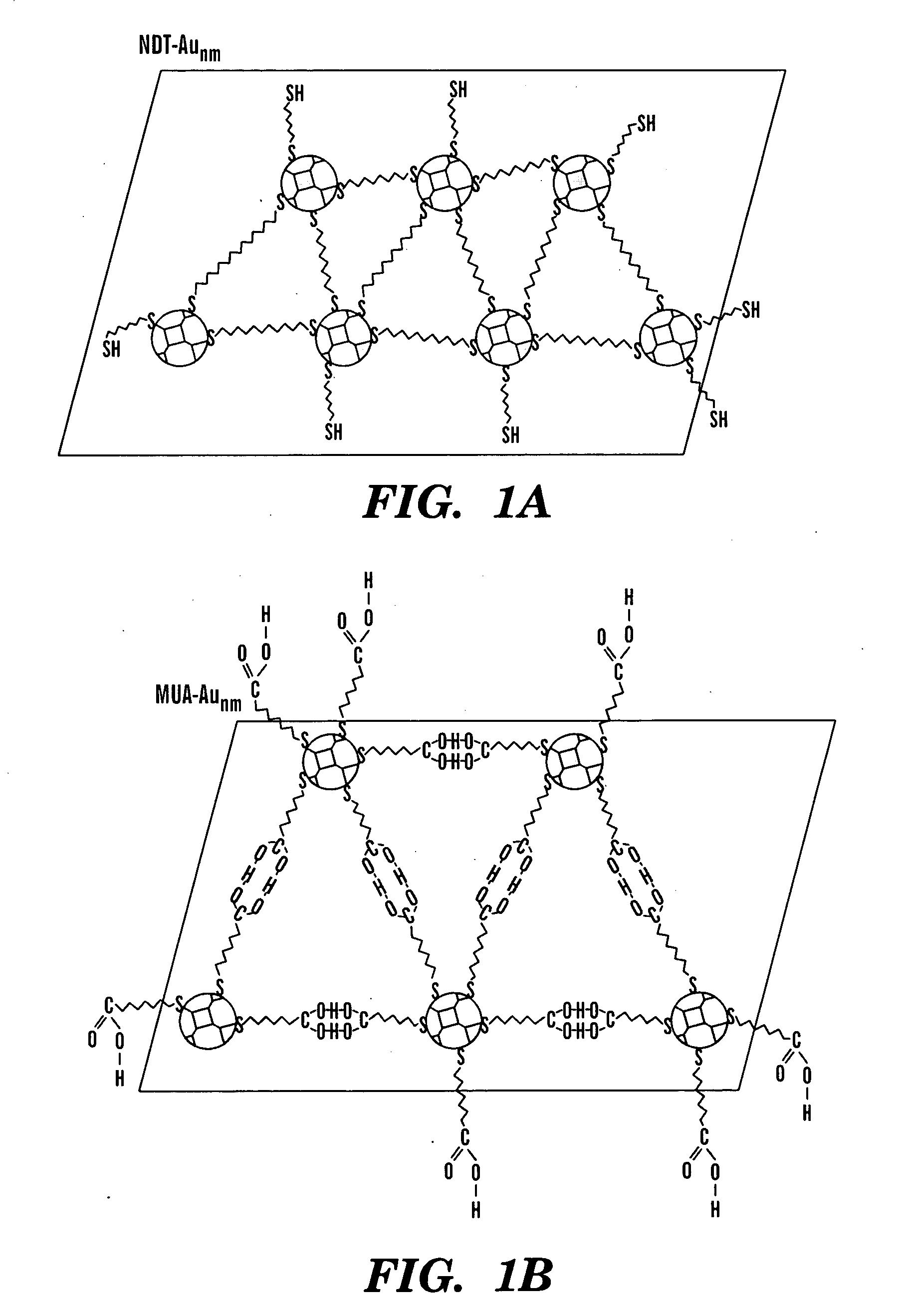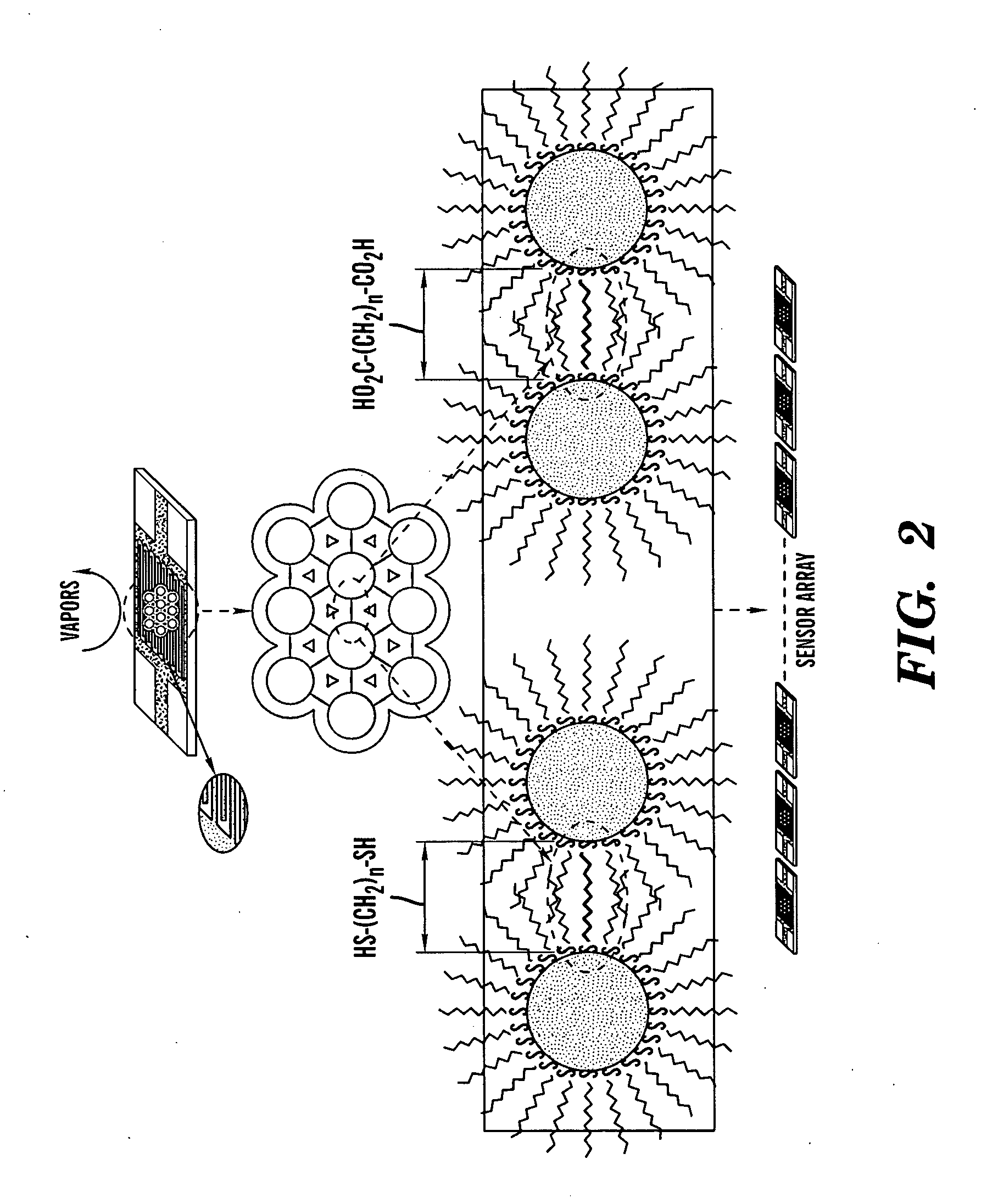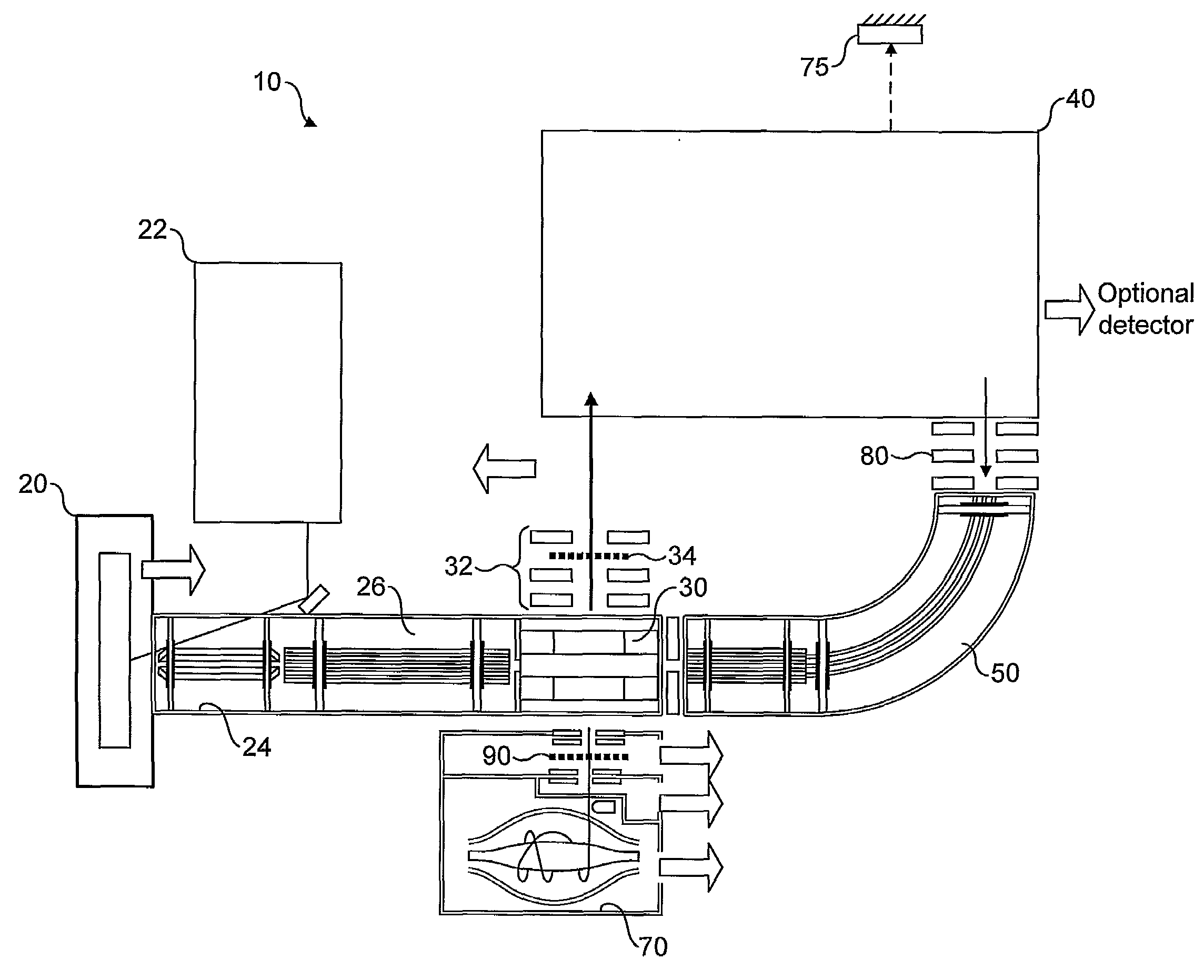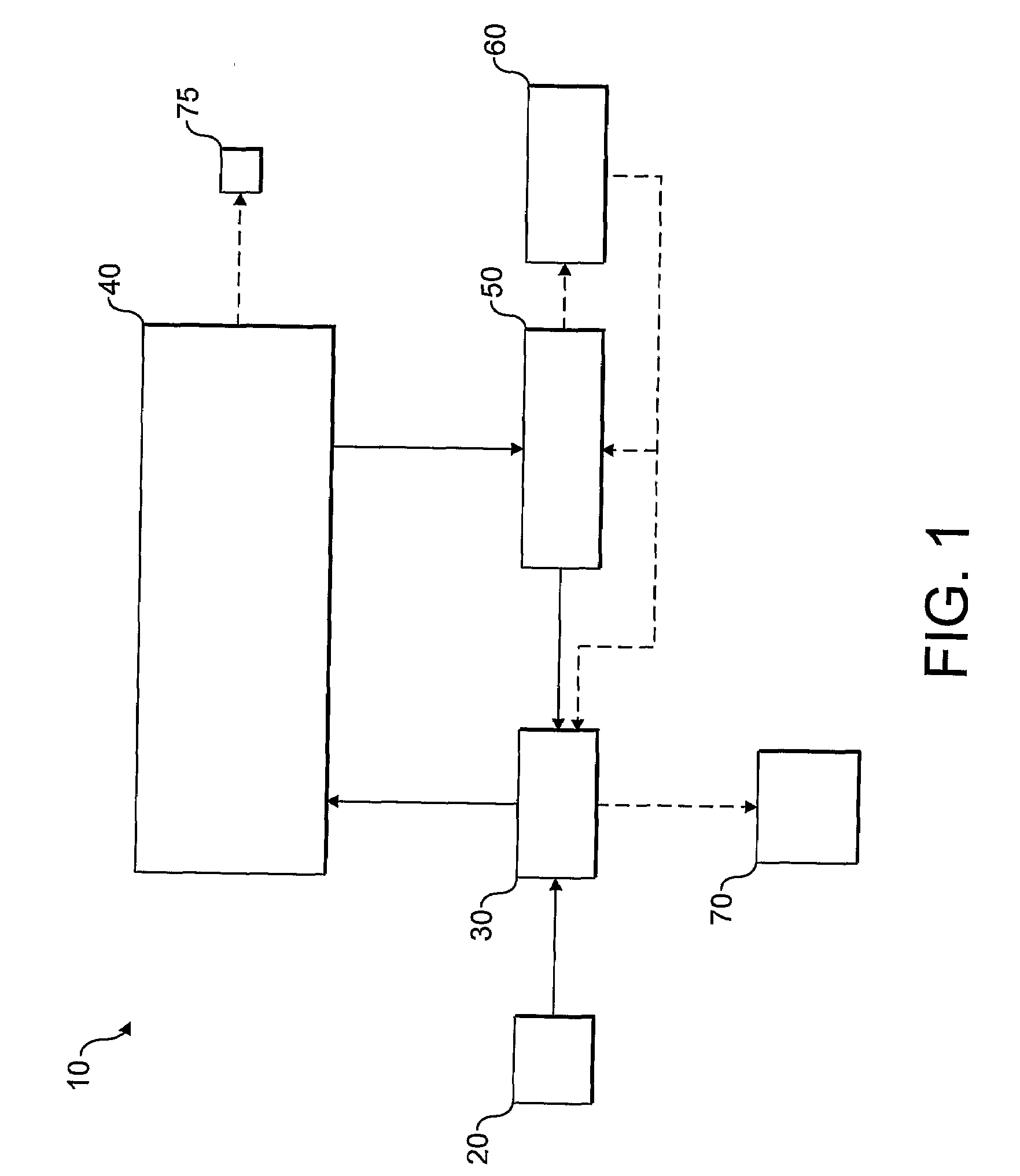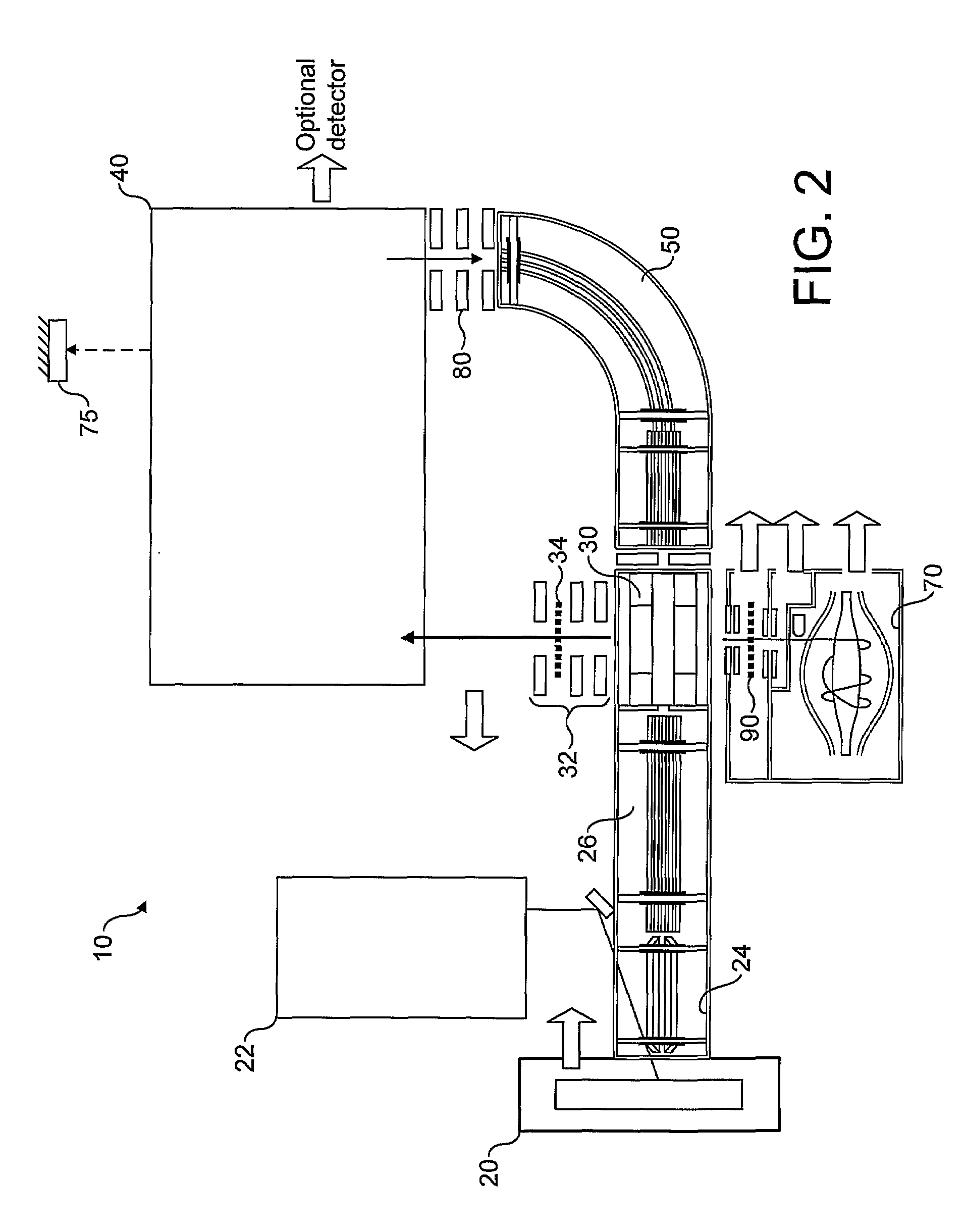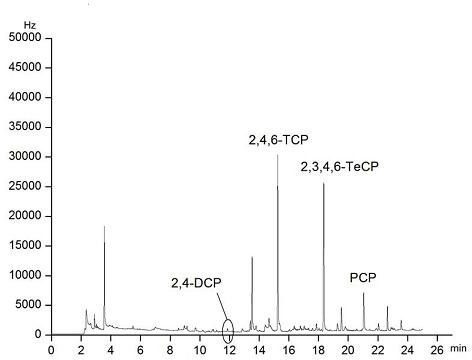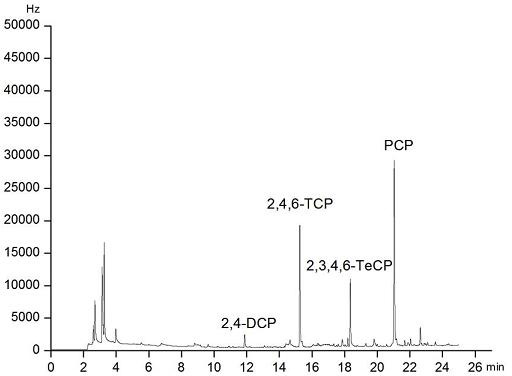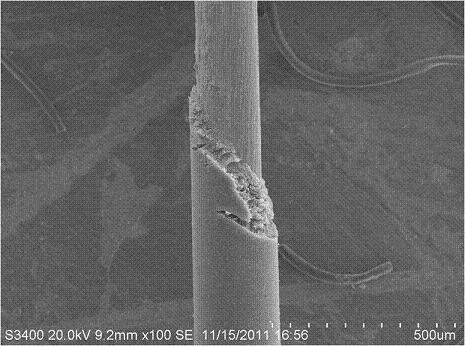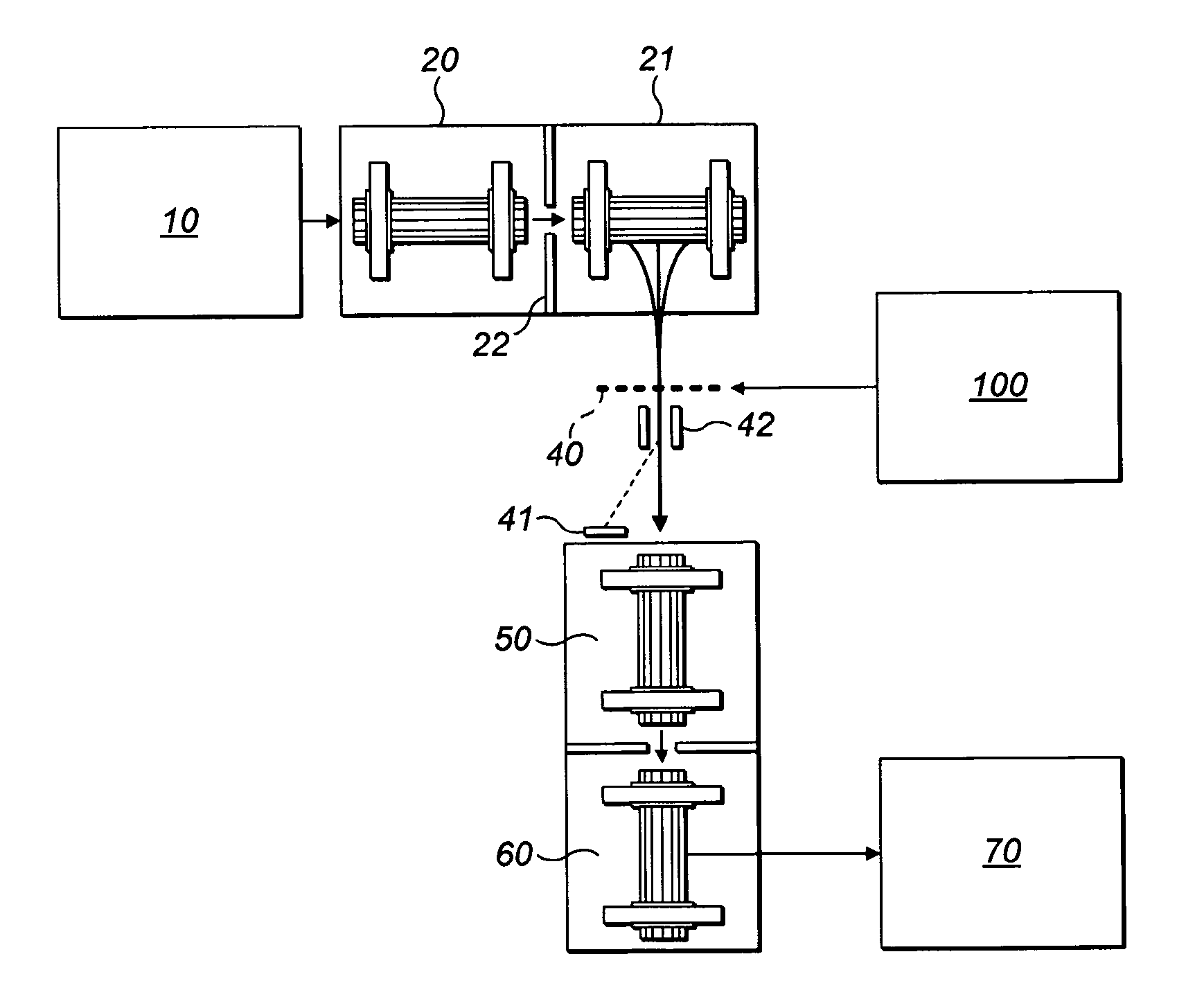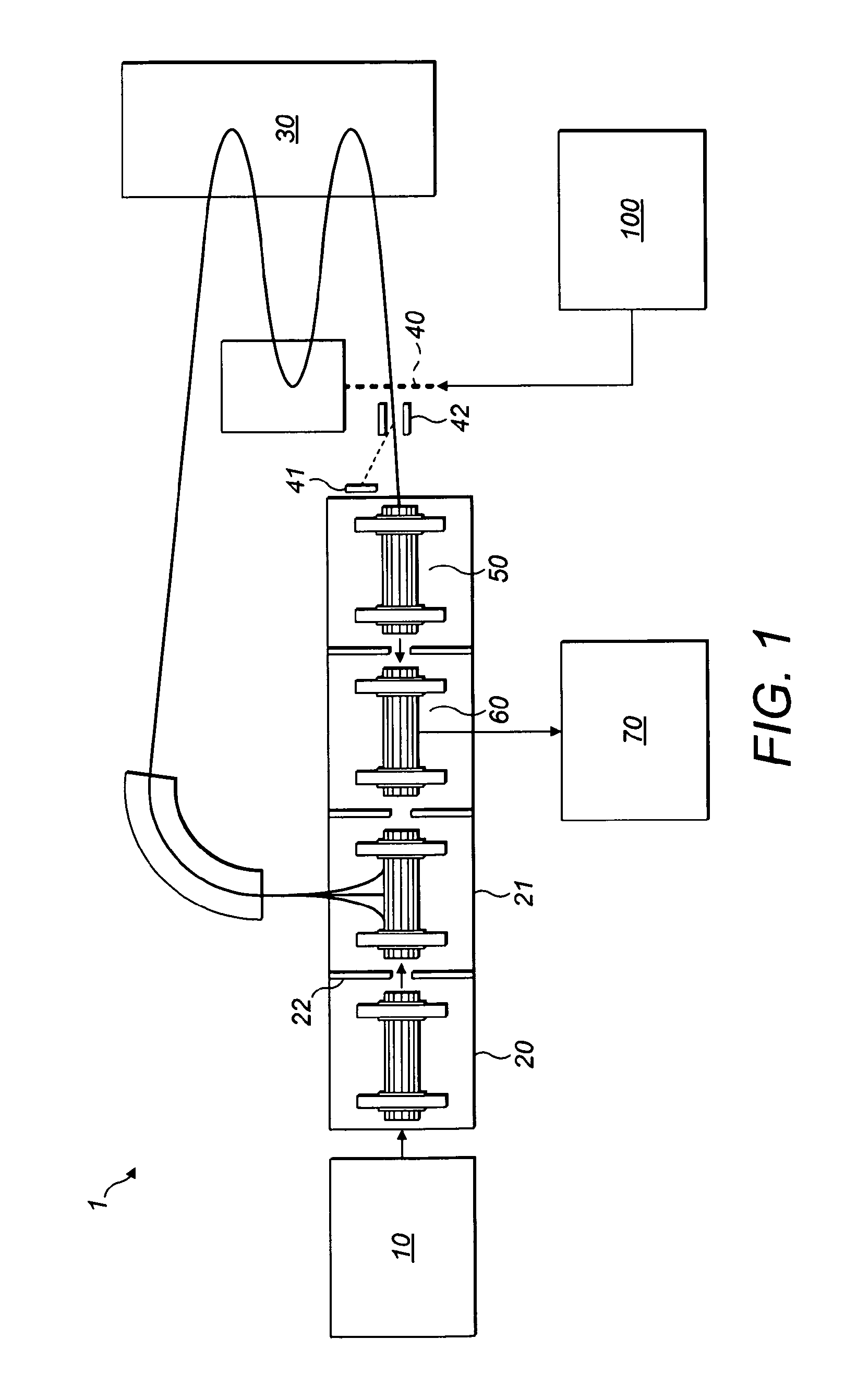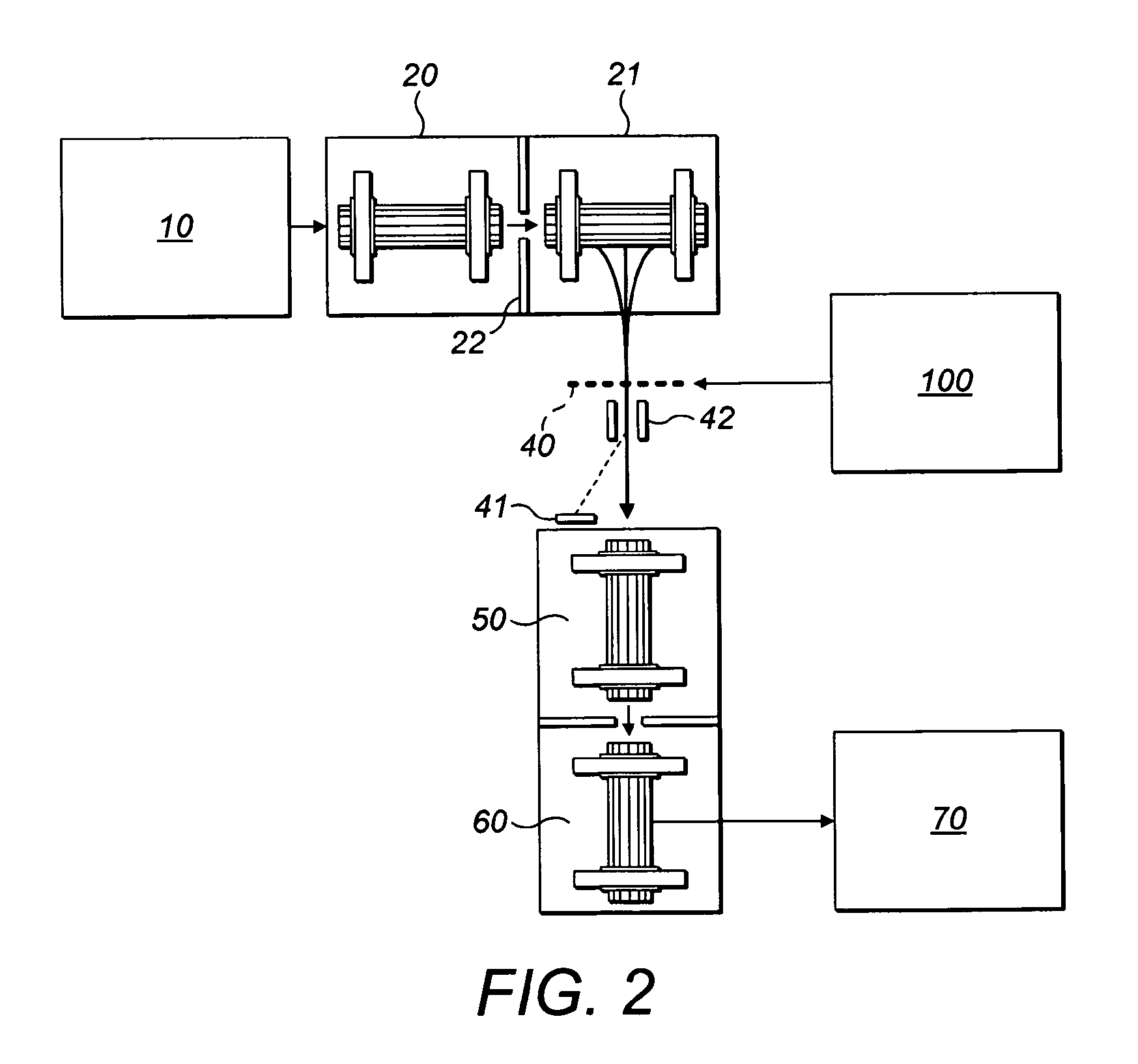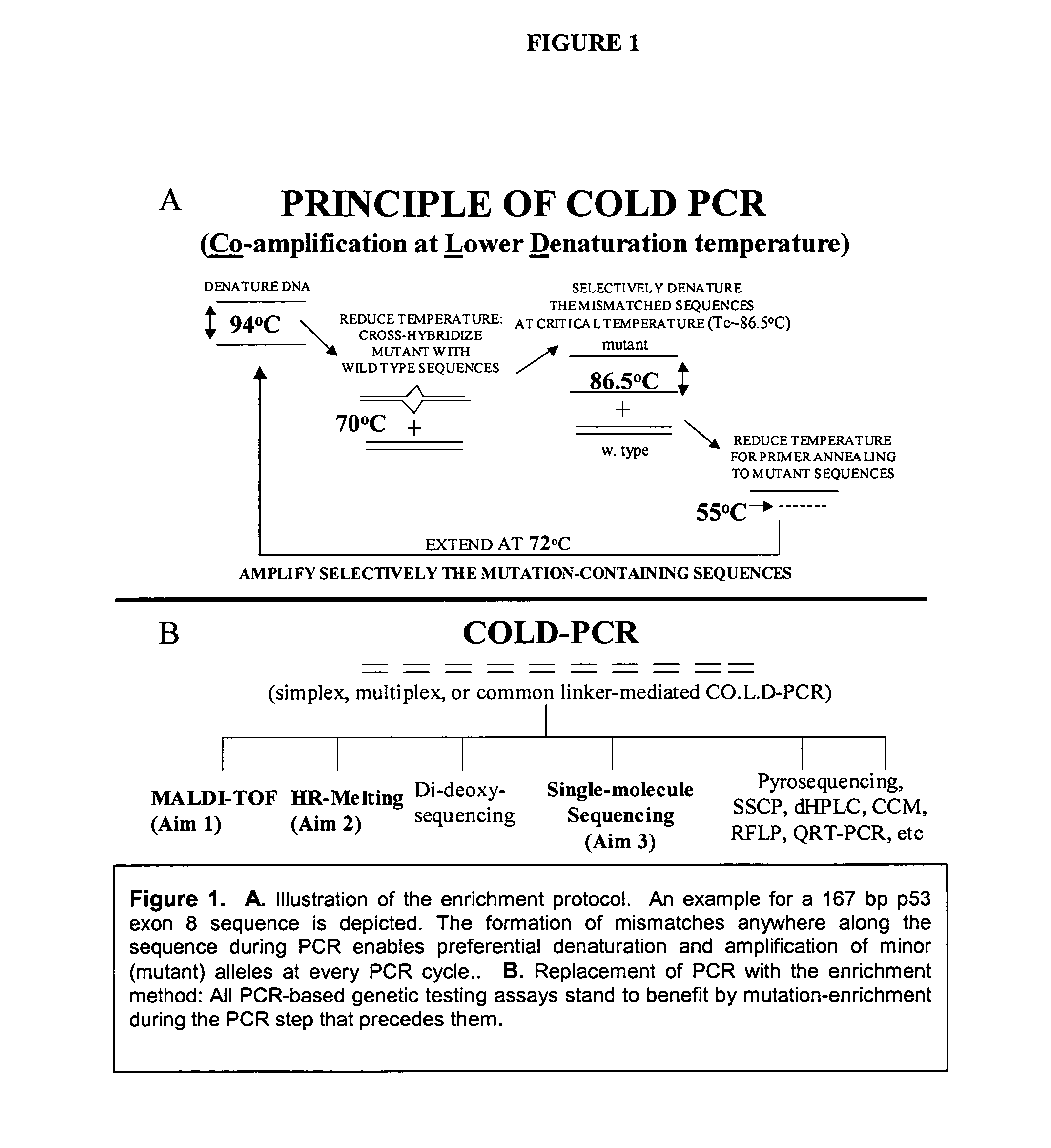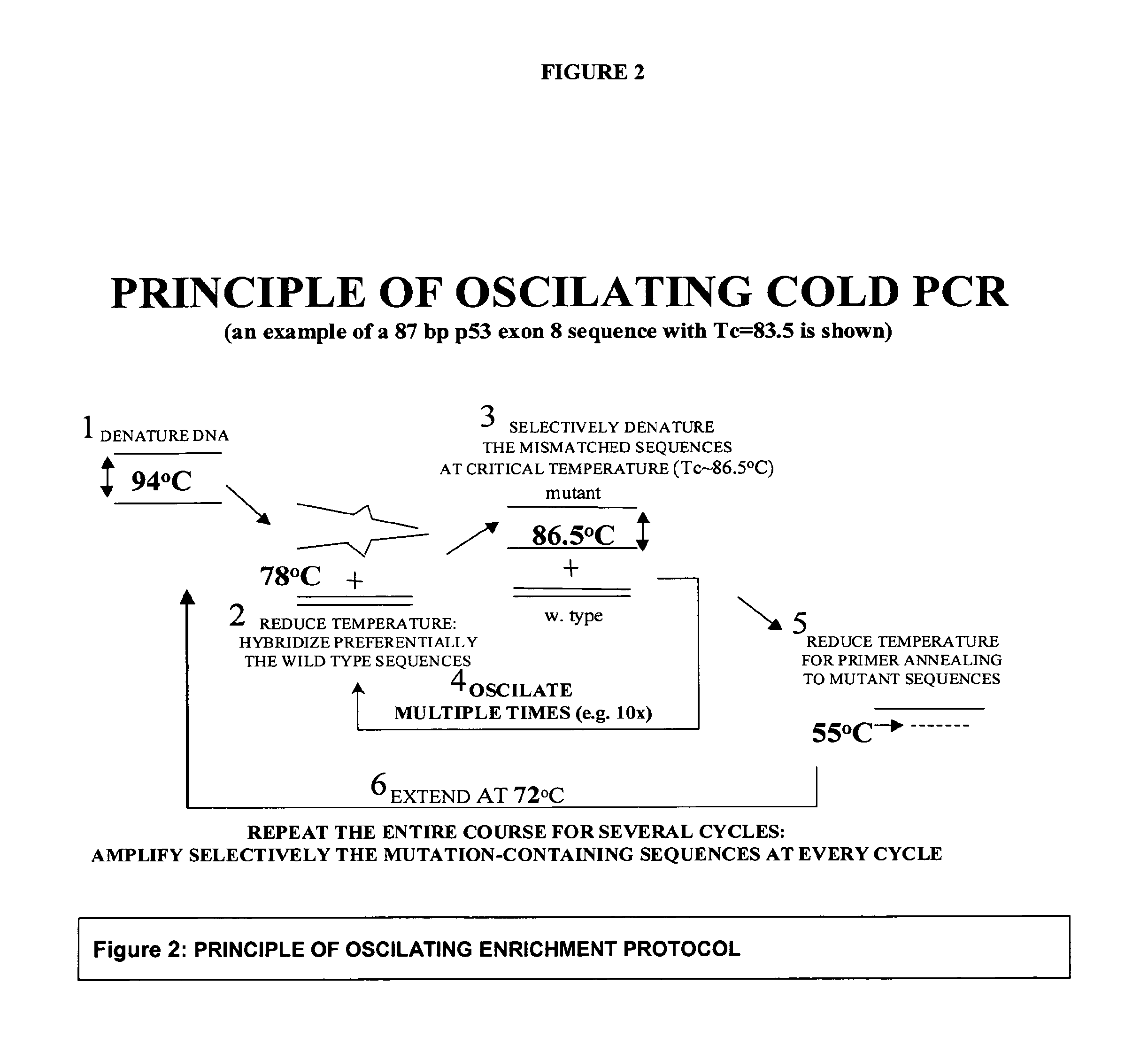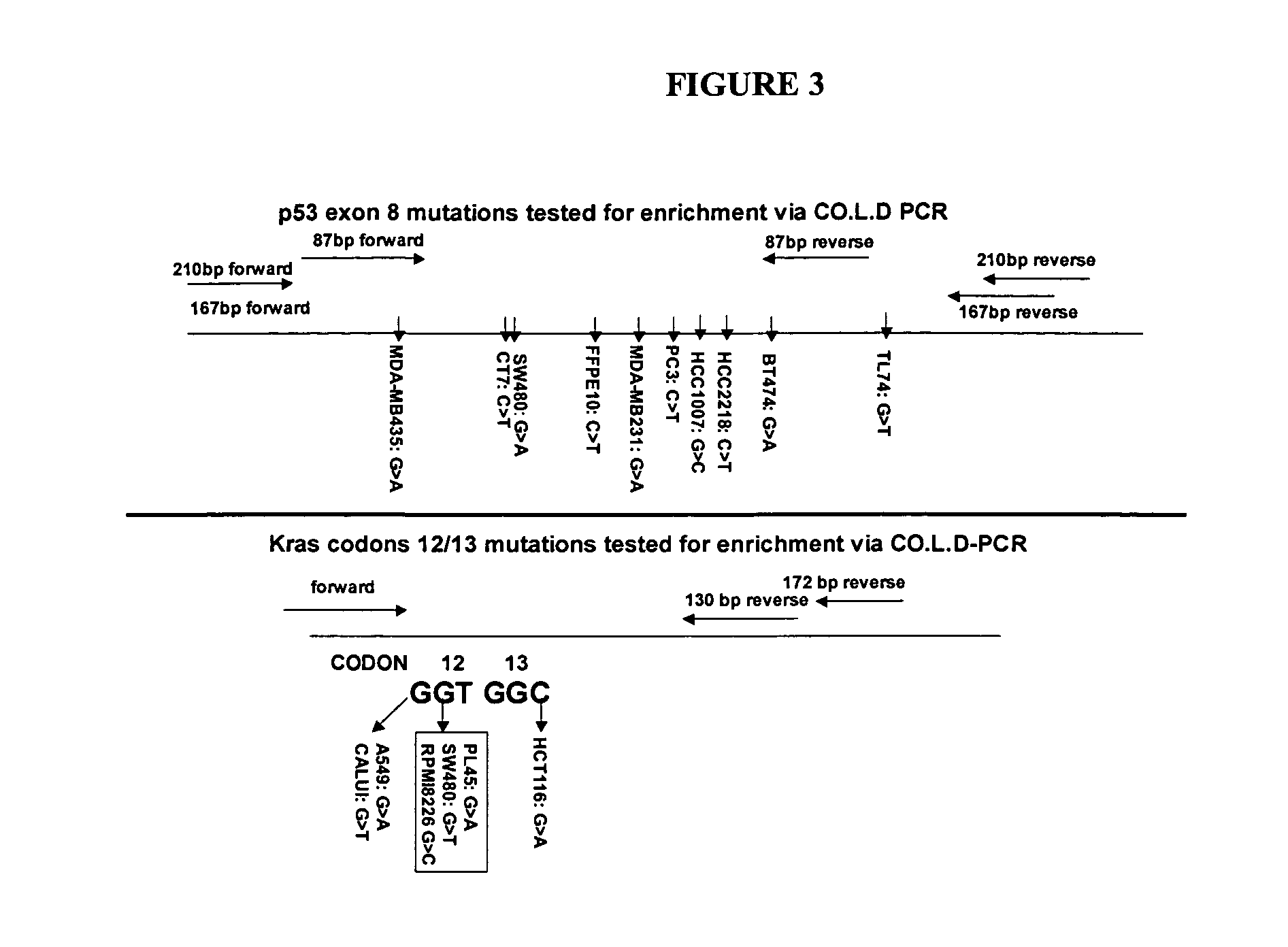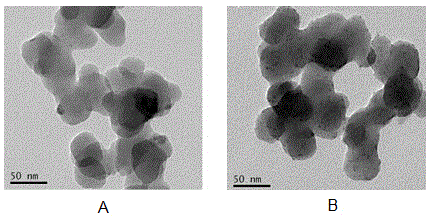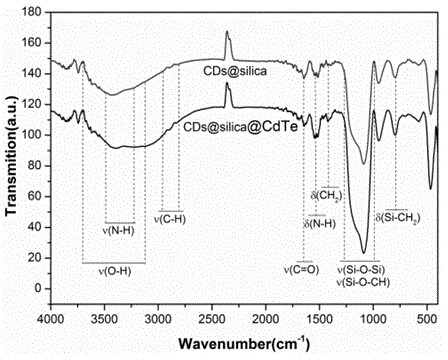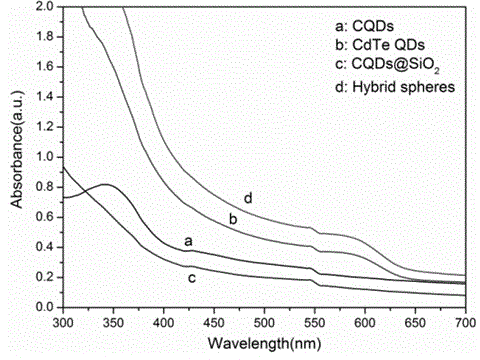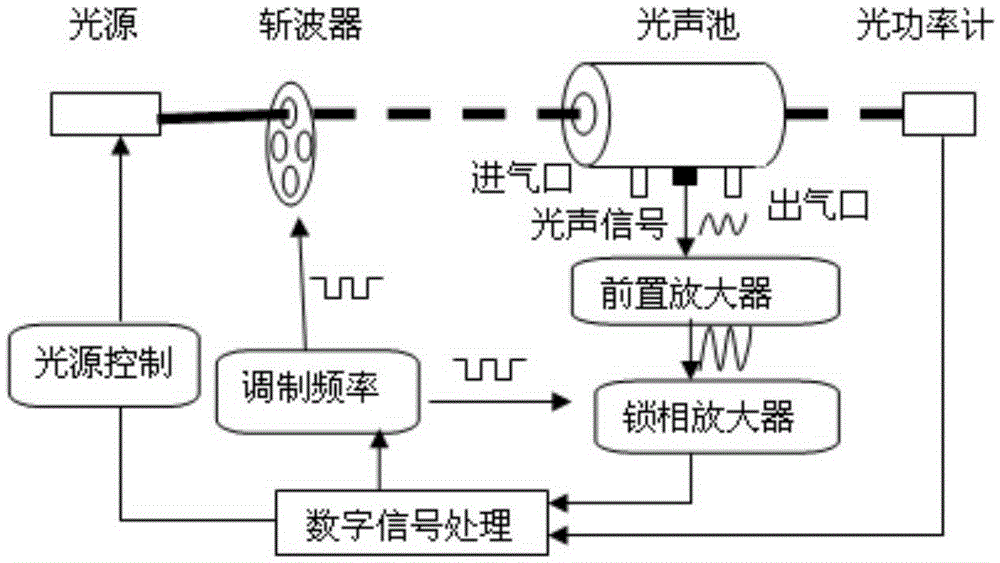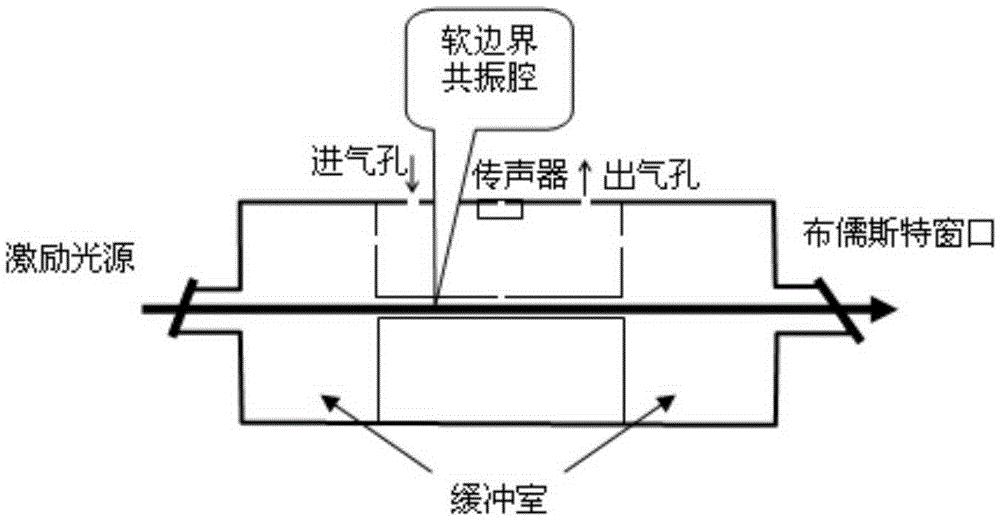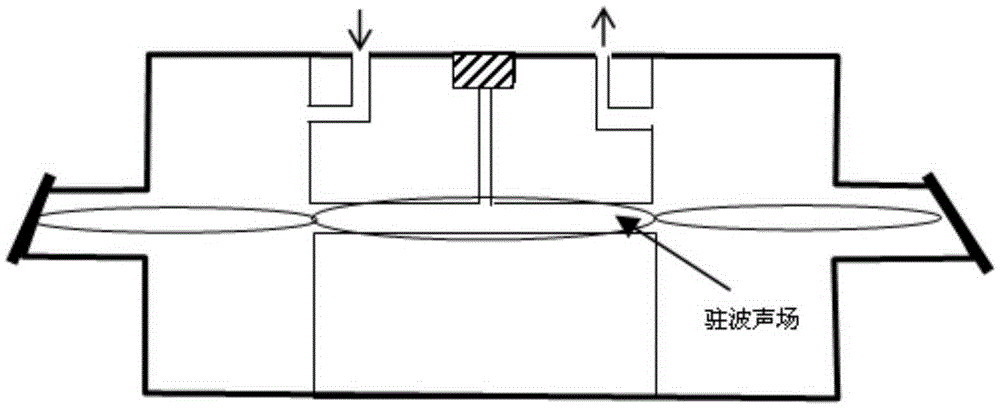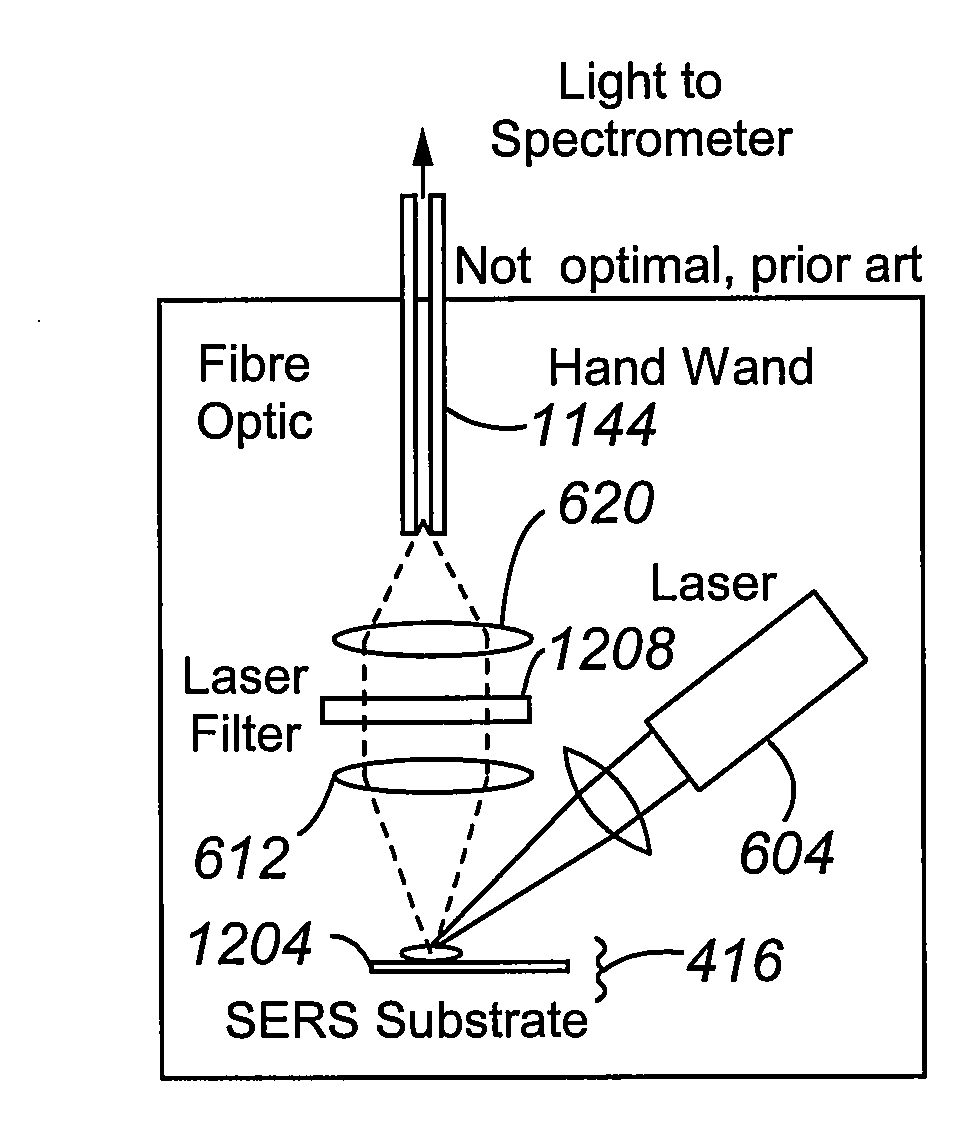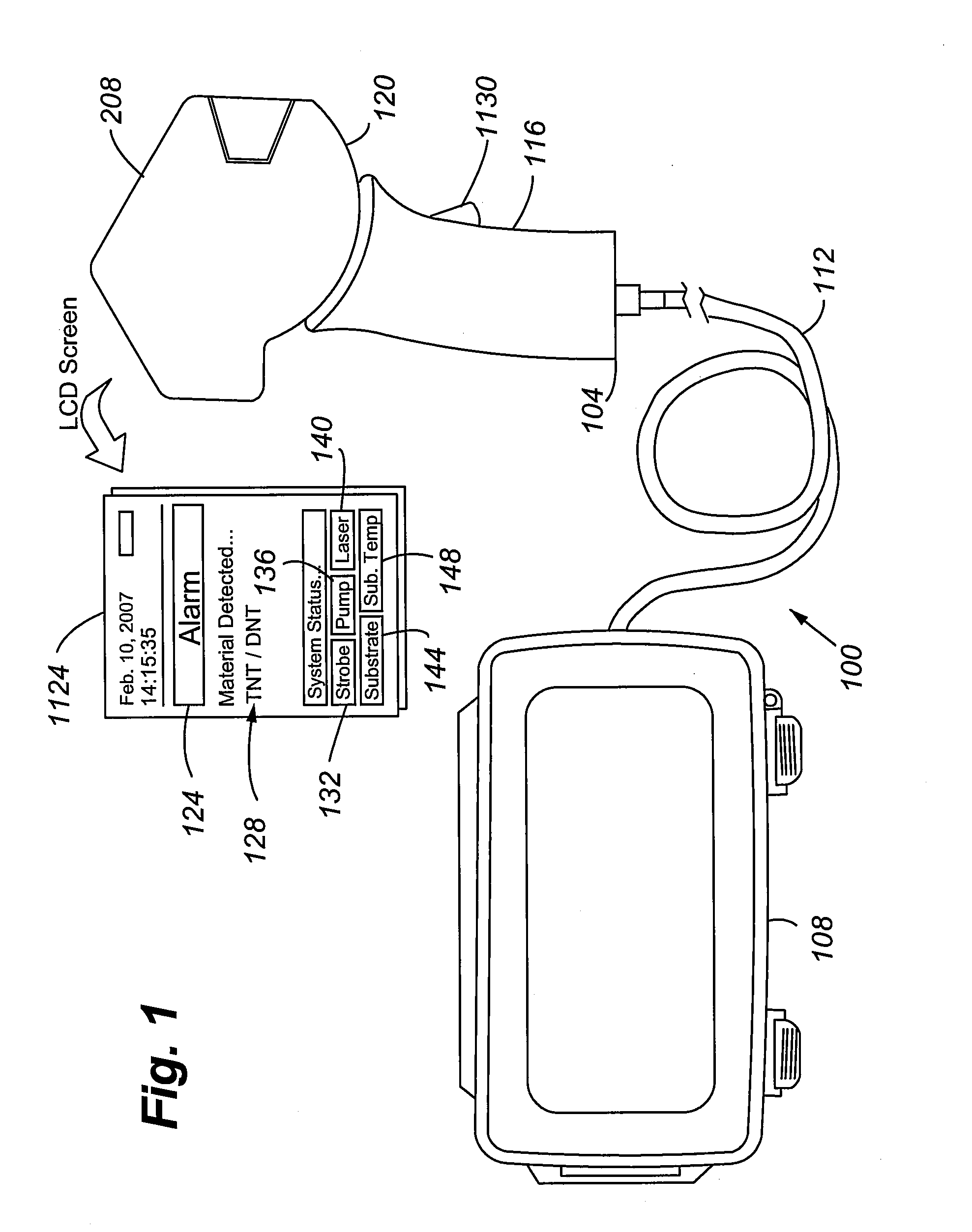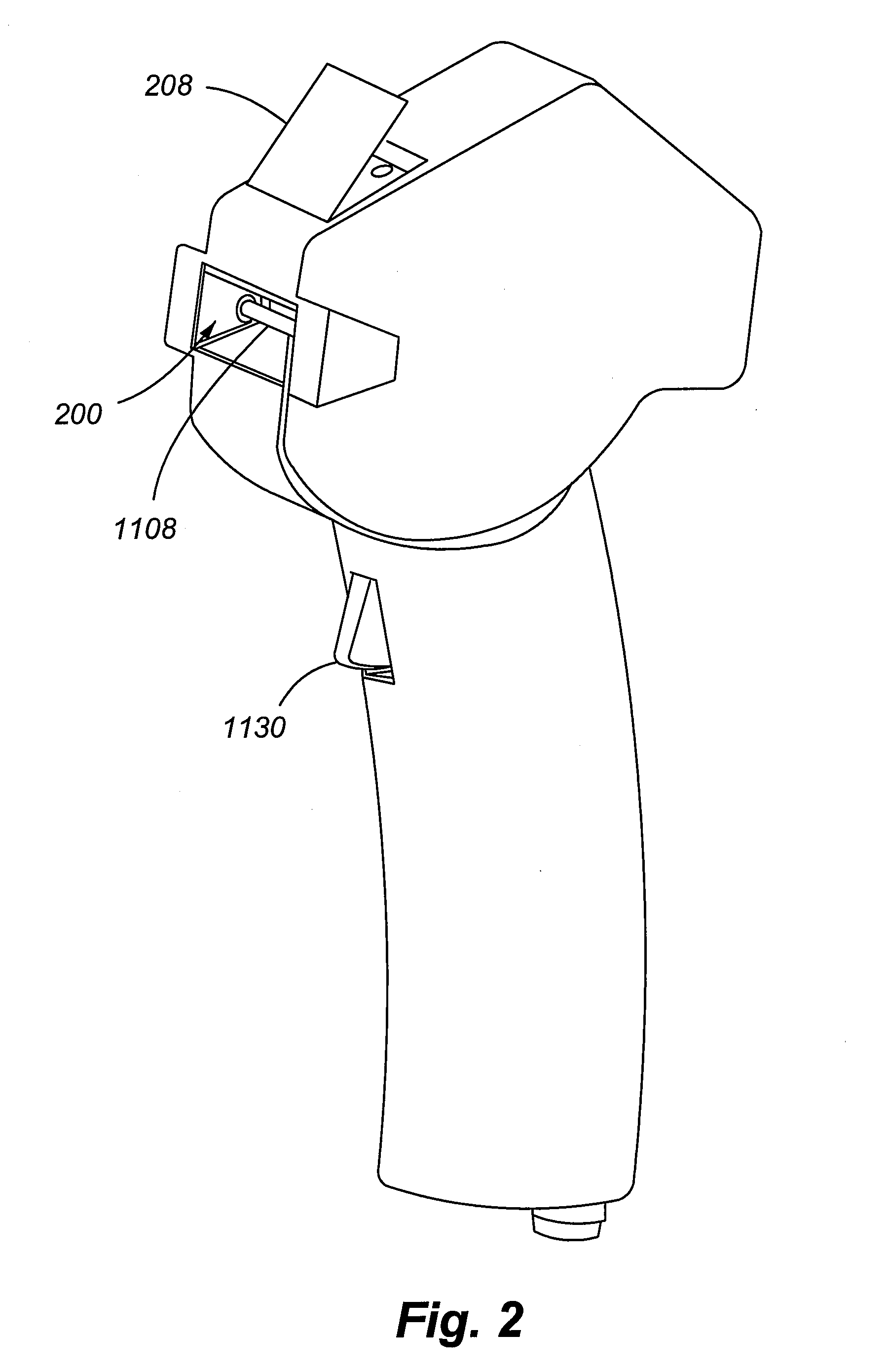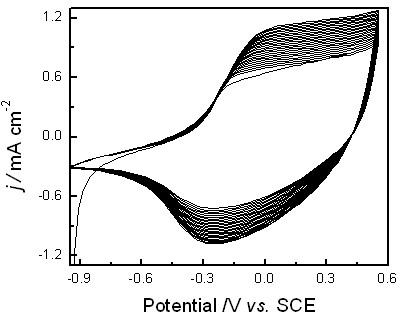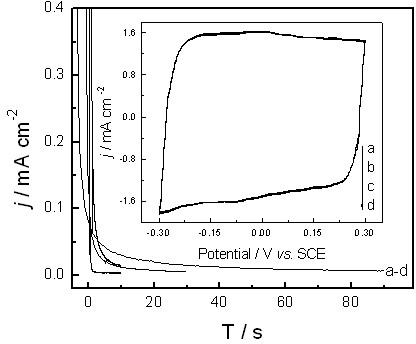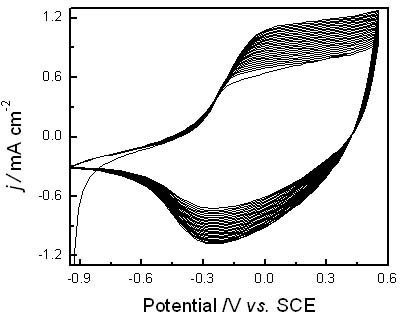Patents
Literature
685results about How to "Improve detection limit" patented technology
Efficacy Topic
Property
Owner
Technical Advancement
Application Domain
Technology Topic
Technology Field Word
Patent Country/Region
Patent Type
Patent Status
Application Year
Inventor
Portable fluorescence detection system and microassay cartridge
InactiveUS20150346097A1Avoiding complexity and expenseLow heat resistanceBioreactor/fermenter combinationsHeating or cooling apparatusLow noiseOn board
Disclosed is a compact, microprocessor-controlled instrument for fluorometric assays in liquid samples, the instrument having a floating stage with docking bay for receiving a microfluidic cartridge and a scanning detector head with on-board embedded microprocessor operated under control of a ODAP daemon resident in the detector head for controlling source LEDs, emission signal amplification and filtering in an isolated, low noise, high-gain environment within the detector head. Multiple optical channels may be incorporated in the scanning head. In a preferred configuration, the assay is validated using dual channel optics for monitoring a first fluorophore associated with a target analyte and a second fluorophore associated with a control. Applications include molecular biological assays based on PCR amplification of target nucleic acids and fluorometric assays in general, many of which require temperature control during detection.
Owner:PERKINELMER HEALTH SCIENCES INC
Plastic microfluidic chip and methods for isolation of nucleic acids from biological samples
InactiveUS20070015179A1Facilitated reaction kineticsImprove detection limitBioreactor/fermenter combinationsBiological substance pretreatmentsMicrofluidic chipPeptide
The present invention is directed to methods of manufacture of microfluidic chip such as a plastic microfluidic chips, which has channels packed with polymer-embedded particles and uses thereof. The chip of the present invention is designed for application of an untreated biological sample on the chip thus allowing isolation, purification and detection of biomolecules, such as nucleic acids, proteins or peptides in one step. The invention also provides a microfluidic chip for combined isolation, purification and detection of biomolecules thus providing a complete Lab-on-a-Chip analysis system for biomolecules such as nucleic acids and proteins. The chips of the invention can be adapted to perform highly specific immunoassays and diagnostic test, for example, for diagnosis of infectious agents, such as bacteria, viruses or parasites.
Owner:TRUSTEES OF BOSTON UNIV
Detection Assays and Use Thereof
InactiveUS20100159446A1Detection is limitedHigh sensitivityCompound screeningApoptosis detectionEpitopeBiological target
The invention provides compositions and methods for the detection and / or quantification of biological targets (e.g., nucleic acids and proteins) by the nucleic acid-templated creation of one or more reaction products, for example, epitopes, enzyme substrates, enzyme activators, and ligands. The reaction products can be detected and / or quantitated after signal amplification using an amplification system.
Owner:ENSEMBLE THERAPEUTICS CORP
Assays using surface-enhanced raman spectroscopy (SERS)-active particles
ActiveUS20110275061A1Enhanced signalImprove detection limitComponent separationGroup 8/9/10/18 element organic compoundsChemical physicsAssay
Disclosed herein are diagnostic assays using surface enhanced Raman spectroscopy (SERS)-active particles, including liquid-based assays; magnetic capture assays; microparticle-nanoparticle satellite structures for signal amplification in an assay; composite SERS-active particles useful for enhanced detection of targets; and sample tubes and processes for using the same.
Owner:BECTON DICKINSON & CO
Portable high gain fluorescence detection system
ActiveUS20120135511A1Avoiding complexity and expenseLow heat resistanceBioreactor/fermenter combinationsHeating or cooling apparatusLow noiseTemperature control
Disclosed is a compact, microprocessor-controlled instrument for fluorometric assays in liquid samples, the instrument having a floating stage with docking bay for receiving a microfluidic cartridge and a scanning detector head with on-board embedded microprocessor for controlling source LEDs, emission signal amplification and filtering in an isolated, low noise, high gain environment within the detector head. Multiple optical channels may be incorporated in the scanning head. In a preferred configuration, the assay is validated using dual channel optics for monitoring a first fluorophore associated with a target analyte and a second fluorophore associated with a control. Applications include molecular biological assays based on PCR amplification of target nucleic acids and fluorometric assays in general, many of which require temperature control during detection. Sensitivity and resistance to bubble interference during scanning are shown to be improved by use of a heating block with reflective mirror face in intimate contact with a thermo-optical window enclosing the liquid sample.
Owner:PERKINELMER HEALTH SCIENCES INC
Portable high gain fluorescence detection system
ActiveUS20120115214A1Improve manufacturabilityHigh amplification gainBioreactor/fermenter combinationsHeating or cooling apparatusAnalyteFluorophore
An instrument for fluorometric assays in liquid samples is disclosed. The instrument may include multiple optical channels for monitoring a first fluorophore associated with a target analyte and a second fluorophore associated with a control. The disclosed instrument finds utility in any number of applications, including microfluidic molecular biological assays based on PCR amplification of target nucleic acids and fluorometric assays in general.
Owner:PERKINELMER HEALTH SCIENCES INC
Method for bacterial lysis
InactiveUS20100203521A1Reduce needMinimize sample consumptionBioreactor/fermenter combinationsMaterial nanotechnologyPathogenCarbon nanotube
The present invention is directed to a microfluidic device for lysis of cells, such as bacteria and microorganisms. In particular, the present invention relates to microfluidic devices and methods of manufacture of such microfluidic devices comprising a substrate with at least one channel packed with a polymer monolith embedded with carbon particles, for example carbon nanotubes. The microfluidic devices and methods of the present invention are useful for cell lysis of cells within a biological sample, such as a untreated biological sample comprising microorganisms, such as but not limited to gram positive and gram negative bacteria. In some embodiments, the microfluidic devices of the present invention can also optionally comprise other modules enabling further processing of the biological sample, for example isolation, purification and detection of biomolecules released from the lysed cells, such as but not limited to nucleic acids or proteins or peptides from the lysed cells, providing a complete Lab-on-a-Chip analysis system for biomolecules released from difficult to lyse microorganisms in a single step or process. The microfluidic devices of the present invention can also be adapted and are useful to methods to enrich for microorganisms in a biological sample, for example enrich for a desired type of bacteria within a biological sample. The microfluidic devices and methods of the present invention can be adapted to perform highly efficient lysis of microorganisms within a biological sample for diagnostic tests, for example for diagnosis of infectious agents and pathogens, such as bacteria, viruses or parasites.
Owner:BOSTON MEDICAL CENTER INC
Multifunctional double-layer core-shell structure magnetic nano particle, preparation method and application thereof
InactiveCN101923932ARapid enrichmentRapid separation and purificationInorganic non-active ingredientsInorganic material magnetismMagnetite NanoparticlesSuperparamagnetism
The invention relates to a multifunctional double-layer core-shell structure magnetic nano particle. In the invention, a magnetic nano particle with a particle size of 1-300 nm is used as a core and coated with a double-layer shell consisting of a SiO2 layer with a thickness of 1-200 nm and a hydrolyzed silane coupling agent layer is 1-100 nm thick and comprises one or more multifunctional groups; the particle size and the shell layer thickness can be controlled through regulating the volumes, the weight ratios and the reaction time of the magnetic core, a silicon dioxide precursor, a silane coupling agent and a catalyst in a preparation process; the total particle size of the nano particle can be as small as 5-50 nm and as large as 700-800 nm; the nano particle can have superparamagnetism, paramagnetism and ferromagnetism according to the change of the magnetic core particle size; and one or more bioactive molecules can be connected into the shell layer of the magnetic nano particle or to the surface of the shell layer through a chemical method or a physical method. The invention also provides a preparation method of the multifunctional double-layer core-shell structure magnetic nano particle and application thereof. The particle preparation method has the advantages of simplicity, moderate condition, low cost and easy realization of industrial production. The nano particle can obtain different functions through connecting different bioactive molecules and can be applied to the fields of protein enrichment, biological detection, separation and purification, targeted drug carriers, cell imaging and medical imaging.
Owner:NANJING UNIV
Mass spectrometer and method for using same
ActiveUS8395112B1Prolongs time of whole analysisImprove detection limitDynamic spectrometersMicrobiological testing/measurementControl signalMass analyzer
Apparatus including an ion trap, a controller connected to the ion trap, wherein the controller includes a memory containing computer readable instructions which, when executed, cause the controller to send control signals to the ion trap so that the ion trap produce and maintain a trapping field in the ion trap, a waveform generator to change the trapping field so that ions of a predetermined mass in the trapping chamber are selectively moved; a secondary waveform generator to change the orbits of the ions; an energy source to excite ions to emit photons, an optical detector to detect the emitted photons, and a processor which can apply fast-Fourier transform analysis of the time-domain signal of the detected emitted photons to generate a frequency or mass spectrum related to mass-to-charge ratio of the ions.
Owner:BIER MARK E
Moving object detection method
InactiveUS20030202682A1Improve detection limitRaise the ratioImage enhancementAngle measurementObject detectionLight source
From a plurality of pictures 1-1 through 1-3 captured at successive time intervals, pictures 2-1 through 2-3 of regions determined in accordance with the movement of the celestial object are cut out. By deriving median values in regard to the same pixels in each of the cut-out pictures 2-1 through 2-3, a median value picture 3-1 is created. By deriving median values, the influence of large numbers of fixed starts that hinder the detection of the moving celestial object that moves in the cut-out pictures is eliminated, and only the moving celestial object is permitted to remain. When deriving median value, pixel values indicating singular values are eliminated in advance, so that the effects of the images of large bright light sources and the lost pixels that output no pixel values are effectively reduced. Further, when an average value picture is created using a plurality of median value pictures previously obtained, the detection limit increases and a dark moving celestial object that cannot be detected using a single observation picture can be extracted.
Owner:JAPAN AEROSPACE EXPLORATION AGENCY
Enrichment of a Target Sequence
ActiveUS20100203532A1Improve detection limitImprove concentrationSugar derivativesMicrobiological testing/measurementAlleleBiology
The present invention is directed to methods, compositions, software and devices for enriching low abundance alleles from a sample. The method is based in part on a modified nucleic acid amplification protocol that includes incubating the reaction mixture at a critical denaturing temperature or “Tc”. By employing the present invention the current detection limits of all PCR-based technologies are greatly improved.
Owner:DANA FARBER CANCER INST INC
Dryer and water recovery/purification unit employing graphene oxide or perforated graphene monolayer membranes
InactiveUS20140318373A1Simplifies analysisImprove detection limitSludge treatment by de-watering/drying/thickeningSemi-permeable membranesCvd grapheneLiquid water
Apparatuses and systems for removing water vapor from a gas stream and for providing water purification, recovery and / or concentration. The apparatuses and systems employ a graphene oxide or a perforated graphene monolayer membrane to separate liquid water molecules and / or water vapor molecules from gasses, liquids, and other substances such as a wet muck or an aqueous sample. In one embodiment, an apparatus for removing water from a gas or liquid stream includes a first lumen, a second lumen, and a graphene oxide membrane separating the first lumen from the second lumen. Water molecules within a humid gas or liquid stream introduced into the first lumen pass through the graphene oxide membrane into a dry gas stream introduced into the second lumen.
Owner:LOCKHEED MARTIN CORP
Mass spectrometer arrangement with fragmentation cell and ion selection device
ActiveUS7829842B2Increase rangeHigh resolutionStability-of-path spectrometersIsotope separationMass Spectrometry-Mass SpectrometryMass analyzer
A method of mass spectrometry having the steps of, in a first cycle: storing sample ions in a first ion storage device; ejecting the stored ions out of the first ion storage device into a separate ion selection device; selecting a subset of the ions in the ion selection device; ejecting the subset of ions selected within the ion selection device to a fragmentation device; directing ions from the fragmentation device back to the first ion storage device without passing them through the said ion selection device; receiving at least some of the ions ejected from the first ion storage device, or their derivatives, back into the first ion storage device; and storing the received ions in the first ion storage device.
Owner:THERMO FISHER SCI BREMEN
Method and Apparatus for Analyzing Biomolecules Using Raman Spectroscopy
ActiveUS20150192590A1Highly accurate excellent analyzerReduce variationComponent separationMicrobiological testing/measurementSurface-enhanced Raman spectroscopyBinding site
The present invention provides an apparatus having a sample separation unit, a Raman spectroscopy unit, and a mass spectrometry unit. The present invention further provides a method for specifying a biomolecule and a method for identifying the binding site of the biomolecule and the low-molecular-weight compound, comprising a combination of Raman spectroscopy and mass spectrometry. The present invention further provides a surface-enhanced Raman spectroscopy method with improved sensitivity.
Owner:JAPAN SCI & TECH CORP
Device and method for performing a diagnostic test
ActiveUS8889424B2Maximize elastic light scattering signalImprove signal-to-noise ratioBioreactor/fermenter combinationsBiological substance pretreatmentsTarget analysisPoint of care
A device and method for performing a point of care diagnostic test for detecting and quantifying at least one analyte in a biological sample (e.g., a body fluid). A device may include an immunoassay apparatus and a holder with an adjustable variable angle stage for positioning the immunoassay apparatus relative to a light source and a detector device so as to optimize the angle of incidence and angle of radiation to optimize an elastic light scattering signal from the immunoassay apparatus. The elastic light scattering signal may be used to quantify the amount of the analyte(s) of interest present in the sample. The device is based upon elastic light scattering, so the variation in the angle of incidence and angle of reflection are optimized to maximize signal generation due to elastic light scattering.
Owner:I CALQ
Distance of flight spectrometer for MS and simultaneous scanless MS/MS
ActiveUS20050040326A1Improve detection limitImprove precisionStability-of-path spectrometersTime-of-flight spectrometersTwo dimensional detectorImage resolution
A distance of flight (DOF) approach to mass spectroscopy in which the resolution among the various ion masses is accomplished in space rather than time. A separate detector is associated with each ion mass resolution element. The DOF mass spectrometer can serve as one element in a tandem arrangement which has the capability to produce a full two-dimensional precursor / product spectrum for each bunch of ions extracted from the source. A “distance-of-flight” (DOF) mass analyzer is used in combination with time-of-flight (TOF) mass analysis for precursor and product dispersion. All the precursor ions can undergo a mass changing reaction simultaneously, while still retaining the essential information about the particular precursor m / z value from which each product ion m / z value emanated. Through the use of a two-dimensional detector, all the products ions from all the precursors can be detected for each batch of ions analyzed.
Owner:NEW MEXICO UNIV OF
Screening for enzyme stereoselectivity utilizing mass spectrometry
InactiveUS20020127609A1Improved screening sensitivityImprove detection limitParticle separator tubesMicrobiological testing/measurementEnzymeBiology
Methods of screening for enzyme stereoselectivity that include detecting isotopically labeled products by mass spectrometry are provided. The methods are particularly suitable for screening enzyme libraries for stereoselectivity.
Owner:MAXYGEN
Absolute quantification type digital nucleic acid analytic system based on efficient liquid drop microreactor
ActiveCN106434330AReduce usageSimplify complexityBioreactor/fermenter combinationsBiological substance pretreatmentsFluorescenceQuarantine
The invention relates to inspection and quarantine systems for biomedicine, agriculture, food hygiene and the like and particularly relates to an absolute quantification type digital nucleic acid analytic system based on an efficient liquid drop microreactor. The absolute quantification type digital nucleic acid analytic system is mainly used for detecting the molecular structure of nucleic acid so as to analyze attributes of organisms and belongs to the fields of biological and medical detection. The absolute quantification type digital nucleic acid analytic system comprises a confocal fluorescence image collecting system, a micro-fluidic chip, a temperature circulating heating system, an electric loading platform, an automatic sample feeding device, a controller and a computer. The formation and PCR amplification of micro-droplets are finished by virtue of the same micro-fluidic chip, namely the micro-fluidic chip has a droplet formation function and a PCR amplification (microreactor) function. According to the absolute quantification type digital nucleic acid analytic system, the complexity of the absolute quantification type nucleic acid analysis process is reduced, the nucleic acid analysis process is finished in a one-button manner, and culture and bacteria-proliferating processes are omitted, so that the rapid detection is realized, the sensitivity of the absolute quantification type nucleic acid detection is greatly improved, meanwhile, the sample consumption of the absolute quantification type nucleic acid analysis is substantially reduced, and the high throughput detection is realized.
Owner:SUZHOU HOTTOP INN INSTR TECH CO LTD CHINA +2
Plasma mass spectrometer
InactiveUS20050082471A1Minimise pumping restrictionIncrease pressureTime-of-flight spectrometersSamples introduction/extractionHydrogenIon beam
Owner:AGILENT TECH AUSTRALIA M
Apparatus and method for multi-dimensional gas chromatography
ActiveUS20100154511A1Improve system performanceIncrease modulation frequencyMaterial thermal conductivityComponent separationChemistryProduct gas
A method and apparatus for two-dimensional gas chromatography (GC), including a valve having first and second positions (P1, and P2), and first through fourth sample flow paths (FP1-FP4). In P1, a first gas sample is collected from a first dimension GC column via FP1, a first pressure source and a first, second dimension GC column are connected via FP2, a second pressure source and a second, second dimension GC column are connected via FP3, and FP4 is disconnected. In P2, the first sample in FP1 is introduced to the second, second dimension GC column via FP1, with aid of the second pressure source, a second gas sample is collected from the first dimension GC column via FP2, the first pressure source and the first, second dimension GC column via FP4 are connected, and FP3 is disconnected.
Owner:SCHLUMBERGER TECH CORP
Multi-moduled nanoparticle-structured sensing array and pattern recognition device for detection of acetone in breath
InactiveUS20090049890A1Elimination of falseHigh-precision detectionWithdrawing sample devicesChemical methods analysisPattern recognitionNanoparticle
The present invention is directed toward a multi-moduled nanoparticle-structured sensing array and pattern recognition device for detection of acetone in breath.
Owner:THE RES FOUND OF STATE UNIV OF NEW YORK
Method of ion abundance augmentation in a mass spectrometer
ActiveUS20090166528A1Increase separationImprove efficiencyStability-of-path spectrometersIsotope separationNatural abundanceChemistry
A method of improving the detection limits of a mass spectrometer by: generating sample ions from an ion source; storing the sample ions in a first ion storage device; ejecting the stored ions into an ion selection device; selecting and ejecting ions of a chosen mass to charge ratio out of the ion selection device; storing the ions ejected from the ion selection device in a second ion storage device without passing them back through the ion selection device; repeating the preceding steps so as to augment the ions of the said chosen mass to charge ratio stored in the second ion storage device; and transferring the augmented ions of the said chosen mass to charge ratio back to the first ion storage device for subsequent analysis.
Owner:THERMO FISHER SCI BREMEN
Solid-phase micro-extraction coating prepared on basis of polydopamine modified stainless steel wires and preparation method and application thereof
InactiveCN102489272AHigh mechanical strengthNot easy to fall offIon-exchange process apparatusComponent separationChlorophenolFiber matrix
The invention discloses a solid-phase micro-extraction coating prepared on the basis of polydopamine modified stainless steel wires and a preparation method and application thereof, which belong to the field of analytical chemistry. The preparation method includes steps of utilizing stainless steel wires which are modified by polydopamine as a solid-phase micro-extraction fiber matrix and utilizing quartz capillary tubes as moulds, and finally forming the solid-phase micro-extraction coating after methacrylic acid and ethylene glycol dimethacrylate are subjected to in-situ polymerization in the capillary tubes and then react with polydopamine so as to be bonded on the surfaces of the stainless steel wires. The solid-phase micro-extraction coating prepared on the basis of polydopamine modified stainless steel wires is applied to pretreatment of analysis of chlorophenols and polychlorinated biphenyls. Mechanical strength is enhanced due to the fact that the stainless steel wires are used as the matrix. The coating is not easy to shed off the surfaces of the stainless steel and is long in service life. Due to the capillary tubes serving as the moulds, the coating is uniform in thickness, fine in reproducibility and low in cost. On the optimum extraction condition, the coating has low limit of detection to four types of chlorophenols and six types of polychlorinated biphenyls and meets requirements of trace analysis.
Owner:NANJING UNIV +1
Targeted analysis for tandem mass spectrometry
ActiveUS8957369B2Improve detection limitImprove dynamic rangeTime-of-flight spectrometersSamples introduction/extractionTarget analysisMass Spectrometry-Mass Spectrometry
Owner:THERMO FISHER SCI BREMEN
Enrichment of a target sequence
ActiveUS8455190B2Improve detection limitImprove concentrationSugar derivativesMicrobiological testing/measurementPower flowAllele
The present invention is directed to methods, compositions, software and devices for enriching low abundance alleles from a sample. The method is based in part on a modified nucleic acid amplification protocol that includes incubating the reaction mixture at a critical denaturing temperature or “Tc”. By employing the present invention the current detection limits of all PCR-based technologies are greatly improved.
Owner:DANA FARBER CANCER INST INC
Ratiometric fluorescent probe for bivalent copper ions, as well as preparation method and application of ratiometric fluorescent probe
InactiveCN104927867AStrong detection specificityImprove detection limitNanoopticsFluorescence/phosphorescenceModified carbonSio2 nanoparticle
The invention discloses a preparation method of a ratiometric fluorescent probe for bivalent copper ions. The preparation method comprises the following steps: 1) synthetizing cadmium telluride quantum dots: controlling the molar ratio of Cd2<+>:TGA:Te2<-> in a reaction product to be 1:2.5:0.5; 2) synthetizing amino-modified carbon quantum dots; 3) synthetizing blue-fluorescence carbon quantum dots doped with SiO2 nanoparticles: during synthesis, the volume ratio of the amino-modified carbon quantum dots obtained in the step 2), a chitosan solution of which the W / V is 0.5 percent, cyclohexane, Triton X-100, hexyl alcohol, ammonia water, TEOS and APTES is 5:1:750:177:180:5:6:3; 4) dispersing the cadmium telluride quantum dots obtained in the step 1) and the blue-fluorescence carbon quantum dots obtained in the step 3) in an MES buffer solution, adding a mixed solution of EDC and NHS, carrying out stirring, centrifugation and cleaning to obtain the probe. The probe prepared according to the method comprises nano particles containing the cadmium telluride quantum dots and the amino-modified carbon quantum dots, and has nucleus-satellite hybrid spherical structures. The invention further discloses application of the ratiometric fluorescent probe to detection of Cu2<+>. The ratiometric fluorescent probe has the advantages that the detection limit is very excellent, namely only 1.0*10<7>M; the preparation is simple; no expensive equipment is required.
Owner:SICHUAN AGRI UNIV
Trace gas measurement device and method with adoption of photo-acoustic spectroscopy
InactiveCN105259116AImprove detection signal-to-noise ratioImprove detection limitColor/spectral properties measurementsResonant cavityMeasurement device
The invention discloses a trace gas measurement device and method with adoption of photo-acoustic spectroscopy. A photo-acoustic cell with a double-resonant-cavity structure is used for measurement, two resonant cavities have different lengths and radiuses but have the same resonance frequency, and the same to-be-measured gas enters the two resonant cavities from buffer gas chambers in two ends of the photo-acoustic cell and flows out from a buffer gas chamber between the two resonant cavities. The concentration of the gas is measured indirectly through differential resonance photo-acoustic signals of the two resonant cavities, the influence of related noise caused by a photo-acoustic effect in solids can be reduced obviously, the detecting signal to noise ratio of the photo-acoustic signals is increased, and the detection limit of the trace gas can be further improved.
Owner:ANHUI WAYEE SCI & TECH CO LTD
Methods for employing stroboscopic signal amplification and surface enhanced raman spectroscopy for enhanced trace chemical detection
InactiveUS20120133932A1Fast samplingHigh sensitivityRadiation pyrometrySpectrum investigationSurface-enhanced Raman spectroscopySignal amplification
In one embodiment, a method and system is provided for detecting target materials using a combination of stroboscopic signal amplification and Raman spectroscopy techniques.
Owner:ADA TECH
Method for preparing poly(3,4-ethylenedioxythiophene):poly(styrenesulfonate) (PEDOT:PSS) composite modified electrode
InactiveCN102621206AHigh affinityReduce manufacturing costMaterial electrochemical variablesElectrochemical biosensorIonic liquid
The invention discloses a method for preparing a poly(3,4-ethylenedioxythiophene):poly(styrenesulfonate) (PEDOT:PSS) composite modified electrode. The method comprises the following steps of: uniformly mixing PEDOT:PSS aqueous dispersion liquid and Nafion, which are taken as raw materials, and then directly dispensing a mixture on the surface of a composite modified electrode; and in the conventional three-electrode system, performing secondary electrochemical doping by using hydrophobic ionic liquid, and thus obtaining the PEDOT:PSS composite modified electrode which is high in water resistance and high in conductivity. The PEDOT:PSS composite modified electrode which is prepared by the method fully combines the film-forming property of the PEDOT:PSS aqueous dispersion liquid, the adhesion characteristic, biological compatibility and anti-interference characteristic of the Nafion, high conductivity and hydrophobicity of the ionic liquid and the electrochemical catalysis characteristic of a nanometer material, can be applied to electrochemical biosensors or electrochemical sensors, is directly applicable to electrochemical detection of auxin, roxithromycin, vitamin C, benzenediol isomer, organophosphorus, glucose, hydrogen peroxide and the like, and has the characteristics of good detection effect, short response time, high water resistance, wide linear range, high sensitivity, high anti-interference, high stability and the like.
Owner:JIANGXI SCI & TECH NORMAL UNIV
Tapered multimode interference-based high-sensitivity optical fiber methane sensing device
ActiveCN105115939AHigh porosityQuick responsePhase-affecting property measurementsPhysicsRefractive index
The invention discloses a tapered multimode interference-based high-sensitivity optical fiber methane sensing device. The device comprises a broadband light source, a STMS-structure tapered multimode porous sensitive film-coated optical fiber sensing device, a testing air chamber, a switch valve, a mass flow controller, a spectrum analyzer and a computer. The STMS-structure optical fiber sensing device is prepared by single-mode optical fiber-multimode optical fiber-single-mode optical fiber melting connection and then multimode optical fiber tapering. The outer surface of the tapered multimode optical fiber is pre-treated by a silane coupling agent. The sensitive film is a cage molecule A-containing alpha-hydro-omega-hydroxy-polydimethylsiloxane porous methane-sensitive film. When methane gas to be detected reacts with the porous methane-sensitive film, a sensitive film refractive index is fast changed so that sensor interference spectrum characteristic wavelength lambda c is moved. Through analysis of interference spectrum characteristic wavelength movement amount delta lambda c before and after contact between the sensor and methane gas, a concentration of methane to be detected is obtained. The device has the characteristics of high sensitivity, fast response speed, good selectivity and good stability.
Owner:重庆科知源科技有限公司
Features
- R&D
- Intellectual Property
- Life Sciences
- Materials
- Tech Scout
Why Patsnap Eureka
- Unparalleled Data Quality
- Higher Quality Content
- 60% Fewer Hallucinations
Social media
Patsnap Eureka Blog
Learn More Browse by: Latest US Patents, China's latest patents, Technical Efficacy Thesaurus, Application Domain, Technology Topic, Popular Technical Reports.
© 2025 PatSnap. All rights reserved.Legal|Privacy policy|Modern Slavery Act Transparency Statement|Sitemap|About US| Contact US: help@patsnap.com
